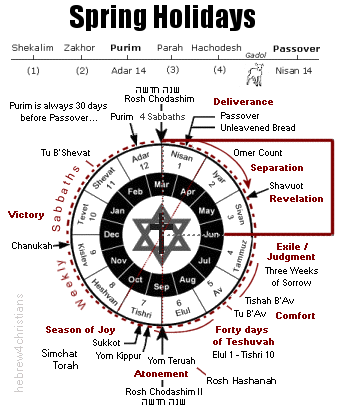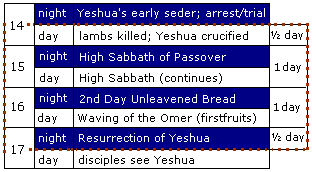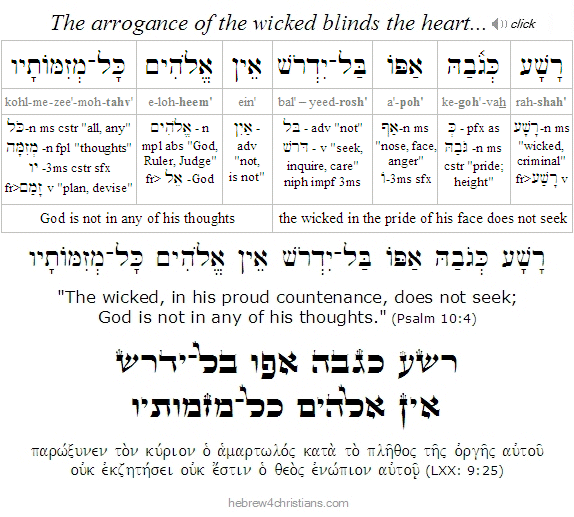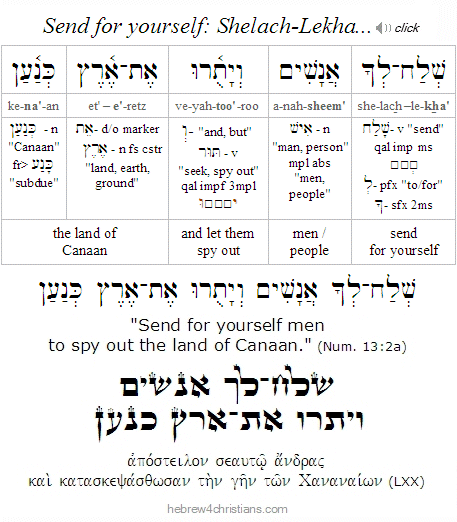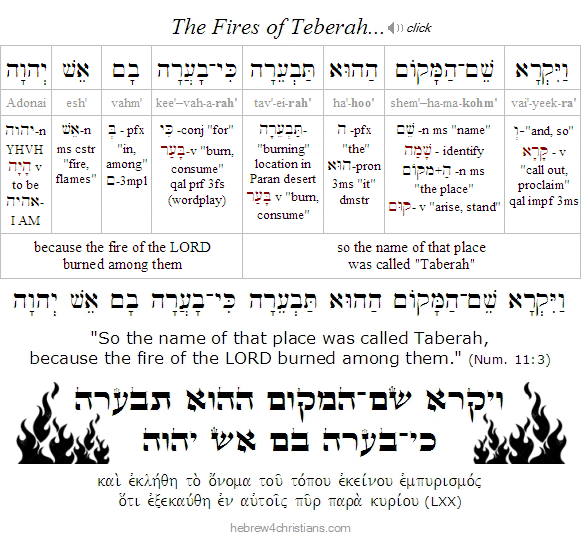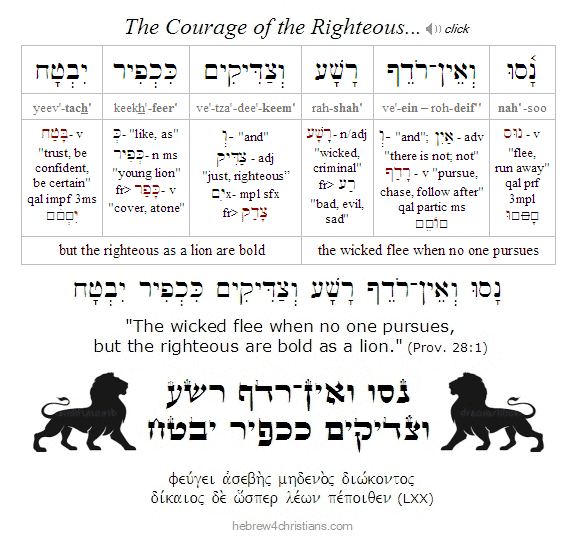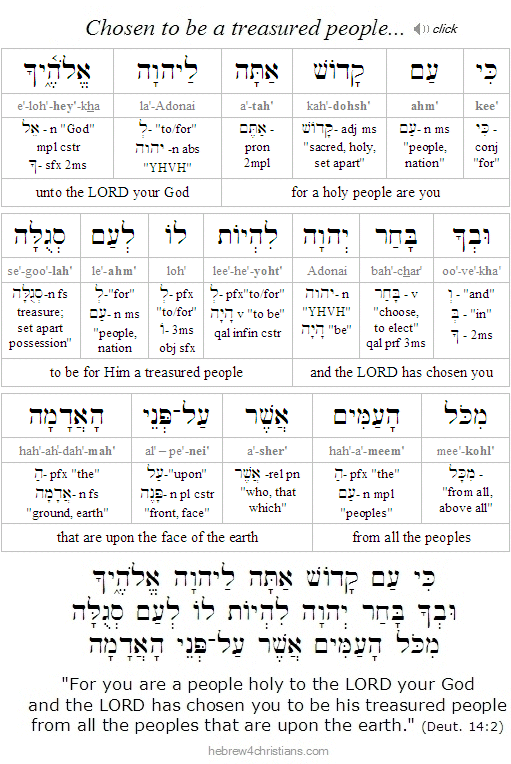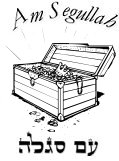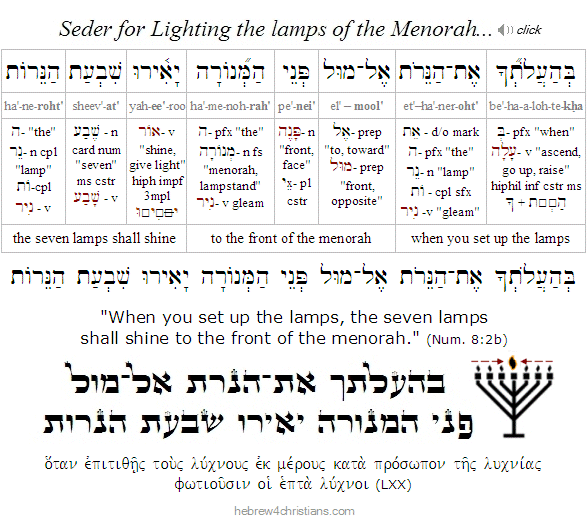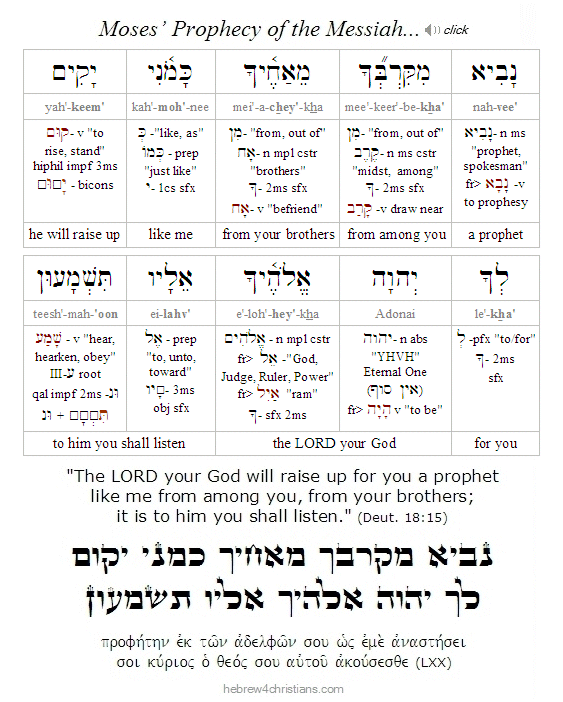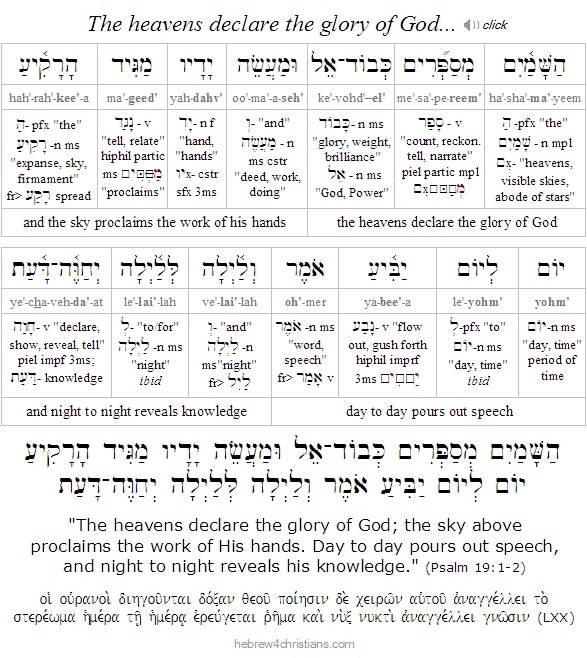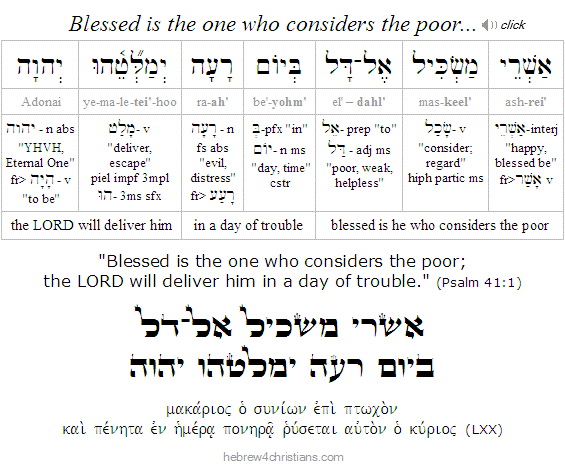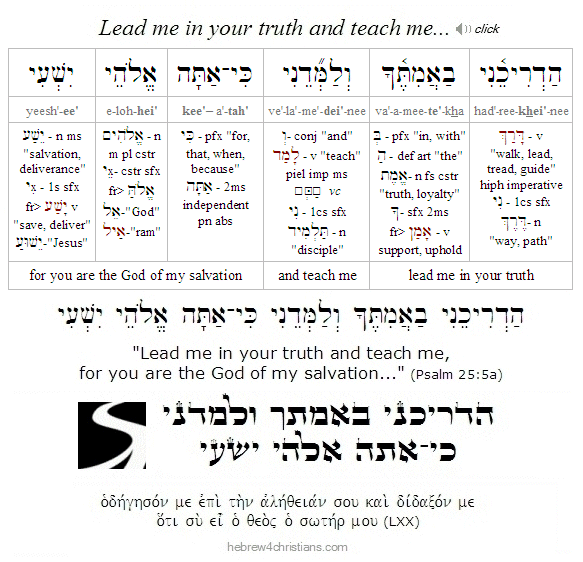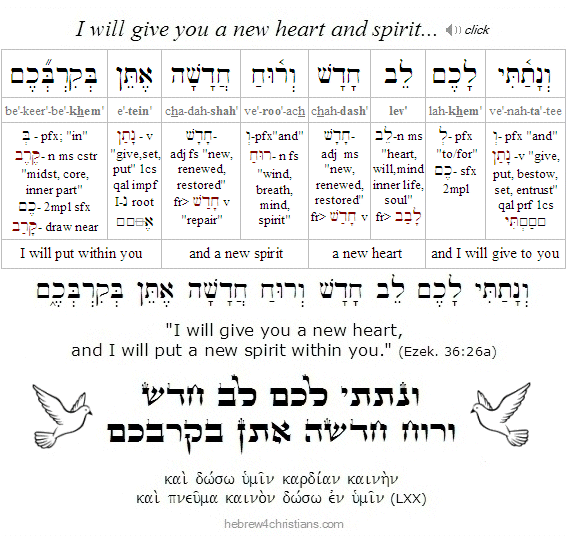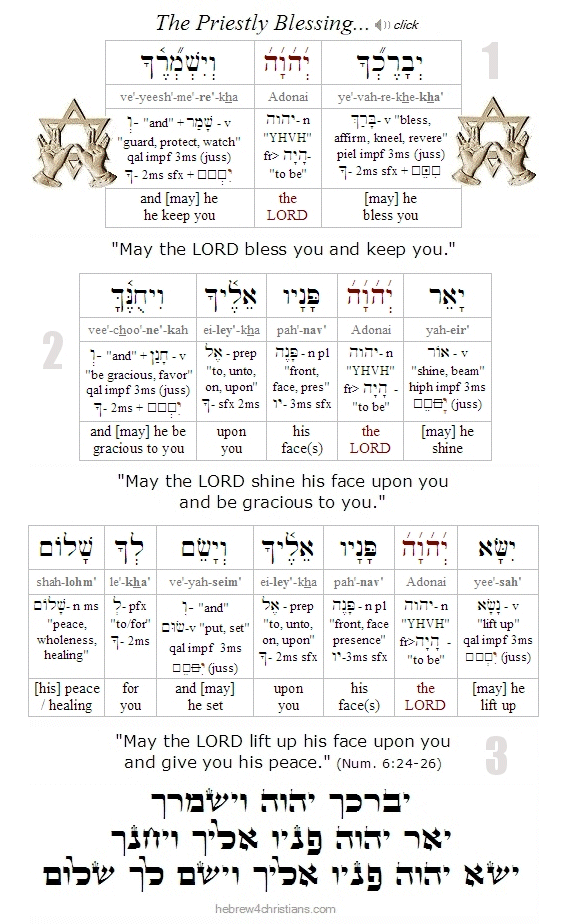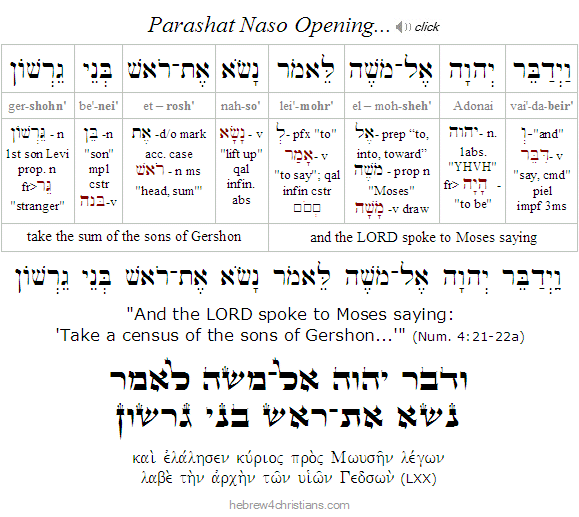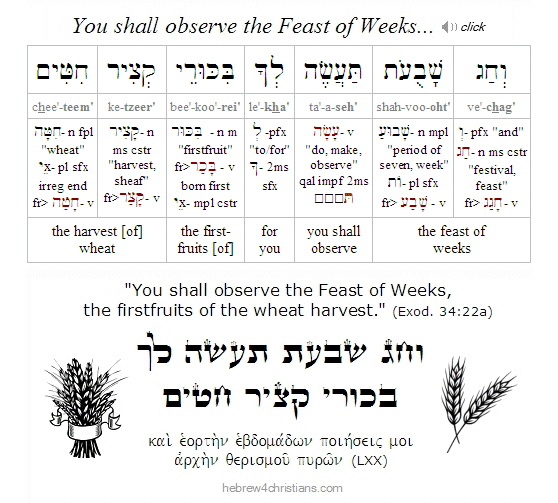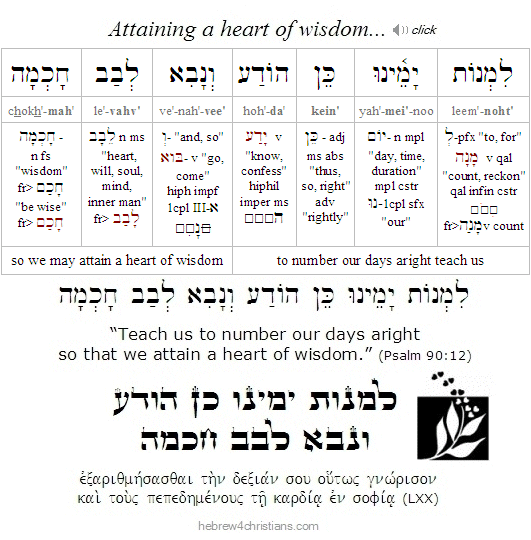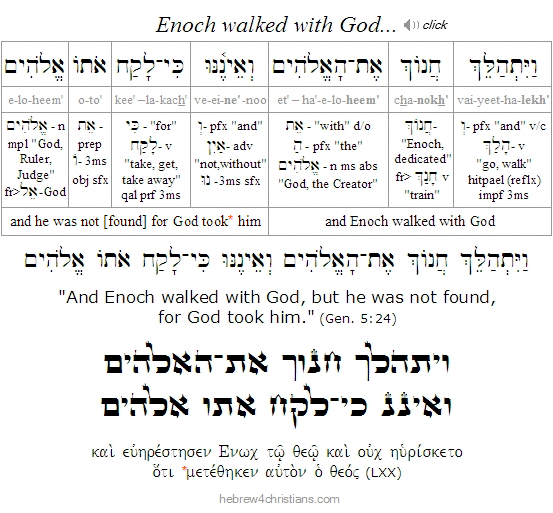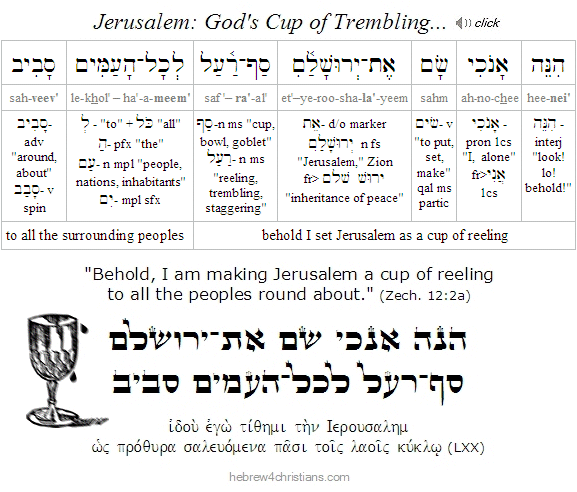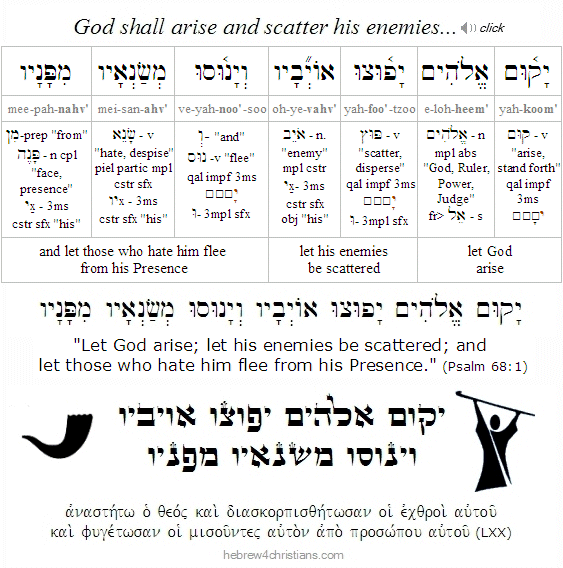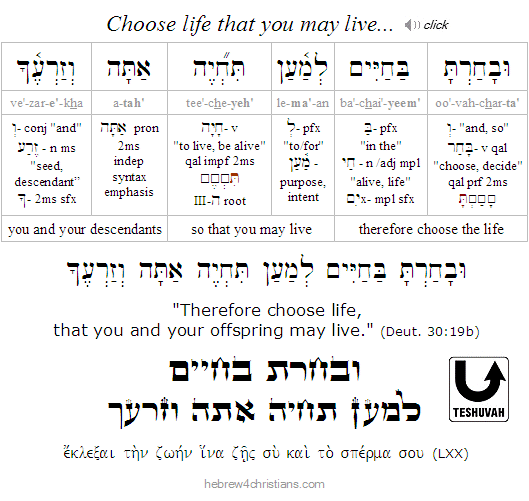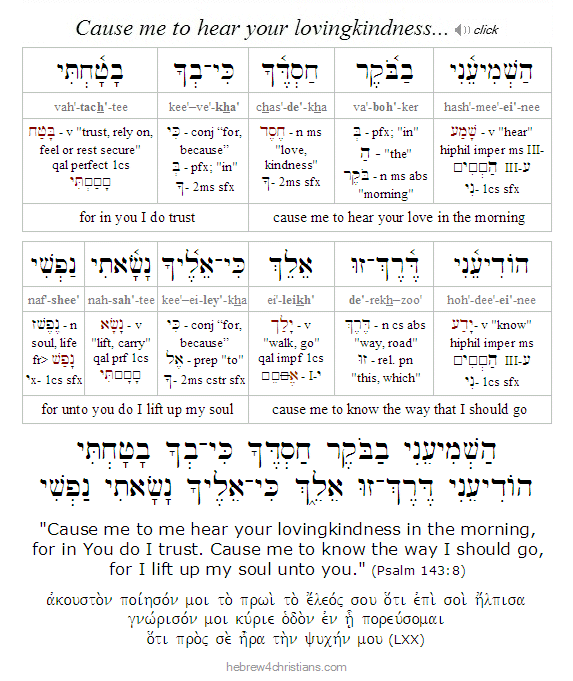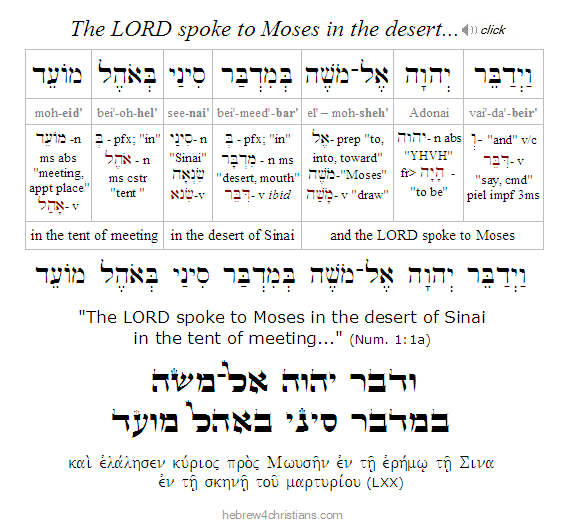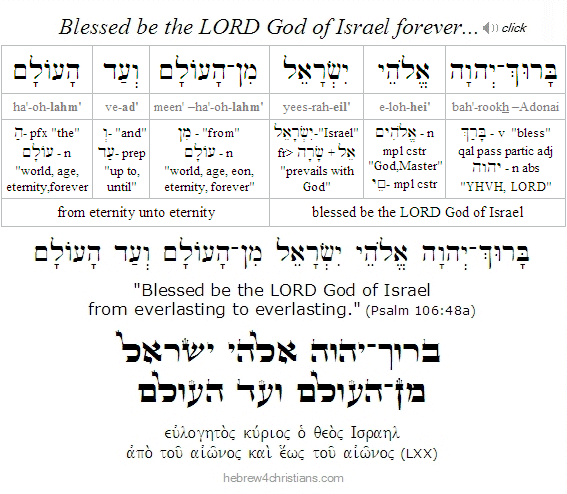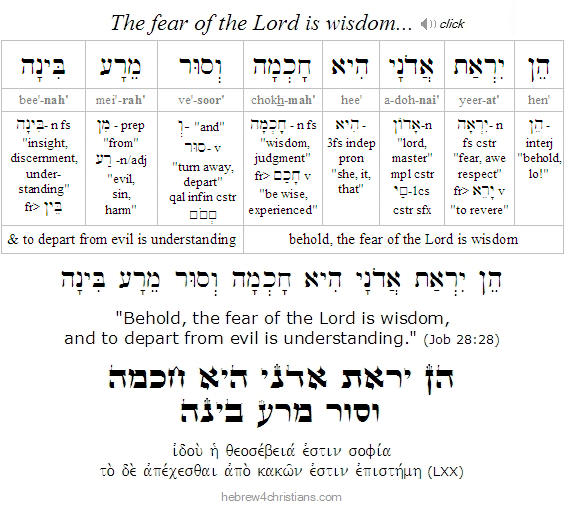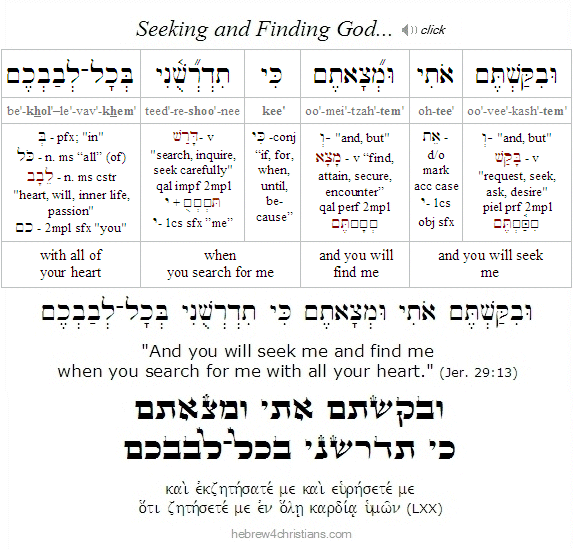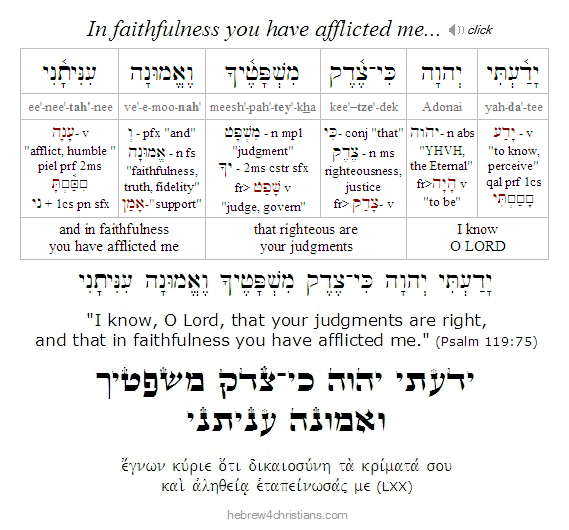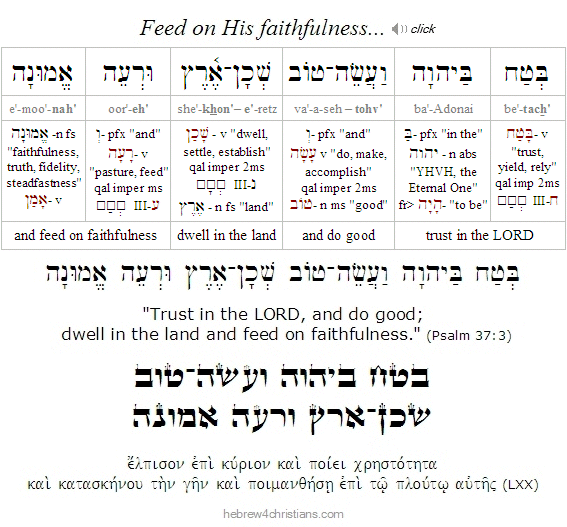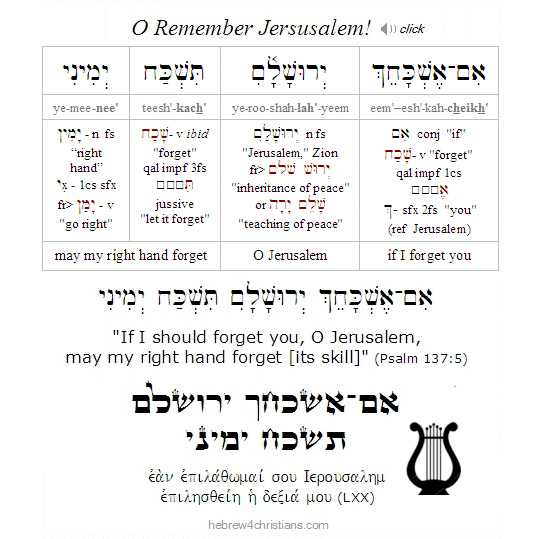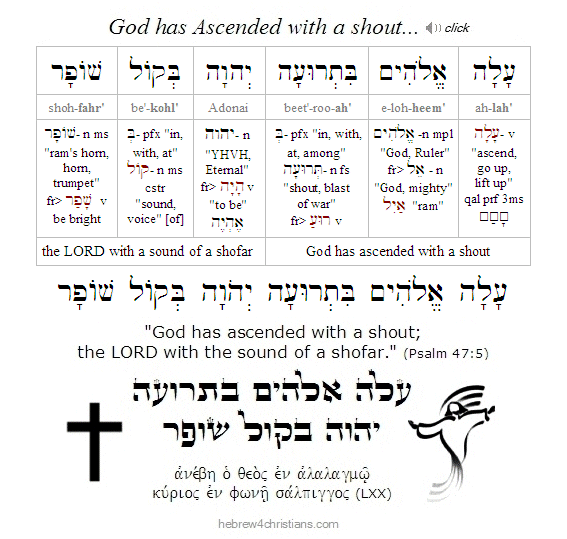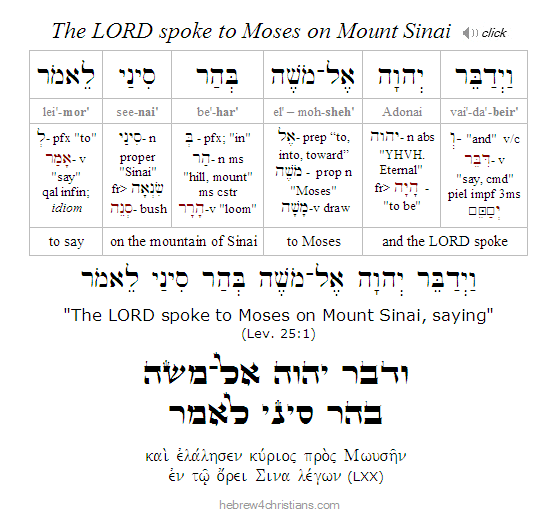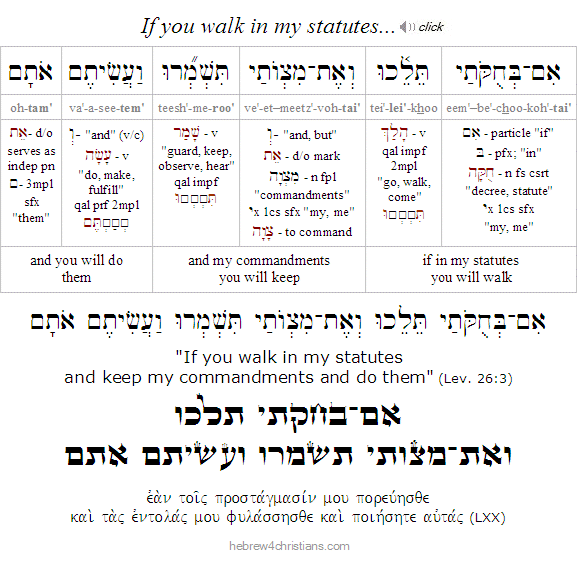|
Jewish Holiday Calendar
For May 2021 site updates, please scroll past this entry....
The Biblical year officially begins during the month of the Passover from Egypt (i.e., on Nisan 1, called Rosh Chodashim, see Exod. 12:2), and the spring holidays of Passover, Unleavened Bread, and Firstfruits both recall our deliverance from Egypt and also our greater deliverance given by means of the death, burial, and resurrection of the Messiah, the great Passover Lamb of God. Yeshua was crucified on erev Pesach, buried during Unleavened Bread, and resurrected on Yom Habikkurim (Firstfruits). The holiday of Shavuot (i.e., "Pentecost") both commemorates the revelation of the Torah at Sinai as well as the revelation of the Holy Spiri) at Zion, in fulfillment of the promise given by our Lord.
Dates for Shavuot 2021:
The Spring Holidays:
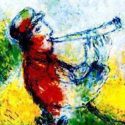
The spring holidays (חגי האביב) provide a portrait of the death, burial, and resurrection of the Messiah: Yeshua was crucified on erev Pesach (during the time of the sacrifice of the Passover lambs), buried during Chag Hamotzi (the festival of Unleavened Bread), and was resurrected from the dead on Yom Habikkurim (the Day of Firstfruits). Fifty days after Passover, on the climactic holiday of Shavuot (i.e., the feast of Pentecost), the wave offering was made at the Temple as the Ruach HaKodesh (Holy Spirit) fell on the believers in fulfillment of the promise given by our Lord. Note that the giving of the Holy Spirit occurred precisely according to the calendar countdown given in the Torah (Lev. 23:15-16), and that it occurred after the resurrection of Yeshua -- just as our Messiah foretold (John 16:7; Acts 1:6-8, 2:1-4). This proves that the feasts of the LORD (מוֹעדי יהוה) were not abolished after the institution of the New Covenant and the crucifixion of our Lord. The meaning of the gospel is prefigured in the holidays given in Torah. See Luke 24:27, 24:44; John 5:46; Acts 26:22, etc.
Kindly note that in accordance with both Torah and Jewish tradition, the following holiday dates begin at sundown (ויהי־ערב ויהי־בקר; Gen. 1:5):
- Month of Adar (Thurs. Feb. 11th [eve] - Sat. March 13th [day])
- Month of Nisan (Sat. March 13th [eve] - Sun. April 11th [day])
- Month of Iyyar (Sun. April 11th [eve] - Tues. May 11th [day])
- Month of Sivan (Tues. May 11th [eve] - Wed. June 9th [day])
Note: Some calendars will list the first day of a holiday without indicating that the holiday actually begins sundown the night before. For more information see the Calendar pages...
May 2021 Updates
Note: If any page content appears to be missing, please refresh the page...
Deconstructing Nonsense...

05.31.21 (Sivan 20, 5781) It is written in our Scriptures: "The wicked in his proud countenance does not seek; God is not in any of his thoughts" (Psalm 10:4). Indeed the willful denial of reality is an affront to heaven, contempt shown for the gift of life, and sacrilege of all that is worthy (Psalm 14). It is sheer folly to regard life apart from the fear of the LORD, for that is reishit chokhmah (רֵאשִׁית חָכְמָה) - the beginning of wisdom (Psalm 111:10). The existence of God as the Almighty Creator and Moral Lawgiver is therefore First Principle of all sound reasoning regarding reality. The so-called "postmodern world" is notorious for failing to explain anything of substantive meaning. Everything is left unexplained; no "metanarrative" (i.e., "worldview" or "totalizing" philosophy) is permitted; no logical connections to a "real world" are sound; there is no grand "story" to our lives, and therefore postmodernism entirely misses the essential point of everything.
King David asked, "Who shall abide before the Presence of the LORD?" and the Spirit replied: "the one who walks blamelessly and does what is right and speaks truth in his heart" (Psalm 15:2). It is the one who is honest – "the one who speaks truth within his heart" (דבֵר אֱמֶת בִּלְבָבוֹ) that dwells in the "tent of the LORD," for God is called the God of Truth (אֵל אֱמֶת), and the Faithful God (אֵל אֱמוּנָה). In heaven there is only the language of truth, and truth is the language of heaven. The "pure in heart" – that is, those who accept the truth of their inner condition, who acknowledge their lost condition, mourning over their lives, and who humbly find themselves starving for God's deliverance – these are the ones who shall behold God (Matt. 5:2-6). In this connection Blaise Pascal wrote: "I can feel nothing but compassion for those who sincerely lament their doubt, who regard it as the ultimate misfortune, and who, sparing no effort to escape from it, make their search their principal and most serious business. But as for those who spend their lives without a thought for this final end, I view differently. This negligence in the matter where they themselves, their eternity, their all are at stake, fills me more with irritation than pity: yea, it astounds and appalls me" (Pensees).
Postmodern Christianity is a phenomena of despair. By "despair," however, I do not mean "gloom" or "dejection," but rather an absurdist anti-intellectualism that derived from the loss of hope regarding obtaining real knowledge about the world. In popular culture, we see that this despair arose just after WWI (in the USA, some time earlier in Europe), though its roots trace back to the epistemological skepticism of the German philosopher Immanuel Kant (1784-1804), who posited "limits" to the mind's ability to know reality by defining a chasm between apparent reality (phenomena) and hidden reality (noumena). The realm of phenomena was open to inspection using the methods of reason, science, etc., whereas the realm of the "numinous" was only "managed" by positing transcendental "categories" to help lend order to the unknown. Kant's doctrine opened the door to various forms of irrationalism, since all the meaningful aspects of life (love, meaning, hope in afterlife, freedom, the existence of God, etc.) were relegated to the murky world of the unknown, leaving us with only a world of "managed appearances" to traffic in as human beings in the world.
GW Hegel (1770-1831) took the next step and speculated wildly above Kant's uncrossable line. The phenomenal world (Zeitgeist) was "really" a manifestation of Absolute Spirit working its way out through "dialectic" in the space-time world. Later Karl Marx (1818-1883) rejected the idea of Spirit and substituted material forces (i.e., economics) as the engine that drove historical processes. Nietzsche and his intellectual heir Adolf Hitler soon became "true believers" of such irrationalism... Derrida, Foucault and other "postmodernists"celebrated the loss of intelligibility as a political opportunity to "reconstruct" reality as subjective preference.
The division of rational and irrational modes of encountering reality opened the door for absurdist encounters with the spirit realm. Hence we see the rise of neo-paganism, witchcraft, various forms of the occult (including pop-Kabbalah), new-age thinking, and various extreme forms of "charismatic" Christianity. Since God cannot be understood using reason, He is known only through the experience of mystery. Faith is therefore expressed by rejecting rationality and embracing the ludicrous, and appeals to logic and clear thinking are rejected. Epistemological nihilism is symptomatic of the despair of the "postmodern" age.
"The Nuremberg trial of the German war criminals was tacitly based on the recognition of the principle: criminal actions cannot be excused if committed on government orders; conscience supersedes the authority of the law of the state." - Albert Einstein
Hebrew Lesson:
Small in our Eyes...

05.31.21 (Sivan 20, 5781) Our Torah portion for this week (i.e., Shelach-Lekha) is a "heavy one" since it reports the "Sin of the Spies" (i.e., chet ha'meraglim: חטא המרגלים) and the subsequent failure of the people to trust that the Lord would take care for them. The people's lack of bittachon (trust) in God is the most serious sin recorded in all the Torah, even more serious than the sin of the Golden Calf (i.e., chet ha'egel: חטא העגל). This is confirmed by the testimony of the New Testament, which presents the fate of the Exodus generation as the dire warning of apostasy for those who claim to follow the Messiah (see Heb. 3:7-4:2).
Trust, then, is the central issue, though in order to trust God, you must believe that you are valuable to Him and that He genuinely desires relationship with you... God redeemed you so you could know and love Him (Isa. 43:1). In this connection it is important to notice that the spies said, "we were in our eyes like grasshoppers" (Num. 13:33). They felt small because they had forgotten the reason for their redemption - they had forgotten how much they meant to God! Their lack of self-respect made them feel unworthy of the inheritance. The sin of the spies was not simply that they doubted they could overcome the "giants in the land," but rather that they were worthy people in God's eyes... Sadly the spies view of themselves was more real to them than God's view of them, and that is why they added, "and so we were (like grasshoppers) in their eyes." From a spiritual point of view, this was profoundly tragic..
One lesson we can learn from the unbelief of the spies is that we must be careful to esteem ourselves properly. We are created be'tzelem Elohim (in the image of God), and that is the starting point for everything else revealed in the Torah. This foundational idea may be expressed as "respect precedes Torah." Self-esteem and self-worth are very important characteristics because they enable the soul to receive the Word of God. This isn't a selfish, narcissistic type of love. If you have no self-worth, then it is likely you will believe the promises of Scripture are for other people, but not for you. You will regard yourself as an "outsider" or "alien" who is without promise of inheritance. So we have to begin there, with the fact that God created you in His image and therefore you are of infinite value. You matter to God - and therefore you must respect yourself. It is no mark of holiness to shame or belittle yourself - notwithstanding your sinful nature - since you have a duty to honor yourself as one of God's created children. Dishonoring yourself violates the central ethical commandment of the Torah: "You shall love your neighbor as yourself" (Lev. 19:18). How can you respect others if you don't respect yourself? You will regard yourself as "insect like" and will tend to view others as "gigantic" threats; you will act defensively and walk in fear of other people.... This is the path of a person living in a prison of fear, and it is a type of hell. Trusting in God's personal love for you presupposes that you are worthy to be loved and that there is a divine inheritance for you. This gives you real courage to go take possession of the land as its rightful heir. Trusting in God means regarding God's view of you as more real than your own. It means allowing yourself to be "drawn close" so that you can be in a genuine love relationship with your Heavenly Father. "From now on, therefore, we regard no one (including ourselves) according to the flesh..." (2 Cor. 5:16).
We "walk by faith, not by sight," which means we must take hold of the promise of God, even in a world that "devours its inhabitants" and that is filled of seemingly invincible giants... Faith believes the possible, even in moments of testing and struggle. As Yeshua said, "All things are possible for the one who believes" (Mark 9:23).
"God is able to make all grace overflow to you, so that having all sufficiency in all things at all times, you may overflow in every good work" (2 Cor. 9:8). May it please God our Heavenly Father to help us esteem ourselves properly so that we can receive, abide in, and walk in the reality and presence of His overflowing love. And may the LORD keep us all from the terrible sin of unbelief by always remembering that we infinitely matter to Him. Amen.
Hebrew Lesson:
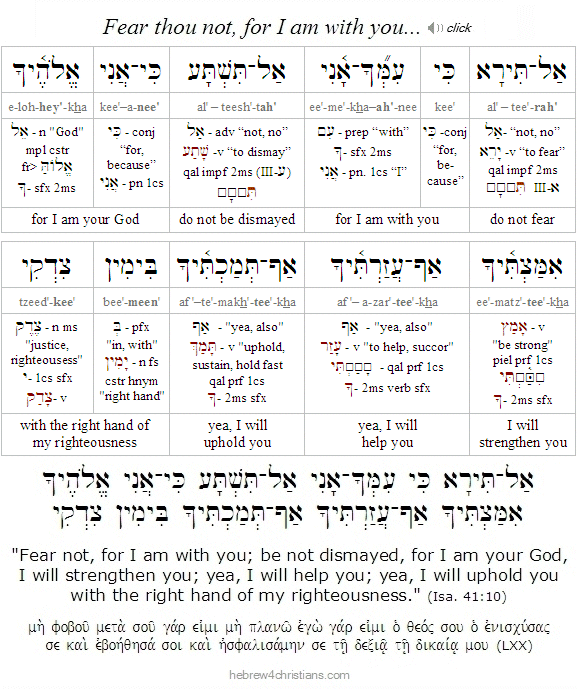 |
Personal Note: I have been unwell the last few days with body aches, breathing issues, and overall exhaustion. Your prayers are appreciated, friends.
Parashat Shelech Lekha...

05.30.21 (Sivan 19, 5781) Our Torah reading for this week, Shelach Lekha (שלח־לך), recounts how Moses sent twelve spies from the desert region of Kadesh into the land of Canaan to search it out and give a report of its condition. The spies returned 40 days later extolling the land, saying that was indeed fruitful and zevat chalav u'devash (זבת חלב ודבשׁ), "flowing with milk and honey." However, ten of the spies also gave a discouraging report, indicating their lack of confidence that the people could conquer the land. Only Joshua (יהושע) and Caleb (כלב) kept faith in God's promise. Upon hearing the report of the ten spies, however, the people rebelled and cried out to return to Egypt. Angered by their lack of faith, God sought to destroy the people, but Moses interceded on their behalf. The LORD then decreed to lengthen the Israelites' wandering in the desert to 40 years -- one year for each day the spies were in the land -- until all of the faithless over the age of 20 would die in the desert, except for Joshua and Caleb, the two spies who kept faith with the LORD. After hearing the judgment of God, a group of remorseful Israelites decided to "repent" by taking matters into their own hands. Without either the "Ark of the Covenant of the LORD" or Moses' leadership, they presumptuously decided to storm a mountain on the border of land but were decisively routed by the Amalekites and Canaanites.
If last week's Torah might be called "sefer kvetch" (the book of complaint), this week's Torah reveals the fateful outcome... The people's lapse of faith in God's power serves as a profound and very sober warning, and indeed is a primary warning regarding the dreadful sin of unbelief in the New Testament (see Heb. 3:7-4:11). Indeed, Jewish tradition states that the decree that "none of the men who had seen my glorious Presence and my signs I performed in Egypt and in the desert will see the land that I swore to give to their fathers" (Num. 14:22-23) was given on the Ninth of Av (i.e., Tishah B'Av), and was prophetic of the destruction of the Temple and the worldwide exile of the people from the Promised Land. The sin of unbelief may rightly be regarded as the "unpardonable sin" of the Torah...
The tragedy of the sin at Kadesh ultimately has a happy resolution, however, since the LORD is never thwarted by man's sin and weaknesses. After the 38 years of exile were complete, Moses' faithful successor Joshua sent a second spying expedition to the promised land, though this time God led the spies to a prostitute named Rahab (רחב), a direct ancestor of Yeshua the Messiah, who later identified her faith in the LORD's victory by displaying the scarlet cord (i.e., chut ha'sheni: חוט השׁני) during the fall of Jericho (Joshua 2). Rahab was the (grand)mother of Boaz, who later married Ruth, the great grandmother of King David. May God likewise give us courage to walk in the power of His promises, even if our present circumstances seem daunting. May the LORD clothe each of us with the "spirit of David" to stand before all the giants of the land who defy the LORD and His power.
Finding Right Desire...

05.28.21 (Sivan 17, 5781) Our Torah portion this week (i.e., Beha'alotekha) recounts the rebellion of the people during the desert sojourn... Instead of joyfully anticipating the promise of their inheritance, the people grew dissatisfied and bored. The Sefat Emet noted that just after we read how the people complained bitterly to the LORD, they had a "strong craving" (הִתְאַוּוּ תַּאֲוָה), which in Hebrew literally means they "craved a craving." Moses could tolerate the people's desire for food and water, but when they began to actively cultivate their cravings, lusting after the imaginary "free fish" they enjoyed in Egypt, he began to realize that the problem was deeper, a matter of the heart... Moses understood that what the people really wanted was impossible, since it involved denying who they were as God's redeemed people. The issue was not about wanting to eat "meat," after all, but rather hungering after the forbidden, desiring to desire, etc. Creating desires, fomenting a sense of deprivation, and choosing to see yourself as a victim, is a lethal sickness of spirit, a disease of the soul. It is a "burning" (i.e., Taberah: תַּבְעֵרָה) that destroys inner peace. May God help us understand and seek what truly matters; may he deliver us from self-destruction; and may he help us to be satisfied with the manna he provides! Amen.
Hebrew Lesson:
The Fight of your Life...

05.28.21 (Sivan 17, 5781) Because we are in the midst of a raging spiritual war, it is imperative to gird your mind and heart with truth... Keep yourself armed for the battle and be aware of the common strategies of the enemy of your soul (2 Cor. 2:11). Trust in God's power to deliver you from evil (1 Cor. 10:13). Be resolute in your convictions, refusing to yield to worldly pressures to compromise your faith in the name of supposed "tolerance." It is not loving to suppress the truth of Yeshua or to minimize the truth claims of our Messiah's vision of reality. Fight the good fight of faith, and take hold of those spiritual weapons that are "mighty through God to the pulling down of strongholds" (2 Cor. 10:4). Always be ready to yield every thought to the obedience of your LORD (2 Cor. 10:4). Know that this is the fight for your life, friend. The Prince of Peace (שַׂר־שָׁלוֹם) came to make peace between God and sinners through his sacrificial blood, but he did so by means of a terrible conflict with the powers of darkness, and his message still offends those enslaved by pride and fear...
The devil provides weapons for those in his service, namely voilence, the lies of darkness, the impudence of pride, and the vain seductions of this world, and therefore it behooves us to avail ourselves of the weapons of faith received by the agency of the Spirit of God (see Eph. 6:11-18). Be sober and vigilant because your adversary (ἀντίδικος) the devil prowls about like a roaring lion, seeking someone to devour. Resist him, firm in your faith, knowing that the same experiences of suffering are being accomplished by your brethren who are in the world" (1 Pet. 5:7-8). Yield yourself to God, resist the devil and he will flee from you (James 4:7). The end of all things draws near: be awake; call upon the Name of the LORD....
Hebrew Lesson:
Like-for-Like Revelation...

05.28.21 (Sivan 17, 5781) It has been said that grace is getting what you don't deserve, whereas mercy is not getting what you do... Yeshua said, "Blessed are the merciful, for they shall receive mercy" (Matt. 5:7). This is not a reciprocal law like karma, i.e., you get in return what you first give, since we cannot obtain God's mercy as reward for our own supposed merit (Rom. 4:4). No, we are able to extend mercy to others when we are made merciful ("full of mercy"), that is, when we first receive mercy from God. After all, you can't give away what you don't have, and if we have no mercy for others, it is likely that we have not received it ourselves, as the parable of the Good Samaritan reveals (Luke 10:25-8). Your forgiveness is your forgiveness: as you forgive, so you reveal your heart. What you do comes from what you are, not the other way around... We are first transformed by God's grace and then come works of love. We are able to judge others mercifully, with the "good eye," because we come to believe that we are beloved by God.
The pattern therefore abides: First you realize you are broken, impoverished of heart, and you therefore mourn over your sinful condition. Then you hunger and thirst for God's righteousness, for his healing and deliverance, and you learn to trust the mercy of God, that is, you come to accept that you are accepted despite your unacceptability. "And God said, 'Love your enemy,' so I obeyed Him and loved myself" (Khalil Gibran). You begin to show yourself mercy; you learn to "suffer yourself" and forgive your own evil, and then you extend this mercy to others who are hurting around you... The failure to extend mercy, to demand your "rights" or hold on to grudges, implies that you are relating to God as Judge rather than as Savior (James 2:13). If we condemn what we see in others, we have yet to truly see what is within our own hearts; we have yet to see our desperate need for God's mercy for our lives. If you don't own your own sin, your sin will own you. Being merciful is a response to God's love and therefore is essential to genuine teshuvah... Ask the LORD to help you let go of the pain of the past by being full of mercy toward yourself and others.
Hebrew Lesson:
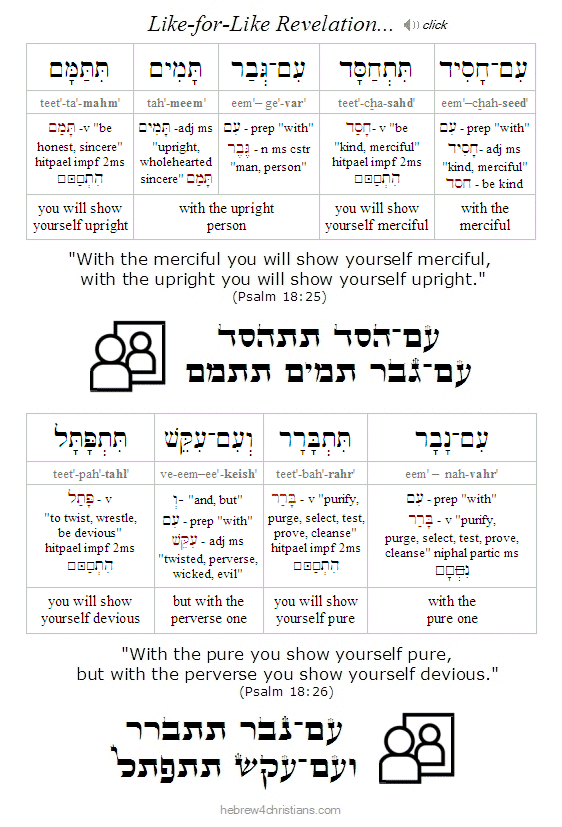 |
Chosen and Treasured...
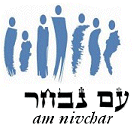
05.28.21 (Sivan 17, 5781) "God chose you... from among all peoples" (Deut. 10:15). The idea is repeated several times in Torah (for example, see Deut. 14:2; Exod. 19:5-6; Deut. 7:7-8; Amos 3:2). What a great blessing to be personally selected by God to know his love and forgiveness; what a privilege to be made an heir of the covenant and promises of the LORD! Spiritually understood, being chosen is not the result of simply being born Jewish, but has to do with being in a relationship with the God of Abraham, Isaac, and Jacob in the truth, and therefore Gentiles who trust in God are justified by their faith and chosen as His people. As it is written: "In the Messiah we too have been claimed as God's own possession, since we were predestined according to the one purpose of him who accomplishes all things according to the counsel of his will" (Eph. 1:11). What an honor, what a mercy, what a joy!
The corollary of being a "chosen" person, however, is the responsibility to serve as an expression of God's love that repairs the broken world. Therefore the Apostle Peter refers to followers of Messiah as "a chosen race, a royal priesthood, a holy nation, a people for his own possession, so that we should show forth the praises of the One who has called you out of darkness into his marvellous light" (1 Peter 2:9, cp. Exod. 19:6, Deut. 7:6). Please note that these words were addressed to those formerly called Gentiles, since he adds: "Once you were not a people, but now you are God's people" (1 Pet. 2:10, cp. Deut. 32:21; Hos. 2:23; Rom. 9:25). The Apostle Paul likewise calls believers in Yeshua a "chosen people" (Eph 1:4; 2 Thess. 2:13) who have been given direct and priestly access to God (Heb. 4:16). This priestly lineage began with Malki-Tzedek (Melchizedek), culminated in the advent of Yeshua, and is passed directly to the disciples by means of their justification and identification with the risen Savior "who gave himself for us, that he might redeem us from all iniquity, and purify unto himself a treasured people (am segullah), zealous for good works" (Titus 2:14). "Blessed is the LORD God who has chosen us in him before the foundation of the world, that we should be holy and blameless before Him and through Him we have redemption through his blood, the forgiveness of our sins, according to the riches of his grace" (Eph. 1:3-7). Hallelujah!
In this connection note that the word "Hebrew" means "boundary crosser," that is, one who "crosses over" to life by being in relationship with the LORD, while a "Jew" means one who praises the LORD. The word "Jew" (יְהוּדִי) comes from a root (יָדָה) which means to "thank" or to "praise" (Gen. 29:35). The Apostle Paul alluded to this by saying that one whose heart has been circumcised by the Spirit is "one who is praised by God -- not by men" (Rom. 2:29). Being a Jew therefore means you are "chosen" to receive blessings and grace to live in holiness for the glory of God and for the healing of the world. The performance of various commandments are for the greater purpose of tikkun olam, the "repair of the world," in order to reveal God's goodness and love (Eph. 2:8-10). Doing so makes someone a Jew, since his praise comes not from man, but from the LORD. God is the source and the power of what makes a true tzaddik (righteous person). After all, Israel was meant to be a "light to the nations" (Isa. 42:6; 60:3), and God had always planned for all the families of the earth to come to know Him and give Him glory through his chosen servant Abraham (Gen. 12:3; 22:18). "Jewishness" is therefore not an end in itself but rather a means to bring healing to the nations, and that healing comes through the blessing of the Messiah... Indeed, the entire redemptive story of the Scriptures centers on the cosmic conflict to deliver humanity from the "curse" by means of the "Seed of the woman" who would come. The gospel is Jewish because it concerns God's great redemptive plan for the whole world (John 3:16; 4:22). Followers of Yeshua are given a Jewish heart that is full of praise for the truth of God's salvation and love.
Hebrew Lesson:
The Great Day of the LORD...
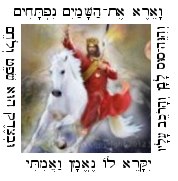
05.27.21 (Sivan 16, 5781) Life in this evil world can be suffocating at times. And though we may not be under the oppression of a cruel Pharaoh, we are affected by the "princes of this age" who spurn the message of the Messiah's redemption and love, and we are still subjected to bondage imposed by taskmasters who defy the LORD and who seek to enslave us by means of lies, propaganda, and threats of violence... The devil is still at work in the hearts and minds of many of his "little Pharaohs" that serve the world system. Nevertheless "there is no fear in love" (אין פַּחַד בָּאַהֲבָה), especially since we know that ein od milvado -- there is no real power apart from the LORD (i.e., He is the only true Power in the universe). Indeed, Yeshua is elyon lemalkhei-aretz (עֶלְיוֹן לְמַלְכֵי־אָרֶץ) - the "Ruler of the princes of the earth" (Rev. 1:5) - and that means that they will answer to Him (Psalm 2). If you belong to the Messiah you are not part of this world and its matrix of deception but instead serve the King of Kings (Col. 1:13; Acts 26:18; 1 Pet. 2:9). Therefore set your thoughts on things above, not on things of this world (Col. 3:2). In the end all things born of the lie will be exposed and forever put away from us (Eccl. 12:14). "The great Day of the LORD is near; it is near and hastening quickly" (Zeph. 1:14). "For though the vision awaits its appointed time; it hastens to the end -- it will not lie. If it seems slow, wait for it; it will surely come; it will not delay" (Hab. 2:3).
Hebrew Lesson:
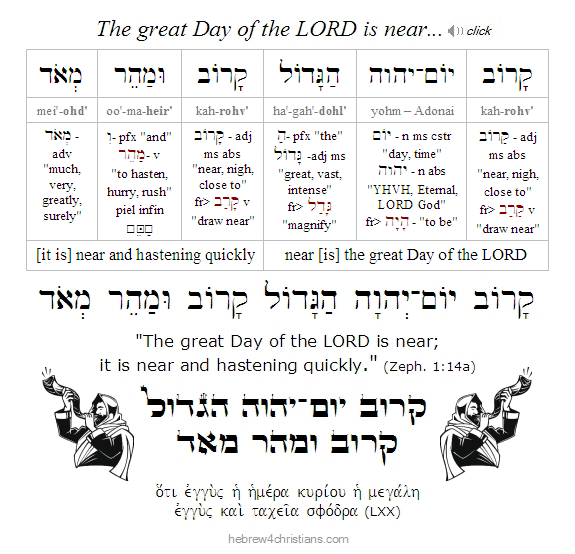 |
Our Good Shepherd's Care...
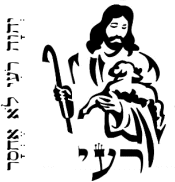
05.27.21 (Sivan 16, 5781) Many people are anxious about dying, though it would profit them more to be anxious about living well instead. Indeed the best reason to think about death (memento mori) is to think about the value of life (memento vivere). Likewise many people are anxious over the prophesied "End of Days," though it would profit them more to be anxious about walking their present day before the Presence of the Lord....
In the Gospel of Matthew we read these words of our LORD Yeshua the Messiah: "Therefore do not be anxious about tomorrow, for tomorrow will be anxious for itself. Sufficient for the day is its own trouble" (Matt. 6:34). Soren Kierkegaard comments: "If there is no next day for you, then all earthly care is annihilated. When the next day comes, it loses its enchantment and its disquieting insecurity. If there is no next day for you, then either you are dying or you are one who by dying to temporality has grasped the Eternal, either one who is actually dying or one who is really living... The one who rows a boat turns his back to the goal toward which he is working. So it is with the next day. When, with the help of the Eternal, a person lives absorbed in today, he turns his back to the next day. The more he is eternally absorbed in today, the more decisively he turns his back to the next day." Amen. May God help us live for Him today. Today is the day of salvation; today may we hear His voice.
The walk of faith is one of "holy suspense," trusting that God is on the other side of the next moment, "preparing a place for you" (John 14:3). In the present, then, we live in unknowing dependence, walking by faith, not by sight. For "hope that is seen is not hope; for who hopes for what he sees?" (Rom. 8:24). This is the existential posture of faith - walking in darkness while completely trusting in God's daily care. Our task at any given moment is always the same - to look to God and to accept His will. This is where time and eternity meet within us, where God's kingdom is revealed in our hearts. It makes no sense to worry about the future if the Good Shepherd tenderly watches over your way (Psalm 23:1-3).
Hebrew Lesson:
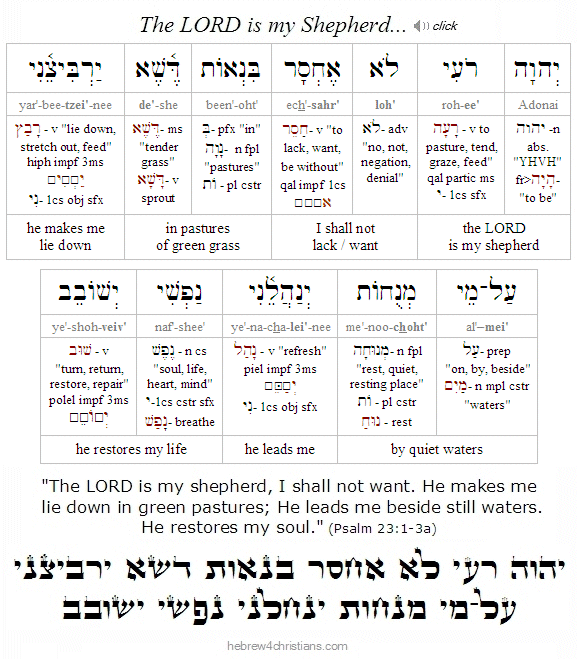 |
Beha'alotekha - "Sefer Kvetch"

[ A central commandment our Torah reading this week is "Thou Shalt Not Kvetch" (or, to put it positively, "Thou Shalt be Grateful"). Please read the portion to "find your place" here. ]
05.26.21 (Sivan 15, 5781) Some of the sages have called this week's Torah portion (i.e., Beha'alotekha) "Sefer Kvetch," the Book of Complaint, since the first stage of the journey back to the Promised Land was marked with murmuring, ingratitude, and fantasies about the "good old days" when the people ate "free fish" in Egypt, and so on. The repeated episodes of complaining really were a form of rebellion against God's leadership, as the people blasphemously charged the LORD with folly, incompetence, or even malice ("Why did God take us out of Egypt - to kill us all in the desert?"). Indeed, the spiritual condition of the people was so bad that they were all doomed to die in the desert. The New Testament later identifies the unbelief of the people as a picture of blasphemy of the Holy Spirit (Heb. 3:7-4:6).
Often the Israelites appeared to behave like spoiled children, demanding "real food" and fussing over the miraculous supply of bread that literally came from heaven (manna)... It would be somewhat comical were it not so tragic: Despite all the miracles the people had directly experienced during the great Exodus - including the splitting of the Sea, the Pillar Cloud of Cloud by day and Fire by night, leading to the awesome revelation at Sinai - despite all this - in a little over a year the memory of Egypt had become positively euphoric, and the people "forgot" how degrading their lives were as slaves... They romanticized the way things were, rationalizing that it wasn't "that bad," and savored the taste of their "free fish..."
Therefore a central commandment of this Torah portion is: "Thou Shalt Not Kvetch" (or, put positively, "Thou Shalt be Grateful"). "The deeds of the fathers are signs for the children" (1 Cor. 10:11) and therefore we are sternly warned not to follow the example of those who were redeemed by God's outstretched hand but who later drew back in fear and unbelief, as it is written: "I swore in my wrath, 'They shall not enter my rest.' Take care, brothers, lest there be in any of you an evil, unbelieving heart, leading you to fall away from the living God. But exhort one another every day, as long as it is called "today," that none of you may be hardened by the deceitfulness of sin. For we have come to share in Messiah if indeed we hold our original confidence firm to the end. As it is written, "Today, if you hear his voice, do not harden your hearts as in the rebellion" (Heb. 3:11-16).
Hebrew Lesson:
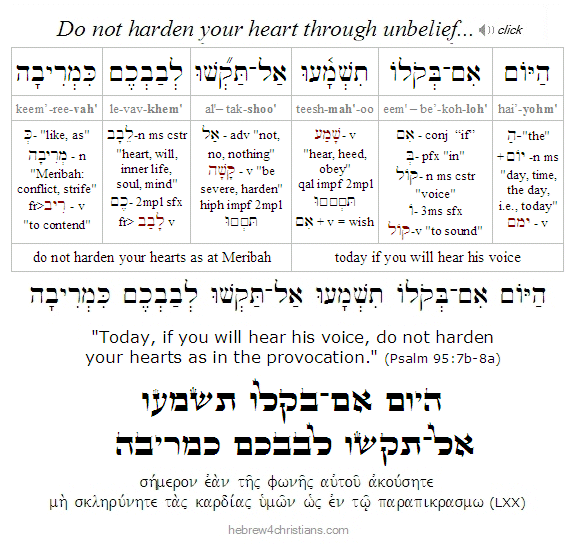 |
The Unhappy End of Unbelief...
The price for Israel's unbelief was great... The narrative of Torah was supposed to have ended after the Exodus generation left Sinai to enter the Promised Land with the completed Tabernacle... Unfortunately, things did not work out that way, and "Sefer Kvetch" begins with Numbers chapter 11. According to the Talmud, the scribes marked this "unhappy ending" by putting an "inverted Nun" before and after Numbers 10:35-36 to mark a break in the (ideal) narrative. What should have been written (beginning with chapter 11) was the "happy ending," namely, that the redeemed Israelites successfully entered the land because they kept faith in the LORD's promises. In other words, the account of the sin of the spies, the apostasy at Kadesh, the exile of the Exodus generation, etc., should never have happened. The sages said that marking the text this way affirms that what should have been written (as the happy ending) will one day be so written, after the Messiah comes to finally deliver the Jewish people. For more on this subject, see the article, "The Seven Books of Moses."
Hebrew Lesson:
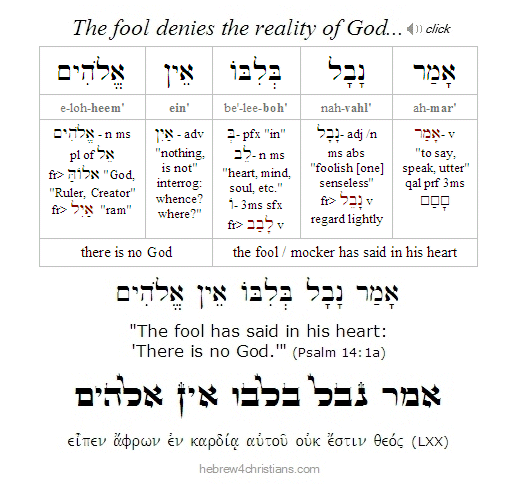 |
Thy Kingdom Come...
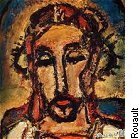
05.26.21 (Sivan 15, 5781) As followers of Yeshua, we must be "theocratic" in our focus, as our Lord himself was. He taught us to pray: "Thy kingdom come; Thy will be done, on earth as it is in heaven" (Matt. 6:10); he instructed us to "seek first the kingdom of God and his righteousness" (Matt. 6:33), and gravely warned that those who practice lawlessness (i.e., ἀνομία) are cut off from the hope of God (Matt. 7:23). Indeed God's curse is on all those who seek to eat from the "tree of the knowledge of good and evil," that is, those who define good and evil in their own terms, disregarding the revelation of Torah, and who desire to do only what they think is right "in their own eyes." In the end, every knee shall bow and every tongue will confess the truth about Reality, friends... That day is coming soon.
Hebrew Lesson:
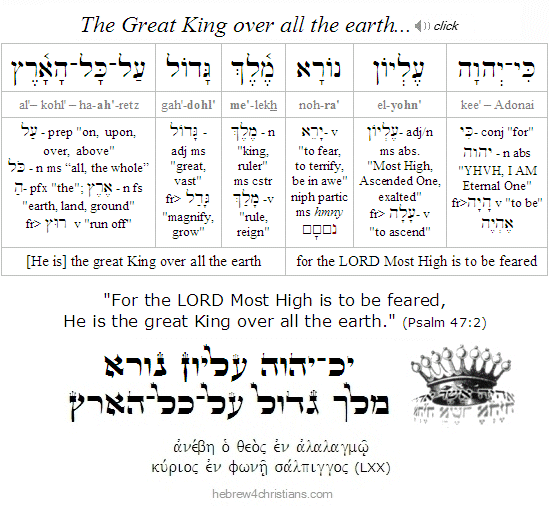 |
In order to say, "thy kingdom come, thy will be done" we must let go of our own agenda; our ego must be deposed from its petty little kingdom... Likewise, we can't say, "Come, Lord Jesus" by putting our fear first, or by otherwise demanding that our life should center on our own personal "advent." No, you must consciously choose to live in exile to this world (Gal. 6:14). How can we ever expect the LORD to live out His life through us if we do not genuinely offer our lives to Him? And yet this is exactly the problem of the ego...
A principle of spiritual life is that we descend in order to ascend, or the "the way up is the way down." As Yeshua said, "Whoever would be first among you must be slave of all" (Mark 10:44). Becoming nothing (i.e., ayin) in this world is the condition for seeing something in the world to come. But we become nothing by trusting in the miracle, not by trying to efface ourselves... This is not another venture of the ego. Life in the Spirit means trusting that God will do within you what you cannot do for yourself... We can only take hold of what God has done for us by "letting go" of our own devices (Phil. 2:13). When we really let go and trust, we will become nothing (i.e., klume: כְּלוּם), carried by the Torah of the Spirit of life. The way is not trying but trusting; not struggling but resting; not of clinging to life, but of letting go...
This is another example of the difficulty of truly trusting God for the miracle, that is, of genuinely receiving the miracle... Some people scorn the idea of "easy believism," though of course there is nothing at all "easy" about exercising true faith in the LORD and living the truth in our lives. We need the miracle; we need grace from heaven to impart real passion for us to walk according to God's heart. Amen.
 |
The Despair of Atheism...
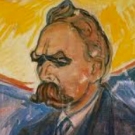
[ The following concerns a topic in philosophy; please ignore it if it isn't helpful to you... ]
05.26.21 (Sivan 15, 5781) The theological "problem of evil" can be summarized by saying that the following three propositions are incompatible or inconsistent: 1) God is all-loving; 2) God is all-powerful, and 3) evil exists. First it must be said that strictly speaking there is no formal contradiction between the statements (i.e., you can rationally believe all three propositions without explicit contradiction). However, the atheist believes that if you "tease out" the assumptions behind each statement you will eventually expose an inconsistency or contradiction, and therefore a rational person will admit that at least one of three statements must be in error: either God is not all-loving (i.e., perhaps he is "beyond good and evil"), or he is not all-powerful (i.e., perhaps he is limited in his ability to fight evil), or evil does not really exist (i.e., perhaps evil is an illusion). Since the existence of evil is said to be self-evident, however, the problem must be with one (or both) of the first two propositions, with the conclusion that God (understood as both all-loving and all-powerful) does not exist. Or so the atheist or skeptic may argue...
The denial of the existence of the God who is both all-loving and all-powerful (i.e., the Supreme Being) based on the existence of evil is not logically persuasive, however, first because there is no formal contradiction between the three statements (i.e., that God is all-loving, God is all-powerful, and evil exists), and second because the atheist's conclusion that the Supreme Being does not exist is a "universal negative" statement, that is, a statement that ranges over the set of all existing things, claiming (omnisciently) that of nothing in all of existence is God... When we consider that claim, however, it should be clear that skeptical "atheism" cannot possibly justify its conclusion, since it cannot justify the essential premise that the mind can know everything that exists....
Moreover, since atheism usually adheres to some form of "natural" evolutionary theory, it assumes the claim that the universe has always existed (i.e., that there was no "First Cause" that is its personal Creator), and therefore it assumes that the "mechanism" of evolution has always been at work. Consequently it must assume that everything that now exists, and whatever has evolved, is the inevitable result of impersonal processes of reality. Such a metaphysical viewpoint is of course incapable of making moral distinctions between, say, the actions of Adolf Hitler and Moses, since there is no essential difference between them as "products" of the grand evolutionary machine.
Indeed the "machine" metaphor that nature operates according to certain "laws" that constitute reality reveals an epistemological weakness to the entire "narrative" of atheism. If human beings have evolved over billions (trillions? quadrillions?) of years in a closed system of cause and effect, then how is human consciousness -- itself a product constrained by such impersonal forces -- able to transcend the system that programs it to evaluate its meaning and truth? To say that categorically everything evolved by an impersonal system of cause and effect is therefore a self-refuting and metaphysically meaningless claim...
Atheists often claim that God "cannot" exist because the world is so unjust and full of pointless suffering, and yet from what source does this ideal of justice derive? How is it possible to define what "evil" or "good" mean by appealing to natural processes alone? How does the atheist derive any "ought" from any "is" based on the faith that whatever happens ultimately comes from entirely impersonal natural processes? On the grounds of philosophical naturalism (i.e., that there is nothing but "natural elements, principles, and relations" of the kind studied by the natural sciences) there is no such "thing" as "right" or "wrong," there is no realm of "ought," but only brute facts of reality, and therefore there is no way to criticize whatever happens since it is, after all, an inevitable and necessary outcome. The only recourse - on naturalism's grounds - is to claim (with Thrasymachus) that "might makes right" (the survival of the fittest), and to abandon any talk of ethical idealism. Ironically enough, since naturalism reduces (or redefines) morality to mere description of natural processes, it cannot say anything meaningful about what is morally right or wrong at all. In short, atheism is a morally bankrupt philosophy based on irrational thinking, darkness, and despair.
Hebrew Lesson:
 |
He will never leave you...

05.25.21 (Sivan 14, 5781) The Scriptures declare that though the "outward self" (ὁ ἔξω ἡμῶν ἄνθρωπος) inevitably wastes away (διαφθείρω), the "inner self" (ὁ ἔσω ἡμῶν) is being renewed (ἀνακαινόω, i.e., "raised up in newness of life") day by day (2 Cor. 4:16), which implies that we have nothing to fear regarding our perpetuity and acceptance as God's beloved children. Therefore we do not "lose heart" (lit., act badly, from ἐκ, "out" + κακός, "badly"). Despite the shadows of this world, we take hold of the words of our Savior, who said: "I give you eternal life, and you will never be destroyed (ἀπόλλυμι), and no one will snatch you out of my hand" (John 10:28). And in another place he likewise said, "Everyone who lives and believes in me shall never die (οὐ μὴ ἀποθάνη)" (John 11:26).
Hebrew Lesson:
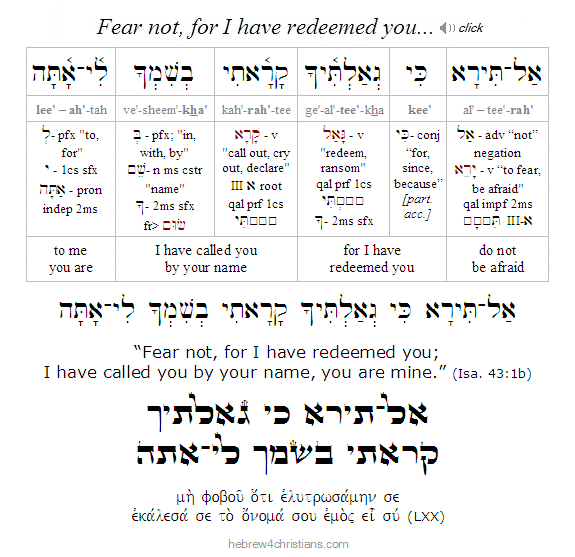 |
God has redeemed you, friend, and he has called you by your name; he knows you intimately, and you belong to Him. God does not call groups, but rather individuals. The Spirit calls out, "follow me..." The Lord never leaves nor forsakes those who trust in Him, even if they should face waters that seem to overwhelm or fires that seem to devour and consume.
Fooling Yourself...

05.25.21 (Sivan 14, 5781) It has been said that there are two ways to be fooled. One is to believe what isn't true; the other is to refuse to believe what is... Hence thinking that you are spiritual when you really are not is to deceive yourself, but so also is thinking you are not spiritual when you really are. In the former case you are a hypocrite, but in the latter case you are a person of little faith... If you are willing to honestly examine the status of your spiritual life, see whether you are trusting in your own will to believe, in your own obedience to the moral law, etc., or whether you are trusting in the Reality and power of the resurrected Savior to give you life from the dead...
We've learned from repeated failures that "the power of sin is in the law" (1 Cor. 15:56), that is, in the unjustified pride of the flesh (ego) that attempts to validate or justify itself. The business of working on yourself, excusing yourself, defending yourself, and so on runs so deeply within that Paul calls it the "law of sin and death" (תּוֹרַת הַחֵטְא וְהַמָּוֶת). Often we have to keep revisiting the same sins over and over until the message sinks in and we begin to "get it." Only God Himself knows how many iterations are needed, but the flesh seems irrepressible in its pride and therefore keeps attempting to operate "under the law." Living under the law, however, means living under the principle of self-justification, which invariably leads to failure, guilt, and the need for further self-justification. "Religion" can serve as a construction of the ego, an acronym that means "easing God out." The solution to this ever-turning "wheel of sorrow," this infinite and self-defeating "loop," is to "die to the law" and its demands and be raised to live in newness of life (Rom. 7:1-6; Gal. 2:19-21).
We read in our Torah portion this week (Beha'alotekha): "Now the man Moses was exceedingly humble, more than any other person on the face of the earth" (Num. 12:3). Note that the word "humble" (i.e., anav: עָנָו) can be rearranged to spell the word "iniquity" (i.e., avon: עוֹן) by swapping the letter Vav (ו), the symbol for man (i.e., "flesh"), in place of the letter Nun (נ), the symbol for life/Yeshua. This suggests that when we put ourselves as the center, we cease to be humble but instead become perverse; conversely, putting Yeshua in the center of your life instills true humility...
Hebrew Lesson:
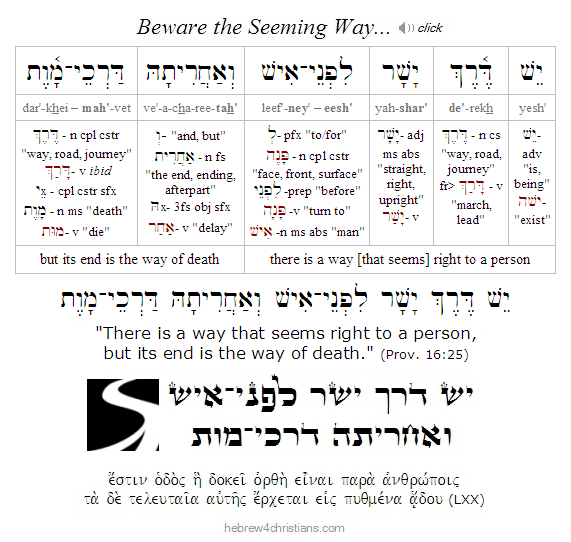 |
Faith in the Unseen Good...

[ The following is related to this week's Torah reading, parashat Beha'alotekha... ]
05.24.21 (Sivan 13, 5781) From our Torah this week (i.e., Beha'alotekha) we read: "At the command of the LORD they camped, and at the command of the LORD they set out" (Num. 9:23). This teaches us that God's Name is to be heeded every step of the way. Whenever we journey someplace, near or far, say, "With God's help (i.e., be'ezrat ha'shem: בעזרת השם) I am going to this place, and I will stay for so long, if it pleases God (i.e., im yirtzei ha'shem: אם ירצה השם)." As James reminds us, "You do not know what tomorrow will bring. For what is your life? You are a mere mist that appears for a little time and then vanishes (James 4:14-15). "Man is like a breath; his days are like a passing shadow" (Psalm 144:4). We share exile with the LORD in this age, as strangers and sojourners with Him; indeed, our lives are hidden with Him, waiting to be revealed (Col. 3:1-4). "The present form (τὸ σχῆμα) of this world is passing away" (1 Cor. 7:31), and the heart of faith looks for a city whose designer and builder is God Himself (Heb. 11:10). "So we do not lose heart... For the things that are seen are turning to dust, but the things that are unseen endure forever" (2 Cor. 4:16-18).
Hebrew Lesson:
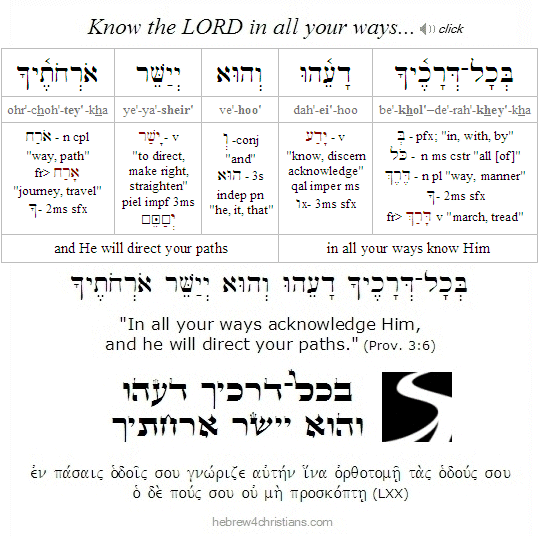 |
"In all your ways know Him," that is, in all that you put your hand to do respect the Lord and ask for divine guidance (1 Cor. 10:31). As King David stated, Shiviti: "I have set the Lord always before me, because He is at my right hand, I shall not be moved" (Psalm 16:8). "Do do be wise in your own eyes, fear the LORD and turn away from evil" (Prov. 3:7).
Daily Dvar Podcast:
Shadows and Substance...

05.23.21 (Sivan 12, 5781) Shalom chaverim. Our faith separates us from the visible and temporal realm to reveal the invisible and eternal realm -- faith hears (shema) the "yes" of the LORD in the midst of worldly dissipation and despair. Today's "Daily Dvar" broadcast discusses the walk of faith and how we need to remain focused on what is real in the midst of the ups and downs of our daily lives. I hope you find it helpful...
Parashat Beha'alotekha - בהעלתך
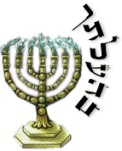
05.23.21 (Sivan 12, 5781) Shavuah Tov, chaverim. Our Torah portion for this week, called "Beha'alotekha" (i.e., Num. 8:1-12:16), begins with God giving instructions about how Aaron was to service the lamps of the Menorah within the Holy Place of the Tabernacle (Num. 8:1-4). Each day Aaron was to clean each of the seven lamps and to refill them with the very purest olive oil. The wicks were then to be bent so that the six outer lamps shined toward the seventh (and central) shaft. The lamps were to be lit daily, "from evening until morning," in a specific sequence - starting from the central lamp (the shamash) and then moving right to left (Exod. 27:21). According to the Talmud (Shabbat 22b), while all the lamps received the same amount of olive oil, the central lamp miraculously never ran out of oil, even though it was kindled first in the sequence. This miracle is also reported to have occurred during the Temple period, though it abruptly ended about 40 years before the destruction of the Second Temple (c. 30 AD), after the death of Yeshua the Messiah, the true Servant and Branch of the LORD. As it is attested in the Talmud: "Our Rabbis taught: During the last forty years before the destruction of the Temple the lot ['For the Lord'] did not come up in the right hand; nor did the crimson-colored strap become white; nor did the centermost light shine" (Yoma 39a).
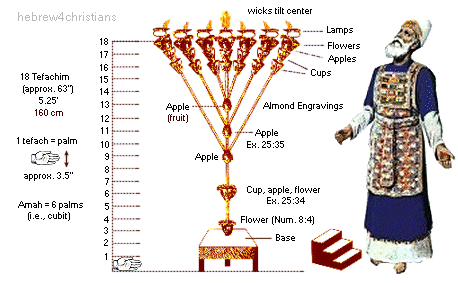 |
The portion then describes how the Levites were to be set apart for service at the Mishkan or "Tabernacle" (Num. 8:5-12). In a ritual ceremony that signified a sort of "rebirth," the Levites were first sprinkled with mei hachatat (מי חטאת), literally, "the waters of sin" (Num. 8:7), that is, holy water mixed with the ashes of the red heifer that was used to purify from contamination with death (Num. 19:13). Next they shaved off all their hair and were completely immersed in a mikveh (i.e., a bath containing flowing or "living" water). Notice that the steps of being sprinkled with purifying water, shaving off of all the hair, and being completely immersed in a mikveh were similar to the ritual for the cleansing of the metzora, or "leper" (Lev. 14:2-32). Rashi notes that each member of the community was then required to place their hands on the Levites' heads, just as the hands were placed on the head of a sacrificial animal as it was slaughtered before the altar (Num. 8:10; Lev. 1:4, 3:2). The "waving" of the Levites by the High Priest likewise simulated the ritual of "tenufah" (תנופה), that is, the waving of the guilt sacrifice (asham) offered by the leper after his cleansing (Lev. 14:12). Finally, the Levites themselves laid their hands on the sin and whole burnt offerings for atonement before the LORD (Num. 8:12).
Some themes for this week's reading include the symbolism of the Menorah and the Divine Light; the ongoing need for purification from sin; the role being a priest to one another; the call for holiness in the divine service; the Shekhinah Glory and Presence of God; the direction and leading of God; the tests we face as we journey through desert places; the problem of our complaining hearts; the requirement to live by "daily bread"; the importance of respecting elders; tzaarat and exile from the camp, among others.
Blessing of a Broken Heart...

05.21.21 (Sivan 10, 5781) "See to it that no one fails to obtain the grace of God; that no root of bitterness springs up and causes trouble, and by it many become defiled; that no one is immoral or profane like Esau, who sold his birthright for a single meal. For you know that afterward, when he desired to inherit the blessing, he was rejected, for he found no chance to repent, though he sought it (the blessing) with tears" (Heb. 12:15-17; Gen. 27:38). "For my people have committed two evils: they have forsaken Me, the fountain of living waters (מְקוֹר מַיִם חַיִּים), and hewed out cisterns for themselves, broken cisterns that can hold no water" (Jer. 2:13). Spiritually speaking, there are two basic sorts of breaking. One is to be broken by the inevitable sin and ruin of this world, and the other is to be made lev-nishbar (לֵב־נִשְׁבָּר), a broken heart, before the LORD. The former breaking comes from the vain attempt to find life in the broken vessels of this world, and "repentance" is expressed as remorse over perceived temporal loss. This sorrow eventually leads the soul to death (2 Cor. 7:10). To be inwardly broken, on the other hand, requires mourning over your life and returning to God for deliverance (Matt. 5:4). In hunger and thirst for God's righteousness the soul finds eternal satisfaction, since God alone provides the vessel of "living water" we need to live (John 4:14; 7:38). We all must drink from God's "fountain of life" (מְקוֹר חַיִּים) lest we suffer spiritual dehydration and death....
Are you haunted by an inner ache for love, joy, peace, and life? "Blessed are those who hunger and thirst for righteousness, for they shall be satisfied" (Matt. 5:6). Our inner poverty and need is a disguised grace; our desire for healing reveals the Spirit's invitation. Faith begins with the recognition of our need, since only then will we come to Yeshua for the "Bread of Life" (לֶחֶם הַחַיִּים) and the "Living Water" (מַיִם חַיִּים). Everything we need is found in him, though we must reach out in faith: "For without faith (אֱמוּנָה) it is impossible to please him, for whoever would draw near to God must believe that he exists, and that he rewards those who seek him" (Heb. 11:6). God rewards those who seek him; he answers the heart's cry; he responds to all who trust in his love and salvation. Therefore "ask, and it will be given to you; seek, and you will find; knock, and it will be opened to you. For everyone who asks receives, and the one who seeks finds, and to the one who knocks it will be opened" (Matt. 7:7-8). We are not saved by faith in our own faith, but in the Reality and Power of the LORD God who alone can raise the dead to new life.... May you seek His presence today. Shalom chaverim.
Hebrew Lesson:
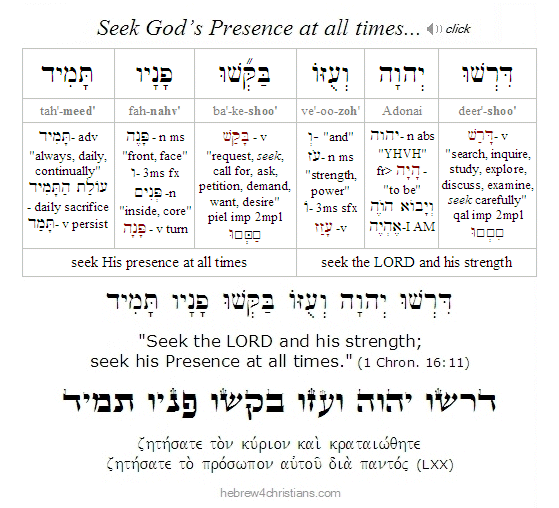 |
What are you seeking?

05.21.21 (Sivan 10, 5781) King David says in Psalm 27:4, "One thing have I asked of the LORD, that will I seek" (אַחַת שָׁאַלְתִּי מֵאֵת־יְהוָה אוֹתָהּ אֲבַקֵּשׁ). Notice that David asked for just one thing – not many things. He did not come with a litany of requests. He was not "double minded." David realized that what is most important is to have a seeking a heart, or rather, a heart that seeks that which is most important, and therefore he asked for the gift of focus and the pursuit of truth. He desired the "pearl of great price." Note further that the verb translated "I will seek" (avakesh) comes from the root word bakash (בָּקַשׁ) meaning "to wish" or "to desire." The verse could therefore be read as, "The one thing I ask from the Lord is for godly desire – for the will to "behold the sweetness of the Lord, and to inquire in His Presence." This is a prayer for the highest we may attain. The "one thing" David asked for was a heart made alive to perceive the wonder of God.
So what do you value and love the most? What determines the direction of your heart? Augustine of Hippo said "my love is my gravity," by which he meant that his desire draws him forth and reveals who is really is. What you love -- your desire, your heart's longing, your treasure, is your ultimate concern and what you secretly worship. "All who ask receive; all who seek find" (Matt. 7:7). Since not all matters of love are equally able to satisfy the true needs of the heart, however, we must be careful about what we desire and what we are seeking, for what you seek, you will find.
What we desire "bekhol levavkha" changes us; it affects us deeply; it takes us on a journey and ultimately manifests who we are. The more we love God, the more godly we will become, though the more we love pleasures and worldly matters, the more vain and empty we will become... The question is constantly being asked of our hearts - what do you really love? Be aware of what you are seeking, friend, for that will become your destiny...
Hebrew Lesson:
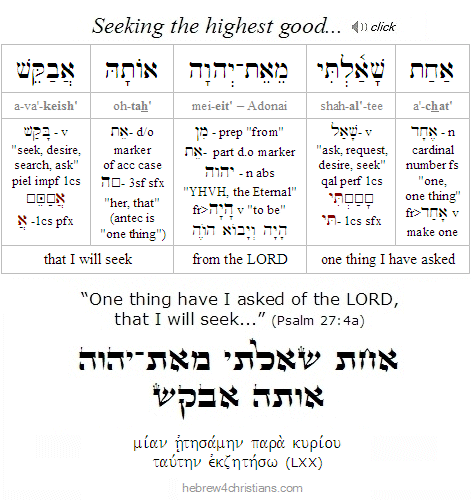 |
Being Filled with His Light...

05.21.21 (Sivan 10, 5781) Because Ultimate Reality is the Presence of the LORD, the meaning of life is found in a personal relationship with Him, that is, being in agreement with the Truth of Who God is. Sanctification, or growing in holiness, is the process of drawing near to the LORD and learning his character and will. As we are encounter the light of his truth, we will see more, and this enables us to follow him (i.e., share his heart and vision) more clearly.
May we always focus on Yeshua, the Light of Torah and the true Wisdom of God: "Whoever has My commandments (מִצְוֹתַי) and keeps them, that is the one who loves me. And the one who loves me will be loved by my Father, and I will love him and will manifest (lit., "shine within" from ἐν, "in" + φαίνω, "shine") myself to him" (John 14:21). There it is - the Source of the Light that overcomes all darkness; the Power that is behind the armor of God... Yeshua is the Beginning, the Center, and the End of all true meaning from God.
"Where your treasure is, there will be your heart also" (Matt. 6:21). Your heart, your soul, your inmost being: What you value most defines and "locates" you. We cannot not "treasure;" we cannot desire not to desire; we are inherently valuing beings. It's not a question of whether you will worship, but what you indeed are worshiping. Where is your heart? What are you seeking? Our heart, our core, our meaning is revealed by what we value most... And May God give you the grace to find true treasure!
Hebrew Lesson:
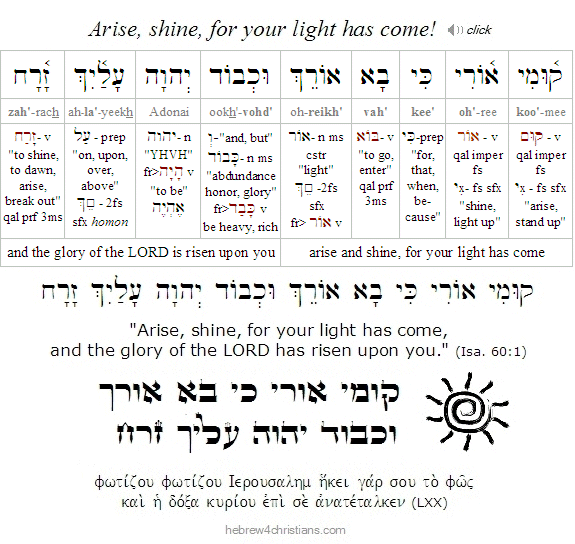 |
Out of the Depths...
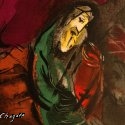
05.21.21 (Sivan 10, 5781) Some of us want "mountain top" experiences of God, but more often than not we learn "down in the valley," where the daily cares of life encroach upon our ideals and visions. Yet it is precisely there, in the "desert of the everyday," in the "testing of the tedious," in the "hazards of hopelessness," that we are enabled to elevate our consciousness to realize that God is "ezra ve'tzarot nimtza me'od" (עֶזְרָה בְצָרוֹת נִמְצָא מְאד) - a "very present help in our troubles" (Psalm 46:1). Amen, God is aware of our frustration, our lowliness, our fear, our suffering... When the LORD delivered his people by the miracle of splitting the sea (קריעת ים סוף), he closed off any way of escape apart from his direct intervention. The Egyptian army was behind them, the mountains hemmed them in, and the vast horizon of the sea loomed before their way. The only way of deliverance was from above, in the midst of our struggle, by God's own hand. Trust in God's healing and deliverance is the first step... The LORD is the Rock and all his ways are perfect (Deut. 32:4), and this must be affirmed especially if we cannot fathom the testing of our present circumstances...
Hebrew Lesson:
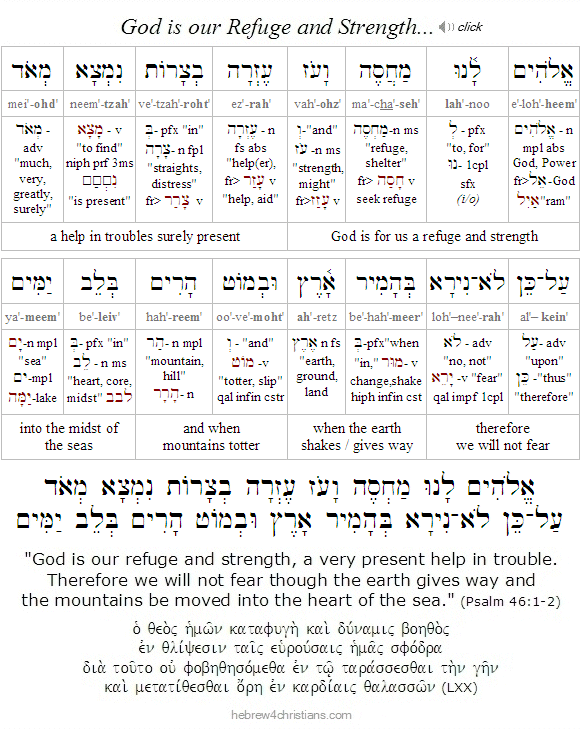 |
The True Prophet like Moses...
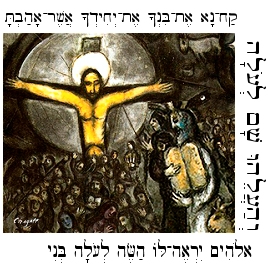
[ The following is related to this week's Torah reading, parashat Naso ("lift up!")... ]
05.21.21 (Sivan 10, 5781) In our Torah portion for this week, parashat Naso, we read Moses' great prophecy of the Messiah: "The LORD your God will raise up for you a prophet like me from among you, from your brothers -- it is to him you shall listen" (Deut. 18:15). Although there is not a lot of detail given in this prophecy, there is enough to determine some of the necessary conditions regarding the qualifcations for the great prophet to come. For instance, God would "raise up" this prophet, the verb "raise" used in this verse (i.e., קוּם) alludes to the divine power of resurrection (תְקוּמָה). This prophet also would "be like" Moses (כָּמֹנִי), which means that he would share the same characterisitcs of Moses who was a redeemer sent by the LORD, a teacher, a prophet, a lawgiver, and so on. Now Islam claims that this prophet to come was "Muhammad," though that is certainly false, since Moses clearly said that the prophet to come would be a Jew who would be from the people Israel ("from among you"), not from another nation, and particularly not from the descendants of Ishmael (i.e., from Hagar rather than Sarah; see Gen. 17:19-22; Gal. 4:22-26). So what characteristics were to mark this extraordinary Jewish prophet to come? To answer that question wisely, we must consider the life of Moses to discern the one who would be "like" him, that is, a prophet who would serve as an analog to his mission and life....
Consider, then that after being chosen by God to deliver Israel from bondage during the time of the Exodus, Moses became 1) the mediator (priest) of the covenant between God and the Jewish people, 2) the legislator the various commandments of the Torah, and 3) the prophet who received the vision of the Mishkan (the Altar), the future exile, and the ultimate destiny and glory of Zion. Moses was extraordinary because as the mediator of Israel, he instituted various sacrificial rites before the laws of sacrifice were enacted. For example, he instituted the Passover sacrifice in Egypt (Exod. 12:1-11), and when the people later reached Mount Sinai, he offered blood sacrifices to ratify the terms of the covenant (Exod. 24:8). As the great legislator of Israel, Moses declared the terms of the covenant, serving as its voice of authority. And finally, as the great prophet of Israel, Moses ascended the mountain and received the vision of the Mishkan (i.e., Tabernacle) before the priesthood had been instituted in Israel (Exod. 25:8-9). And even after the laws of the priests were proclaimed and the Mishkan was set up, Moses went before the very Holy of Holies to directly hear the Voice of the LORD, even though technically speaking this was forbidden, since he was not a kohen (i.e., descendant of Aaron). Indeed our Torah portion this week (i.e., parashat Naso) concludes, "And when Moses went into the tent of meeting to speak with the LORD, he heard the Voice speaking to him from above the mercy seat (i.e., kapporet: כַּפּרֶת) that was on the Ark of the Testimony, from between the two cherubim; and it spoke to him" (Num. 7:89). Near the end of his life, Moses message to Israel was summarized in a prophetic song called Ha'azinu that foretold Israel's entire history, past, present, and including the future redemption of the Jewish people.
"A prophet like unto me..." (Deut. 18:15). I mention all this because some people stumble over the fact that Yeshua, who was from the tribe of Judah, served as Israel's High Priest of the New Covenant, but Moses was from the tribe of Levi . But remember, though Moses was a Levite, he was not a member of the priesthood, even though he had defined the role of the sacrificial system to Israel and had direct access to the presence of the LORD within the sacred chamber of the Mishkan itself. Of course this issue is addressed in the Book of Hebrews, where the role of the Malki-Tzedek priesthood is ascribed to King Yeshua (Heb. 5:6-11; 7:1-19), but it is important to realize that Moses himself foresaw the coming of the Messiah as Israel's great Prophet, Priest and King (Deut. 18:15-19; John 5:36). Therefore, just as Moses himself was "outside" the law by serving as Israel's priest but nevertheless was commissioned by God Himself, so also with Yeshua, who instituted the sacrifice of His blood as the Lamb of God and who went directly before God's Throne to intercede on our behalf. For more on this subject be sure to see "Moses' Prophecy of the Messiah."
Hebrew Lesson:
Deut. 18:15 reading (click):
Irrepressible Truth...

05.21.21 (Sivan 10, 5781) Those who deny that objective truth exists (or those who deny that something may be known about reality) are themselves making a truth claim, namely the claim that there is no such thing as objective truth (or that real knowledge of the world is not possible). This self-inflicted incoherence is a sign of irrationalism, of course, the abandonment of reason, which perhaps is the ulterior motive for such manner of thinking, after all. The person who denies truth does so to escape the demands of truth – to flee from personal responsibility before moral and spiritual Reality. It is a form of "wish-fulfillment" to say that people are not responsible for what they believe and how they live their lives. Hence our culture's obsessive "busyness," its craving for ongoing diversion, entertainment, fantasy, escapism, and so on. Our generation finds evil in "boredom" and finds nothing of lasting interest because it has forsaken the big questions of life and the pursuit of truth. Popular culture encourages apathy, indifference, and seeks to enslave people to thrills (and fears) of the present moment... The ancient pagan world at least esteemed honor and believed in the pursuit of virtue and truth, but today's post-Christian world is nihilistic, anarchist, and therefore marks a return to barbarism.
What you say about the present state of mankind is true: indeed it is even worse than you say. For they neglect not only the Law of Christ, but even the Law of Nature as known by the Pagans. For now they do not blush at adultery, treachery perjury, theft and other crimes, which I will not say Christian doctors, but the Pagans and Barbarians have themselves denounced. They err who say: "The world is turning pagan again." Would that it were! The truth is, we are falling into a much worse state. Post-Christian man is not the same as pre-Christian man. He is as far removed as a virgin from a widow ... there is a great difference between a spouse-to-come and a spouse sent away. (C.S. Lewis: Latin Letter 23, 1953)
The unintelligible claim that truth does not exist is not unlike the the incoherent claim that there is no God, no Supreme Being, and no Primordial Intelligent Cause for all that exists. For an atheist to seriously claim there is no being in any possible world that fits the description of "God," he or she would have to be omniscient, omnipotent, and indeed exercise the very attributes of the Being which is denied to anywhere exist...
Hebrew Lesson:
Receiving what you give...

[ The following is related to this week's Torah reading, parashat Naso ("lift up!")... ]
05.20.21 (Sivan 9, 5781) From our Torah portion this week (i.e., Naso) we read: "Each one shall keep his holy donations: whatever anyone gives to the priest shall be his [לוֹ יִהְיֶה]" (Num. 5:10). This is the spiritual principle that what we give away is what we possess, and as we measure, so will be measured back to us again (Luke 6:38). The sages comment that being selfish, acquisitive, and power-hungry are drives common among the animals, but what makes a man unique is his ability to sacrifice himself for others. Giving tzedakah, then, is an inherently spiritual act, and ultimately only that which we give to others in love will be kept as holy. "For where your treasure is, there your heart will be also" (Matt. 6:21).
As you believe, so you will receive (Matt. 21:22). This is the "like for like" principle of faith. Forgive us as we forgive; judge us as we judge; love us as we love; make us righteous as we take hold of righteousness, give us courage as we believe, and so on. As Isaiah said to Ahaz: "If you will not be firm in faith, you will not be firm at all" (Isa. 7:9). Your "amen" echoes the "amen" of heaven: "Let it be done for you according to your faith" (Matt. 9:29).
Instead of refusing to judge others (in the name of tolerance), or judging them in terms of their worth, we are commanded judge people favorably by using a "good eye" (עַיִן טוֹבָה). As it is written in the Torah, "in righteousness judge your neighbor (בְּצֶדֶק תִּשְׁפּט עֲמִיתֶךָ)" (Lev. 19:15). Notice that the word translated "righteousness" is tzedek (צֶדֶק), a word that includes the heart motive of "charity" and love. We are commanded to give tzedakah (צְדָקָה, "charity") not just because it is "right," but it is right because it is based on God's love and care for others. Something is righteous, in other words, because it expresses the truth about God's love. We could read this commandment as "in love judge your neighbor." Our judgments should be based on compassion, empathy, and care for others - never as a verdict about someone's worth and status before God. We see with a redemptive eye, and that means seeing the potential of others and their inherent worth as God's children.
Lord, help me receive what you give and give what I have received, for love's sake. Amen.
Hebrew Lesson:
The Blessing of Shalom...

[ The following is related to this week's Torah reading, parashat Naso ("lift up!")... ]
05.20.21 (Sivan 9, 5781) "May the LORD lift up his face upon you and give you peace" (Num. 6:26). That is, may the LORD "lift up his face" (יִשָּׂא יְהוָה פָּנָיו) toward you in welcome, and may his countenance be radiant with joy over you. May his face be "toward you," not turned away or hidden... When God turns toward you, he imparts the blessing without which all other blessings are beholden, namely, his peace (i.e., shalom). After all, what good is worldly prosperity or temporal pleasure apart from God's blessing of peace? To have shalom (שָׁלוֹם) is to be made shalem (שָׁלֵם) – made whole, complete, secure, happy – and therefore the peace of God (שְׁלוֹם הָאֱלהִים) is assuredly the most essential blessing.
Let me add that there is objective, God-established peace found in our Savior: "since we have been justified by faith, we have peace with God through Adoneinu Yeshua Mashiach" (Rom. 5:1). This is the reconciliation that God effected through the cross of Yeshua for our atonement (Rom. 5:11). God's love makes our eternal peace real, secure, and finished... There is also a subjective side of peace, however, that is a fruit of the Spirit of God: "But the fruit of the Spirit is love, joy, peace..." (Gal. 5:22). This is the inner peace that we experience by trusting in God's care for our lives, despite our struggles; such peace comes when we allow the Spirit of God to reign within our hearts by faith (Phil. 4:7; Col. 3:15).
Hebrew Lesson:
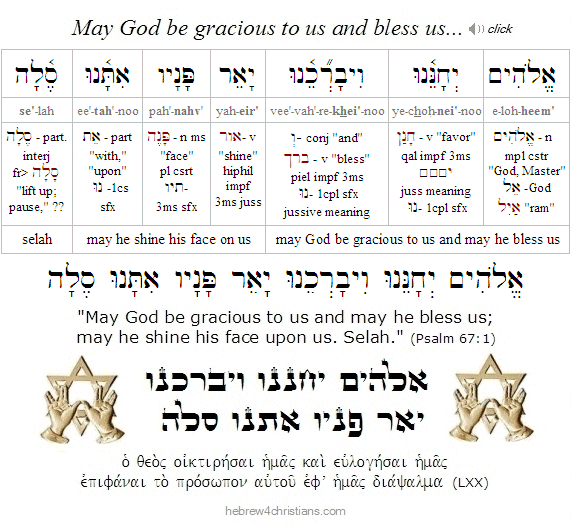 |
The Truth about Freedom...

05.20.21 (Sivan 9, 5781) Our Savior says: "You shall know the truth and the truth shall make you free" (John 8:32). Spiritually understood the soul in its natural state is sick, in a state of error and ongoing self-deception. The truth sets us free from our self-imprisonment, from the bondage we have to our illusions, so that we may be healed, transformed and made new. However, knowing the truth is more volitional than it is cognitive – it is revealed in our decisions and actions, not merely in holding to a "true opinion" or assenting to a "true creed." Knowing the truth permeates the whole person – bekhol levavkha – and accepts all the consequences of its decision and passion. There is real danger here, friends. Even learning Scripture and studying theology may become untruth if it is devoid of the fear of the Lord. "How many have asked, 'What is truth?' and at bottom hoped that it would be a long time before the truth would come so close to him that in the same instant it would determine what his duty was to do at the moment?" (Kierkegaard: Works of Love).
The deeper question is whether you actually want genuine freedom, since many are content to "exist" in the cold comfort of their resentments, in the desert of the self-serving ego, and in the wasteland of anger and fear... Self-deception is enticing because it provides an excuse to be mediocre; it justifies a victim mentality and abnegates personal responsibility. It is far easier to blame others for your life than to own the truth about yourself, to walk in the truth, and to seek the blessing of truth. Spiritual freedom means being awakened and empowered to choose the Eternal by denying the present moment's demand to be made absolute. It offers no peace to the natural desire for the soul to return to its sleepy state, but calls and rouses the heart to wake up and confront the demands of eternity...
In heaven there is only the language of truth, and truth is the language of heaven. "If we ask according to his will, he hears us..." (1 John 5:14). This means that words find their traction only in honesty of the heart, in the midst of our deepest need. Only in "fear and trembling" can we talk with God, though when we pray fervently, our words may trail off until we become silent.... But it is there, in the silence of the soul, that we may learn to listen to the Spirit and hear God's voice. When we seek first the kingdom of God, we will lay aside everything else, quiet our hearts, and focus our will. Seeking God in this way is an end in itself, for whatever else we may seek must be subordinated to this greater seeking. "You will seek me and find me, when you seek me with all your heart" (Jer. 29:13).
Hebrew Lesson:
Receiving the Blessing (קבלת הברכה)

[ The following is related to this week's Torah reading, parashat Naso ("lift up!")... ]
05.20.21 (Sivan 9, 5781) The LORD spoke to Moses, saying, "Speak to Aaron and his sons, saying, 'Thus you shall bless the people of Israel, saying: "May Adonai bless you and keep you from illusions; may Adonai shine divine light upon you; may Adonai reveal his presence to you.' So shall they put my Name upon the people of Israel, and I will bless them" (Num. 6:22-27). The question is asked why the kohanim (priests) were needed to confer God's blessing, and what is meant by the idea of God "setting his Name" upon the people. The sages reply that the blessing is bestowed by a mediator to show that all things flow from the Holy One, and there is no one who can rightly say, "by my strength and my power alone has this come to pass" (Deut. 8:17). Therefore the blessing is graciously given to those who simply open their hearts to receive it: "May Adonai bless you; may Adonai shine divine light upon you; may Adonai reveal his Presence to you..." Everything that comes to us comes in God's Name, as it is written: "Every good gift and every perfect gift is from above, coming down from the Father of Lights (אֲבִי הָאוֹרוֹת) with whom there is no variation or shadow due to change" (James 1:17). The blessing of God (בִּרְכַּת יָהּ) is to "bear His Name" by being filled with the strength of His Presence, walking in the flow of His power, completely in union with His will... Bearing the Name of the LORD means being surrendered and identified with his heart in all things.
Hebrew Lesson:
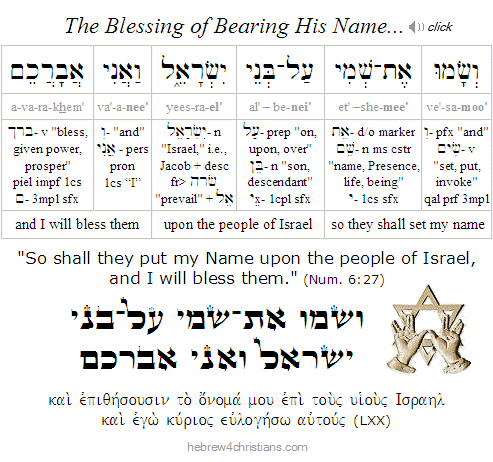 |
Cries from the heart...

05.19.21 (Sivan 8, 5781) Yeshua taught us to be focused and to refrain from using "vain repetitions" (i.e., βατταλογέω - "babbling words") in our prayers, since our Father knows what we need before we ask Him (Matt. 6:7-8). What He wants is "us" - all our heart and hunger for life - not some formula or recipe of words to appeal to him. Don't worry about the verbiage of your prayers, then, but attend to the inner groan of your heart (Rom. 8:26). "When you pray, rather let thy heart be without words than thy words be without heart" (John Bunyan). Ultimately prayer is a kind of teshuvah (תְּשׁוּבָה), a word often translated as "repentance," though it's more accurately understood as turning (shuv) to God in response to His call. Sometimes you just come and present yourself in God's presence, without words, without requests... You just sigh, or let your heart groan in silence. The point, of course, is that you come to the Lord to do real business with Him, not to play games or to offer "lip service." Are we really "showing up" when we pray?
Hebrew Lesson:
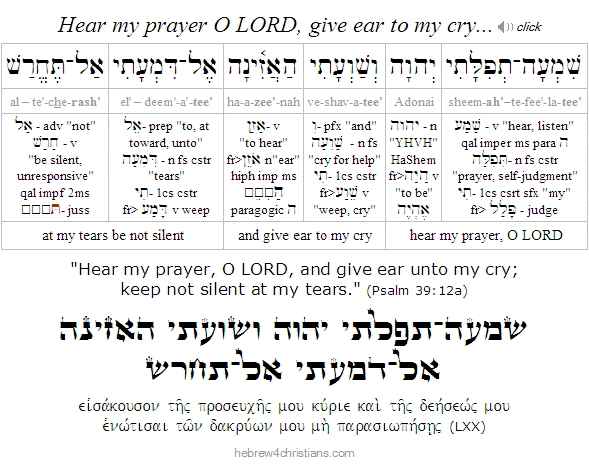 |
Deliverance from Anxiety...
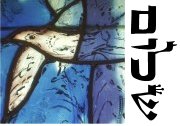
05.19.21 (Sivan 8, 5781) It is written in our Scriptures: "Do not be anxious about anything, but in everything by prayer and supplication with thanksgiving let your requests be made known to God" (Phil. 4:6). Note that the verb translated "be anxious" here (i.e.,μεριμνάω) comes from a root word (μερίζω) that means to be fragmented or divided into parts and pieces. Being anxious is therefore the uneasy state of being distracted, unfocused and divided within yourself. When we worry we heed voices of fear and begin to feel 'double-minded,' (i.e., δίψυχος), unstable, and unable to think clearly; we get restless and find it difficult to deeply breathe. We start to feel out of control, fearful that something bad will happen despite all our efforts or wishes to the contrary; we sense doom; we lose heart; we go dark... The Scripture here admonishes us to pray when we are tempted us to be anxious by focusing on something for which we are grateful. Doing so will instill the "peace of God" (שלום יהוה) that rises above all worldly thinking to keep watch over your heart and your thoughts through Yeshua the Messiah (Phil. 4:7). We gain the "light of life," that is, inner illumination from God, so that we can remain steadfast and unmovable in our faith, despite the temptation to look for relief from our struggles apart from God.
Hebrew Lesson
Isa. 26:3 Hebrew reading (click):
The Eyes of the LORD...
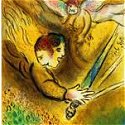
05.19.21 (Sivan 8, 5781) There is a story about how the Baal Shem Tov once hired a wagon driver to take him to a nearby village. On the way, the two men soon passed by a field laden with luscious produce. The driver stopped the wagon, turned to the Baal Shem Tov - whose identity he did not know - and said with a wicked grin, "I'm going to fetch us some good vegetables from that field now. You be on the lookout. Call out if you see anyone!"
Just as the driver bent down to pick some vegetables, the Baal Shem Tov screamed, "We're seen! We're seen!" The frightened man then ran back to the wagon and raced away. After traveling some distance he turned around and realized that no one was following them. "Why did you call out like that?" he angrily chided the rabbi. "There was nobody watching." The Baal Shem Tov then pointed upward and said: "God was watching; God is always watching, as is written: 'The eyes of the LORD are in every place, observing the evil and the good.'"
Hebrew Lesson:
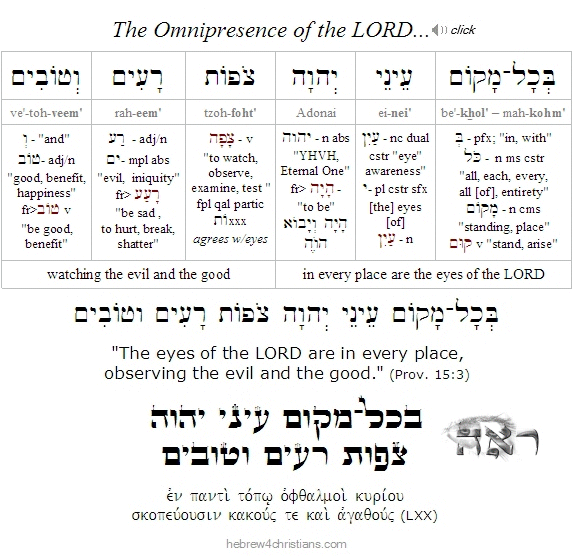 |
From our Torah reading this week (i.e., parashat Naso) we read, "If any... goes astray and breaks faith..." (Num. 5:12). The sages comment that the Hebrew for "goes astray" (i.e., tisteh: תִשְׂטֶה) is written so it may also be read as "goes insane" (i.e., tishteh: תִשְׁטֶה), and concludes that sin is a form of insanity, that is, a denial of what is real, and therefore a state of delusion. We are required, of course, to believe that God is knowable (Rom. 1:19-20), that we are always in His presence (Prov. 15:3; Psalm 94:9; 139), that He knows all things (Psalm 147:5), and nothing can be hidden from Him (Isa. 40:28; Jer. 23:24; Heb. 4:13), but when we sin, we "break from" this reality and deny the divine Presence by a perverse act of self-exaltation. Whenever we imagine that we are unseen by God or whenever we "forget" that we live, move, and have our being in His presence, we are denying reality. Our sin causes us lose sight of what's real: we forget who God is; we forget who we are; and we exile ourselves from the Source of life... Surely sin is a form of insanity, and therefore we have a moral and spiritual obligation to think clearly and to value truth.
As Rabbi Judah would say, "Contemplate three things, and you will not come to the hands of transgression: Know what is above from you: a seeing eye, a listening ear, and all your deeds being inscribed in a book" (Pirke Avot 2:1). Therefore "fear God and keep his commandments, because this is the whole duty of man. For God will bring every deed into judgment, with every secret thing, whether good or evil" (Eccl. 12:13-14).
Hebrew Lesson:
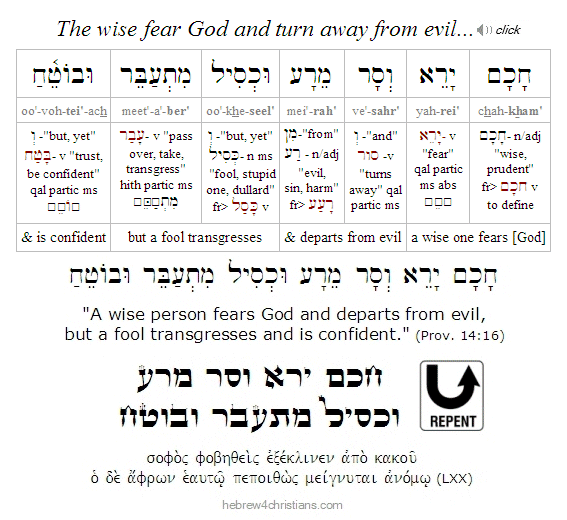 |
The War for Our Souls...

05.18.21 (Sivan 7, 5781) There is a great war going on, but it's not a war waged with conventional weapons. This is the war for the souls of human beings, and every person alive is currently engaged in it... There is no place of neutrality in this war, and you cannot escape from the conflict. The enemy is now at the gate, the battle lines drawn. Pastors are being arrested around the world for holding church services; civil liberties and freedoms are being striped away from us in the name of state "security" for the "greater good." Passivity or indifference is not an option, and therefore each of us must choose. We are either going forward or going backward; we are either drawing near or pulling away (Rev. 3:16). The question is now made urgent: מי ליהוה אלי - mi Adonal aylai? "Who is on the Lord's side?"
The apostle Paul wrote about this great war when he said: "For though we walk in the flesh (i.e., as mortal men), we are not waging war according to the flesh (i.e., in human terms). For the weapons of our warfare are not of the flesh but have divine power to demolish strongholds. We destroy arguments and every lofty opinion raised against the knowledge of God, and take every thought captive to the truth of Messiah" (2 Cor. 10:3-5).
Successful spiritual warfare is waged in the spirit realm, not relying on physical means at all, but trusting in the power of God and the weapons he gives to demolish "strongholds" where evil is deeply rooted (the word "stronghold" is better translated as "fortress," a metaphor for militant prejudice that attempts to justify godlessness). In the profane world, these strongholds are expressed in the reasoning (i.e., λογισμός, "logic") and "arrogant opinions" (i.e., ὕψωμα, pretenses) of the godless heart that are distilled into a dark vanity called "the wisdom of this world" (1 Cor. 3:19). The phrase "every lofty opinion raised against the knowledge of God" refers to the various devices of the heart and mind that erect obstacles to the knowledge of the truth revealed in the Messiah. Such obstacles are affirmed daily in the treacherous news of this world that reinforce godless assumptions and ongoing deception. We must use active discernment to identify the fallacies and misleading schemes promulgated by the world system by "taking every thought captive" to the glorious truth of the Messiah.
This is the good fight of faith (1 Tim 6:12). The fight is "good" because it turns on the victory and glory of the Lord who shares his overcoming life with us. The battle belongs to the Lord; the victory has been secured (Psalm 84:11; Rom. 8:37-39). Always remember that we never fight for, but always from, the place of His victory, standing our ground in the sufficiency of God's power given to us (Luke 10:19). We must be sober and vigilant (1 Pet. 5:8-9); we must stay focused and persevere in the truth (2 Tim. 2:4). God gives us the "armor of light" that blinds the eyes of powers of darkness. We must not be afraid but stand firm in the strength given to us by the Spirit of God (Zech 4:6; Eph. 6:11-18). The Lord will help us in the battle (2 Thess. 3:3; Deut. 3:22). "No weapon that is fashioned against you shall succeed, and you shall refute every tongue that rises against you in judgment. This is the heritage of the servants of the LORD and their vindication from me, declares the LORD" (Isa. 54:17).
Hebrew Lesson:
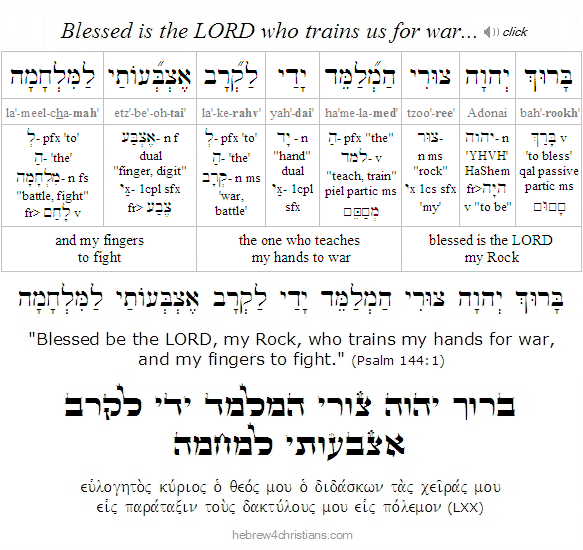 |
Heirs of the Spirit (יורשי הרוח)

05.18.21 (Sivan 7, 5781) "Not all who are (physically) descended from Israel (οἱ ἐξ Ἰσραήλ) are (spiritually) Israel, nor are all (physical) descendants (σπέρμα) of Abraham his (spiritual) children (τέκνα); but בְּיִצְחָק יִקָּרֵא לְךָ זָרַע - 'in Isaac shall your seed be called'" (Rom. 9:6-7; Gen. 21:12, 32:28), which is to say that a child of promise is brought forth by the power of God, and not by means of human agency (see John 1:12-13). Though both Ishmael and Isaac were physical descendants of Abraham, the former was born of the flesh (κατὰ σάρκα) whereas the latter was born of the Spirit (ἐκ τοῦ πνεύματος), and this is why Isaac was the true heir of the faith. Note how faith expresses the direction of life. Isaac surrendered himself as a sacrifice to God, whereas Ishmael contended for worldly power. The "children of the flesh" often regard themselves as "free" when in fact they are slaves since they do not know the blessing of true surrender to God. Friend, if you are depending on your own inner strength, your resolve, or your "religion" to save you, then you have not taken hold of the promise, for it is receiving the promise of God that imparts life. You may regard yourself as a "spiritual" person but be a stranger to the heart of Reality. We are healed from the sickness of spiritual death only by the power of God, by being reborn with a radically new nature though the agency of the Spirit, not by attempting to "reform" our lower nature nor by taking pride in our lineage, religion, or our status in this world (Matt. 3:9, John 8:39-45).
For more on this topic see "Paul's Allegory of Flesh and Spirit."
Hebrew Lesson:
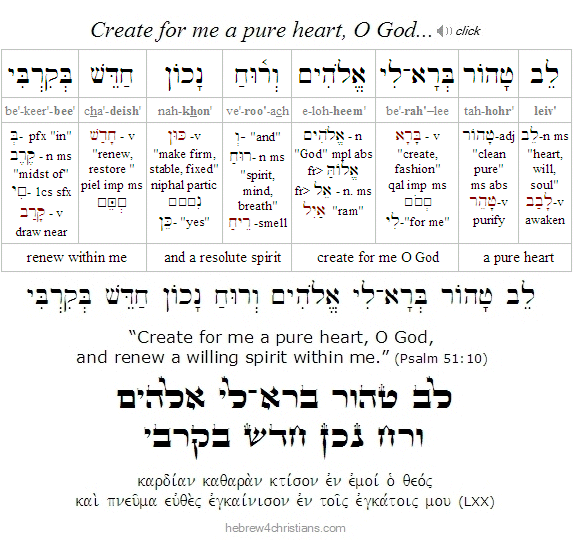 |
Changed by His Spirit...

05.18.21 (Sivan 7, 5781) The Apostle Paul (רבי פאולוס השליח) taught that we are not to be "conformed" (συσχηματίζω) to the pattern of this fallen world but rather be "transformed" (μεταμορφόω) by renewing our minds, so that by testing we may discern what is the will of God (Rom. 12:2). Note that the word translated "conformed" in this verse means to accept the world's scheme (σχῆμα) of understanding things, that is, to passively go along with the world's matrix of lies, wishful thinking, propaganda, etc. The word translated as "transformed," on the other hand, means to be metamorphosed or radically changed into a different kind of nature with a different source of being itself. Such transformation comes from having our minds "renewed" -- the word used in this verse (i.e., ἀνακαινόω) means being "made new on the inside," and therefore renewal is the gift of teshuvah (turning to God). Understand, then, that the foundation of all transformation of inner character and outward conduct comes from the miracle of having a renewed mind. I use the word "miracle" quite intentionally, since by itself "right thinking" is powerless to help the sinner truly change his ways, and therefore something more - new life and healing power from heaven, is needed.
Hebrew Lesson:
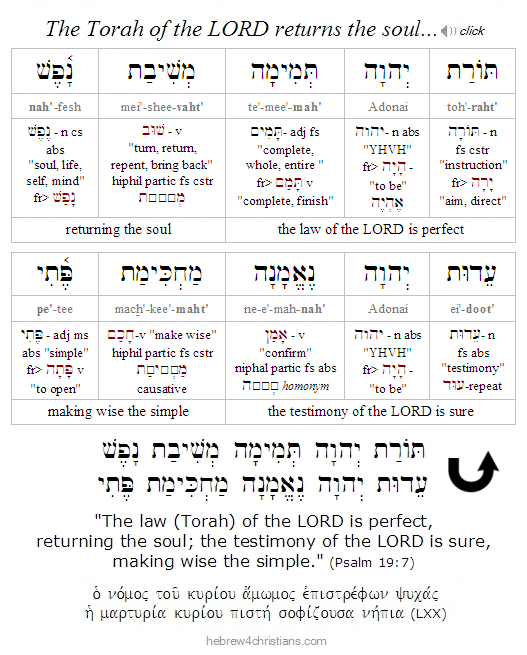 |
Strangers to this world...
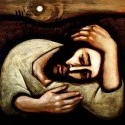
05.18.21 (Sivan 7, 5781) God's people are "strangers" in this world; they are literally "e-stranged" and live as "resident aliens" -- here, yet not here.... We wander; we are lonely; we yearn for our heavenly home. Life in this world is "olam ha'sheker," the false world -- full of deception, troubles, and struggle. Here there is no lasting hope, no abiding...
Faith in the LORD constitutes both a type of "protest" against any interpretation of reality that excludes, suppresses, denies, or minimizes the Divine Presence, and constitutes a heavenward cry for the place where we truly belong.... The life of faith therefore calls us to live as toshavim - sojourners - who are at an infinite "distance" from the world of appearances and who seek the Eternal. If you feel crazy in an insane situation, then you are really quite sane... The world will feel oppressive and strange once you have been awakened from its madness and refuse to be moved by the delusions of the crowd... Life in olam hazeh (this world) is a place of passing that leads to the world to come. Our faith affirms that underlying the surface appearance of life is a deeper reality that is ultimately real and abiding. It "sees what is invisible" (2 Cor. 4:18) and understands (i.e., accepts) that the "present form of this world is passing away" (1 Cor. 7:31).
Hebrew Lesson:
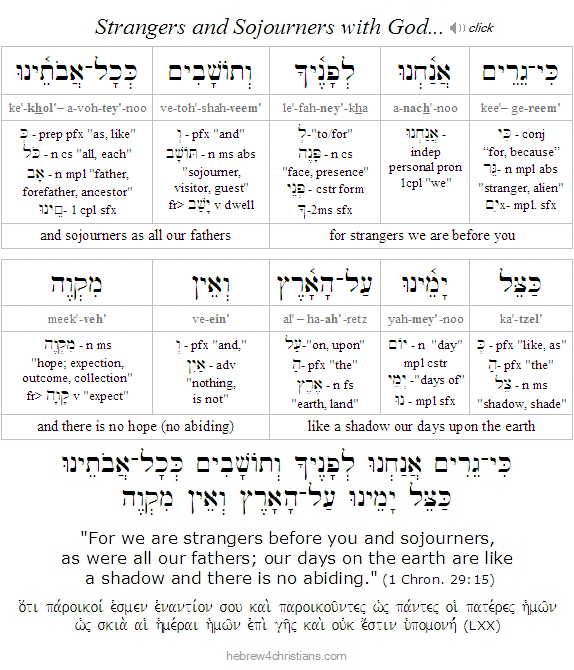 |
The Ultimate Reality...
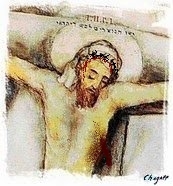
05.18.21 (Sivan 7, 5781) The revelation of God in Yeshua means that Ultimate Reality -- that is, the transcendental source of all that exists -- is intensely personal, intimately knowable, and full of love. "Metaphysics" (i.e., that which is "really real") is therefore not about an impersonal force known in objective relationship (i.e., a "what") but a personal agency and creative mind known in subjective relationship (i.e., a "who"). The Scriptures teach that what is ultimately real (אהיה אשׁר אהיה) is the Ultimate Person of the LORD (אני יהוה). In Him we "live and move and have our being" (Acts 17:28).
The LORD who is the Most High, the possessor of heaven and earth (אל עליון קנה שׁמים וארץ) is not just the Creator and Sustainer of all possible worlds, but the Lover and Redeemer of our very souls -- the One who empties himself to become "with us" and who overcomes the sickness of death for us... The climactic expression of the character of Ultimate Reality is revealed at Golgotha, the "place of the skull," where God's sacrificial life in Yeshua destroyed death by the greater power of divine love (Psalm 85:10). The heart of our Lord as he suffered and died for our sins reveals the great compassion of God; it is "ha'makom," the place of his atonement for us; his hidden dark cloud, and his resurrection glory reveals our deliverance for death. God loves us despite knowing all of our sins and yet redeems us from its curse...
We "connect" with the truth of God by means of the instrumentality of faith, and the essential question is whether we are in a "trusting relationship" with God or not, for if we do not truly know God as our loving Savior, we remain lost, in darkness, and alienated from the life of God. Faith is self-authenticating as we experience grace in the exercise of our trust in God.
Practically speaking, our relationship with God "shows up" in our lives by means of the various choices we make, though particularly in our moral choices. That's because righteousness is "ontological," or grounded in what is real. Since God is righteous, doing acts of righteousness partake in God's life and passion (1 John 2:29). On the other hand the practice of sin deadens us and turns us away from God's Presence...
Love is essentially relational, and therefore the Scriptures reveal God as being in relationship both with others within creation, but also within himself - the One God is unity in plurality of relationship: Father, Son, and Holy Spirit (John 17:24). The "I AM" of God (Being) is also known in the "Thou Art" of God (Doing). God is not only the Eternal Lover but also the Eternal Beloved, and the bond of that love is the Spirit of God "hovering above the depths." "Draw near to me, hear this: from the beginning I have not spoken in secret, from the time anything came to be there I AM, and now the Lord GOD has sent me, and his Spirit" (Isa. 48:16). Note in this verse the transpersonal unity of the Godhead.... Now while the Torah certainly affirms that "God is one" (יהוה אחד), note that the word "one" (i.e., echad: אֶחָד) means something more than merely numerical identity (i.e., yechidut: יְחִידוּת) but instead unity in plurality, a "transcendental oneness" that points to the unfathomable mystery of the Name YHVH (יהוה) and the ineffable Godhead (אֵין סוֹף). God is love means that he is the Lover, the Beloved, and the Communion of true love in all possible worlds.
The doctrine of the tripartite-yet-one divine nature (השילוש הקדוש) is not known apart from the revelation of Yeshua, and it is an essential part of His message of redemption to us (John 17:3). In other words, if you believe that Yeshua embodies and reveals the "Who" of Ultimate Reality, then you will accept his teaching that God is expressed in relationship - the Son in relation to the Father and to the Holy Spirit, and that these three are "echad," or one... "The Father has borne witness of me; whoever has seen me has seen the Father" (John 5:37; 14:9); "I and the Father are one"; "before Abraham was, I am..." "who is the liar but he who denies that Yeshua is the Messiah? This is the antichrist, he who denies the Father and the Son" (1 John 2:22). Believers in the Lord are commissioned to go and make students (תלמידים) of all the nations, baptizing them (i.e., identifying them) in the name of the Father, and the Son and the Holy Spirit" (Matt. 28:19).
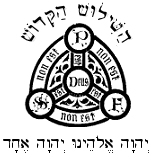 |
Hebrew Lesson:
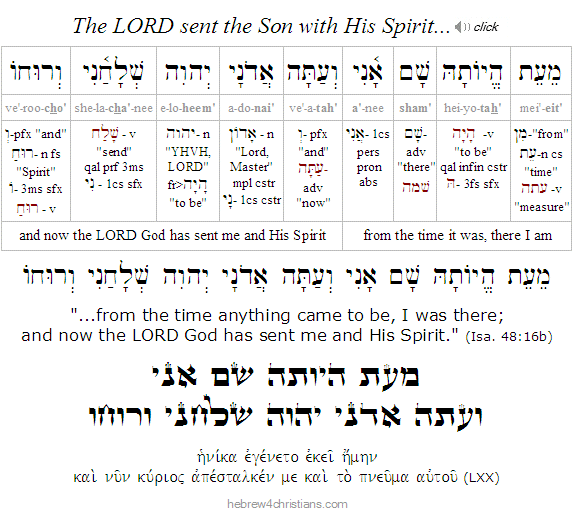 |
There are various clues given throughout Scripture about God's divine nature (Rom. 1:20). The Torah itself begins with intimations of the "One-in-the-Many" character of God. When we read, "In the beginning, God (אֱלהִים) created the heavens and the earth," we must ask who exactly is speaking? In other words, who is the divine narrator of the Torah? The next verse states that the Spirit of God (רוח אלהים) was hovering over the face of the waters, followed by the first "direct quote" of God Himself: i.e., יְהִי אוֹר: "Let there be light" (Gen. 1:2-3). The creative activity of Elohim (God) and the presence of Ruach Elohim (the Spirit of God) are therefore narrated by an omniscient Voice or Davar Elohim (the Word of God). Obviously the Spirit of God is God Himself, just as the Word of God is likewise God Himself, and consequently the very first verses of the Torah reveal the nature of the Godhead: God is One in the sense of echdut, "unity," "oneness," and so on, though not "one" in the monistic sense of a solipsistic mind (νοῦς). Indeed, a monistic idea of God (i.e., God as "absolute" oneness) is inherently self-absorbed and unable to accommodate being outside of itself. Such a god may serve as an "unmoved mover" or "first cause" of a cosmic machine, but it is not relational within itself. Indeed, there can be no sense of "person" apart from relationship, and therefore God's Personhood is as eternal as his Being.
Yeshua is the Source of all life in the universe: כָּל־הַמַּעֲשִׂים נִהְיוּ עַל־יָדוֹ / "All things were made by Him (John 1:3). The "Word made flesh" is the "image of the invisible God" and the "radiance of the glory of God and the exact imprint (χαρακτήρ, 'character') of his nature" (Col. 1:15). All of creation is being constantly upheld by the word of His power (Heb. 1:3): "All things were created by Him (i.e., Yeshua), and for Him" and in Him all things consist (συνεστηκεν, lit. "stick together") (Col. 1:16-17). As our Creator and Master of the Universe, Yeshua is both our King and our Judge, and therefore our lives center upon him... Ultimate Reality is found in the presence of Yeshua our LORD, and eternal life is found in Him alone: "For God, who said, "Let light shine out of darkness," has shone in our hearts to give the light of the knowledge of the glory of God in the face of Yeshua the Messiah" (2 Cor. 4:6). "And we all, with unveiled face, beholding the glory of the Lord, are being transformed into the same image from one degree of glory to another. For this comes from the Lord who is the Spirit" (2 Cor. 3:18).
"The grace of the Lord Yeshua the Messiah (האדון ישׁוע), and the love of God (אהבת האלהים), and the communion of the Holy Spirit (רוח הקדשׁ), be with you all" (2 Cor. 13:14).
Hebrew Lesson:
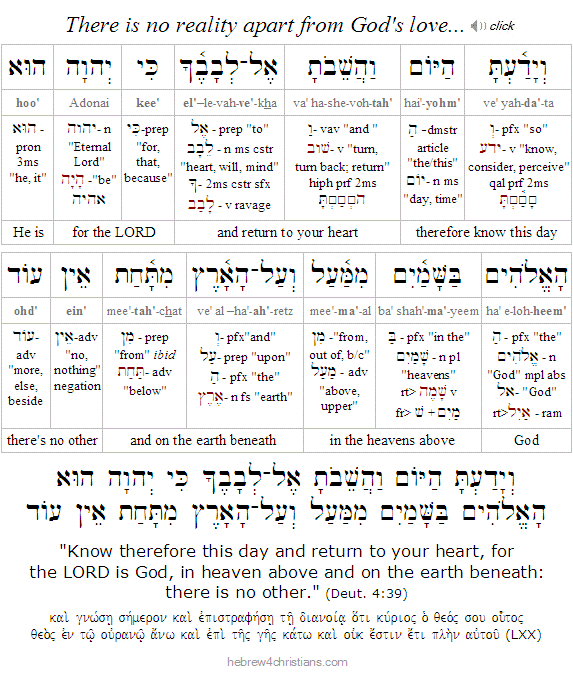 |
Walking in the Light (אור התורה)
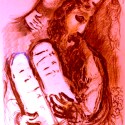
05.17.21 (Sivan 6, 5781) While it is wonderfully true that Yeshua died to free us from our sins, the corollary is that he imparts life for us to walk in the light of his glorious Divine Presence (2 Cor. 5:15). The two go together. You are redeemed by God to serve him. Simply believing (or hoping) that "Jesus died for your sins" doesn't mean walking through your days without any thought of where you are going. Our teshuvah must make traction with our feet as we go forward by faith. This means we have a responsibility to practice the truth of Messiah, partaking his vision, hashkafah (philosophy) and compassion. Indeed each of us will give account for his or her life before God, as it is written: "For we must all appear before the judgment seat of the Messiah (כסא־דין המשיח), so that each one may receive what is due for what he has done in the body, whether good or evil. Therefore, knowing the fear of the Lord (יראת יהוה), we persuade others" (2 Cor. 5:10-11).
Amen, we must learn to be conscious of life's great sanctity its eternal significance... Each of us is "on the road" of life going someplace; each of us has an appointment with the full revelation of the truth.... Therefore, since we only have this hour, understand today to be "the day of salvation" (יום הישועה). "No creature is hidden from His sight, but everything is naked and exposed to the eyes of him to whom we must give account" (Heb. 4:13). Therefore the Spirit admonishes those who have ears to hear: "Take care, friends, lest there be in any of you an evil, unbelieving heart, leading you to fall away from the living God, but exhort one another every day, as long as it is called "today," that none of you may be hardened by the deceitfulness of sin. Today - if you hear His voice - harden not your hearts (Heb. 3:12-13,15).
Friend, everything matters; nothing is trivial; and there is a weight of glory that surrounds our lives... Therefore act as if your choices have eternal significance, because they really do; pray as if your life depends on it, because it really does. Praying in accordance with the will of God - namely, for you to know God, to walk in the light of love, joy, peace; to be filled with wisdom, patience, kindness, and so on, will assuredly move heaven and earth (1 John 5:14). God is forever faithful and always hears those who call out to him with sincerity of heart: "The LORD is near to all who call out to him, to all who will call out to him in truth" (Psalm 145:18).
Hebrew Lesson:
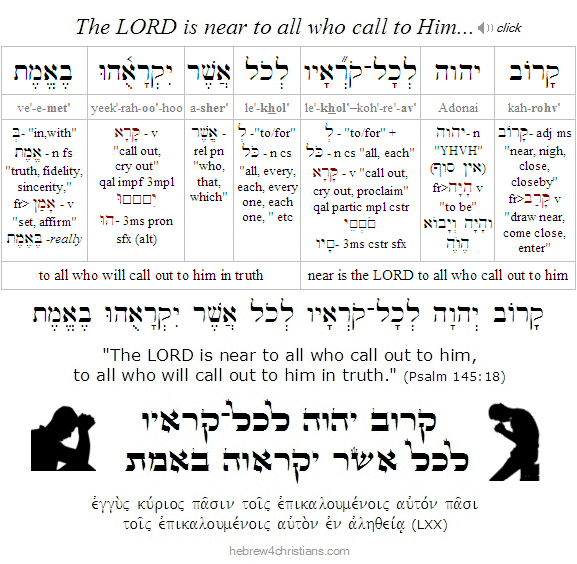 |
The Kingdom Within You...

[ Despite the chaos and insanity of our world, we are celebrating the great holiday of Shavuot, the climax of Passover... May Glory be ascribed to the Name of the LORD! ]
05.17.21 (Sivan 6, 5781) I have written before about how Shavuot is called "Atzaret Pesach" (עצרת פסח) or the "culmination of Passover." Just as the Passover reveals "God with us" (עִמָּנוּ אֵל), as the Word made flesh, and "God for us" (אֱלהִים לָנוּ), as the sacrificial Lamb of God, Shavuot adds yet another dimension by revealing "God within us" (אֱלהִים בְּתוֹכֵנוּ), as the indwelling Presence, the "breath of God" that forever abides in our hearts. Yeshua was eager for us to partake of this miracle: "I tell you the truth: it is to your advantage that I go away, for if I do not go away, the Helper (i.e., ὁ παράκλητος, one "called alongside to help) will not come to you. But if I go, I will send him to you" (John 16:7). As it is written, "By this we know that we live in him and he in us, because he has given us of his Spirit" (1 John 4:13). Or don't you know that your body is a temple of the Holy Spirit within you (רוּחַ הַקּדֶשׁ בְּתוֹכֵנוּ), whom you have from God? "For all who are led by the Spirit of God are the children of God" (Rom. 8:14). Amen, "Come, Holy Spirit," and set us free by the truth and power of the LORD!
Hebrew Lesson:
Heeding the Father's Voice...

[ It was on Shavuot (i.e., "Pentecost"), after the resurrection of our Lord, when the followers of Yeshua received comfort from the Spirit of God (see Acts 1:7-8; 2:1-4; Jer. 31:31). ]
05.17.21 (Sivan 6, 5781) "Dear child of mine, do not forget my Torah (תורתי), but let your heart keep my commandments (מצותי). Doing so will add to you length of days (ארך ימים), long life, and peace (שׁלום). Do not abandon the heart of Your Father by losing sight of mercy and truth (חסד ואמת); No! Tie them around your neck; inscribe them upon the table of your heart (לוח לבך), that is, make them part of your inner being and will. Doing so will reveal my grace (חן) and good understanding (שכל־טוב) before the eyes of God and others. Trust in your heavenly Father with all your heart (בטח אל־יהוה בכל־לבך) and don't seek to be in control, trying to figure everything out on your own (ואל־בינתך אל־תשען). Listen for your Father's voice in everything you do; in all your ways know His heart (בכל־דרכיך דעהו), and then your ways will be directed in the truth. Don't assume that you know it all; abandon your self-conceit: Revere your heavenly Father (ירא את־יהוה) and flee from what you know is self-destructive and evil! Doing so will impart healing (רפאות) to you: your body will glow with health, your very bones will vibrate with life! Honor your Heavenly Father with everything you own; give him your first and the best of what you have (מראשׁית כל־תבואתך); then your barns will burst with plenty, and your wine vats will be overflowing" (Prov. 3:1-10).
Hebrew Lesson:
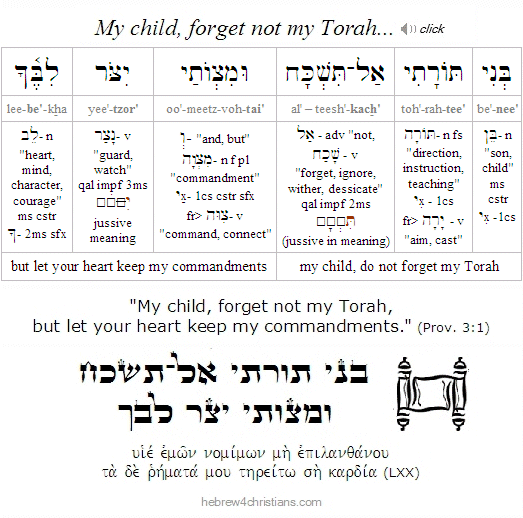 |
Receiving Revelation...

05.17.21 (Sivan 6, 5781) The sages have asked, "Why is Shavuot ("Pentecost") called 'zman mattan torateinu,' the time of the giving of our Torah, rather than 'zman kabbalat torateinu,' the time of the receiving of our Torah? The reason is that on that momentous day at Sinai, only the giving of the Torah occurred, whereas the receiving of the Torah must take place each and every day, as it says, "Trust in the LORD 'bekhol libbekha' (בְּכָל־לִבֶּךָ) - with all your heart; and know Him 'bekhol derakhekha' (בְּכָל־דְּרָכֶיךָ), in all your ways" (Prov. 3:5-6). The giving of the Torah is described as a "loud and never-ending voice" (Deut. 5:19), though it is our constant responsibility to shema – to receive the invitation of God's heart.
"Trust in the LORD with all your heart... know Him in all your ways" (Prov. 3:5-6). The Hebrew word for trust is "bittachon" (בִּטָחוֹן), from a root word (בָּטָח) that means "to lean upon," to feel safe and secure.... Bittachon describes emotional acceptance of the goodness of the LORD. Some of the sages have said that while emunah (אֱמוּנָה), or "faith," represents a state of cognitive or intellectual understanding (בִּינָה) that God is involved in all the events of the universe, bittachon means emotionally trusting that the Lord is present in every situation for your good.... Rabbi Bechaya put the distinction this way: "Everyone with bittachon has emunah, but not everyone with emunah has bittachon." Bittachon is an intuitive awareness of the personal love of God for your life, coupled with complete trust that He deeply cares for you (Rom. 8:28). It is an expectation that the love of God is "I-AM-always-with-you," too.
"Know Him In all your ways," and that means whatever way you find yourself in, which of course includes the way of your struggles, your transgressions, and your heartaches, as well as the way of your deepest longing and hope... Know Him in all your ways today, chaverim!
Hebrew Lesson:
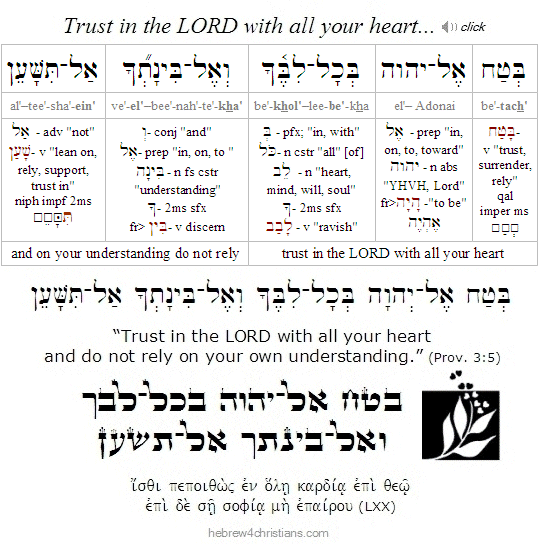 |
This week's Torah:
Parashat Naso (פָּרָשַׁת נָשׂא)

05.16.21 (Sivan 5, 5781) Chag Shavuot Sameach, friends... Among other things, our Torah portion for this week (i.e., parashat Naso, "lift up!") includes the cornerstone blessing that Aaron and his sons (i.e., the priests) were instructed to declare over the people of Israel: "The LORD bless you and keep you; the LORD shine his face upon you and be gracious to you; the LORD lift up his face upon you and give you his peace" (Num. 6:24-26). Notice that the Hebrew text of the blessing (see below) begins with three words, is comprised of three parts, invokes the divine Name three times, and is therefore appropriately called "the three-in-one blessing" (שלוש בברכה אחת). Notice also that the words are spoken in the grammatical singular rather than plural because they are meant to have personal application, not to be a general benediction over a crowd of people. The phrase, "the LORD lift up his face upon you..." (ישא יהוה פניו אליך) pictures the beaming face of a parent lifting up his beloved child in joy... The repetitive construction of God "lifting up His face" (יהוה פניו אליך) indicates that he gazes upon you in love and blessing. Undoubtedly Yeshua recited this very blessing over his disciples when he ascended back to heaven, though He would have spoken it in the grammatical first person: "I bless you and keep you (אני אברך אותך ואשמור לך); I shine upon you and am full of grace toward you; I lift up my face toward you and give you my shalom" (see Luke 24:50-51).
יברכך יהוה וישמרך
יאר יהוה פניו אליך ויחנך
ישא יהוה פניו אליך וישם לך שׁלום
ye·va·re'·khe·kha' · Adonai · ve·yeesh'·me·re'·kha
ya·eir · Adonai · pa·nav · e·ley'·kha · vee·khoon·ne'·kah
yees·sa · Adonai · ph·nav · e·ley'·kha · ve·ya·seim · le·kha · sha·lom

"The LORD bless you and keep you;
The LORD shine his face upon you and be gracious to you;
The LORD lift up his face upon you and give you his peace."
(Num. 6:24-26)
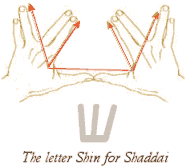
Nesiat Kapayim (Raising of the hands)
Note: The verbs in this blessing are all "jussive," usually expressing wish, desire, or command, though understood in context (i.e., as part of the blessing recited by the kohanim during ceremonial occasions), the verbs should be regarded as declarative or oracular. The idea of God "lifting up his face" is an idiomatic expression meaning that he gazes upon you in peace and blessing... To learn more about this blessing, click here.
Parashat Naso Links:
He is with you always...

05.14.21 (Sivan 3, 5781) The great Name of the LORD is "I-WILL-BE-WITH-YOU-ALWAYS" (אני אהיה עמך תמיד), which implies that we always live within God's Presence and care (Deut. 31:8, Josh. 1:9, Isa 41:10, Matt. 28:20; etc.). The Name YHVH (יהוה) signifies God's indomitable love and unfailing compassion. The LORD says to the trusting heart, hen al kapayim hachotikh: "Behold I have engraved you on the palms of my hands" (הֵן עַל־כַּפַּיִם חַקּתִיךְ; Isa. 49:16). Remember the One who stretched out his hands and died for your healing; remember that he said, "Don't be anxious about tomorrow, for tomorrow will be anxious for itself. Sufficient for the day is its own trouble." Again, "do not be anxious for any reason, but in everything by prayer and supplication with thanksgiving let your requests be made known to God, and the peace of God (שלום יהוה), which surpasses all understanding, will guard your hearts and your minds in Yeshua the Messiah" (Phil. 4:6-7). God keeps in perfect peace (lit. "the peace of peace") those whose lean on Him (Isa. 26:3).
Hebrew Lesson:
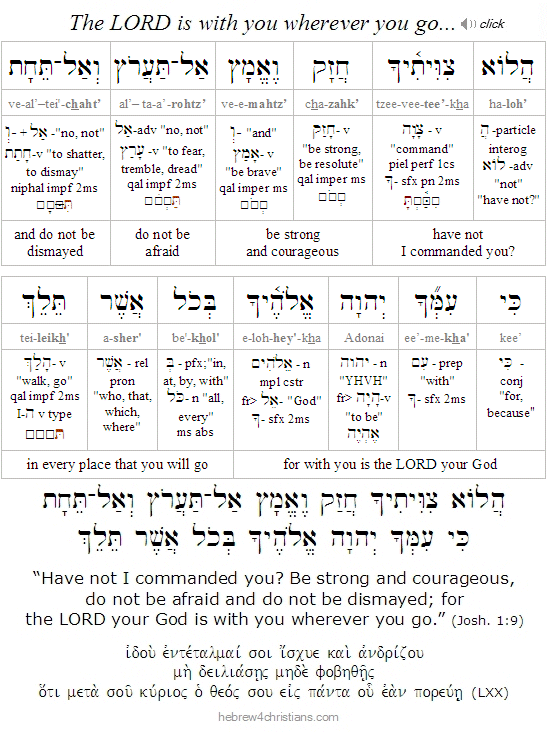 |
The Book of Ruth and Shavuot...
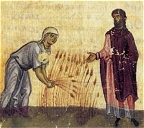
05.14.21 (Sivan 3, 5781) During the time of holiday of Shavuot it is customary to read the Book of Ruth (מְגִלַּת רוּת), which tells a marvelous story of redemptive love and devotion (i.e., chesed: חֶסֶד) dating back to the dark period of Jewish history known as the "time of the Judges" (c. 12th century BC). The story is traditionally read during Shavuot, both because the events recounted took place during the time of the spring harvest (linking it to the agricultural aspect of holiday), and because Ruth herself is a picture of willing acceptance of a Jewish lifestyle (linking it to the religious aspect of the holiday). Just as Israel willingly accepted the Torah at Sinai without knowing its content (kol asher diber Adonai na'aseh ve'nishmah), so Ruth gave up everything she knew to accept the Torah. Like the people of Israel at the time of Sinai, Ruth believed in order to understand, not the other way around...
While the narrative of the story of the Book of Ruth is straightforward, to fully understand its spiritual implications we need to be familiar with several laws from the Torah, including the laws of redemption (Lev. 25:32-55), the laws of Shemittah and the Jubilee years (Lev. 25:4, 10, 23), the laws of family inheritance (Num. 27:8-11), the laws of yibbum or "levirate marriage" (Deut. 25:5-10), and various farming laws regarding leaving food for the poor and the stranger (Lev. 19:9-10; 23:22; Deut. 24:19). In addition, we need to understand the laws of warfare for taking possession of the land, and God's repeatedly stated commandment that Israel must be holy and not assimilate with surrounding cultures (Exod. 34:12; Deut. 7:1-6; 14:2, etc.). This restriction applied not only to the seven Canaanite nations (Deut. 7:1; 20:17-18), but also to the descendants of Lot (i.e., Amnonites and the Moabites), since they showed hostility to Israel when they first came to the land (Deut. 23:4-6). Indirectly, then, the story of Ruth provides an important message to Christians: to understand the great story of redemption, you must understand the Torah and its commandments.
For more on this see topic see: "The Chesed of Ruth: Further thoughts on Shavuot."
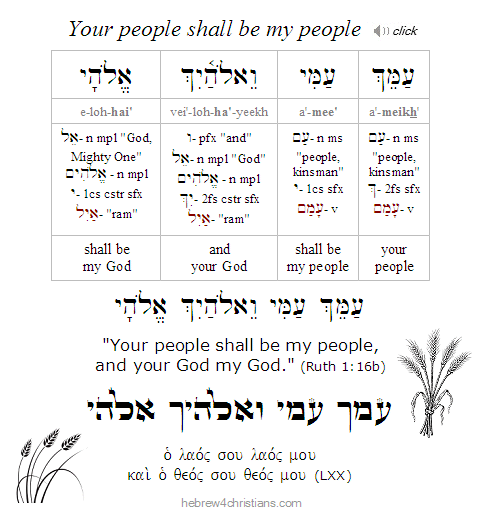 |
Awakening to Revelation...

05.14.21 (Sivan 3, 5781) After making kiddush and eating the holiday meal on the evening of Shavuot, it is a Jewish tradition to stay up all night reciting various selections from Torah until sunrise. This custom is called tikkun leil ha'shavu'ot: תיקון ליל השבועות, the "Rectification for Shavuot Night," and the vigil was instituted by the sages as a "remedy" for Israel's failure to be awake on the morning of the revelation (the midrash rebukes those who overslept on the morning of the revelation for needing to be roused to salute the King). Philosophically considered, the theme of "wakefulness" (עֵרוּת) is central to revelation, for without it we lose our consciousness as God's people. We must understand our history to order our lives according to the truth. The God of our Salvation, the Redeemer of our people, the LORD YHVH, must be distinguished from the gods of the nations; the covenant we have with God must retain its sanctity; there is a real testimony and direction to our lives. Salvation does not mean being "absorbed" into some sort of nirvana or unconsciousness, but instead focuses on concreteness, historical events, our heritage, our future, and the story of our lives...
Shavuot is about mattan Torah, the "giving of the Torah," and therefore it reminds us of our duty to "stay awake" to receive its message. Torah, as of course you know, does not mean "law" but rather "direction" or "teaching," and studying Torah therefore involves personal response, commitment, and intense focus. Because it is rooted in the history of God's redemption, Torah study further implies a complex dialog or discourse ranging over the centuries, stretching back to the time of Moses (and through him, to Adam), through the establishment of the network of judges (Exod. 18:13-26), through the words of the prophets of Israel, all leading to the life of Yeshua the Messiah and the message he gave to his disciples... Our faith, then, is rooted and bound up with history, with the fathers and mothers who went before us, with the lives of scribes, the sages, the prophets, the apostles, including the ongoing dialog of the people of God over the millennia.
The holiday of Shavuot has no specific ritual observance for us today other than to be awake to revelation, consciously remembering the truth of our heritage and holding steadfast to the promises of our ultimate healing. The very first commandment of the Ten Commandments begins: anochi Adonai Elohekha (אָנכִי יְהוָה אֱלהֶיךָ), "I am the LORD your God who brought you out of the land of Egypt" (Exod. 20:2). The very first commandment, then, is faith in the message of God's love and blessing. Torah study (understood in its broadest sense) is therefore of primary importance, because faith in its truth is the precondition of all that follows. The basic commandment of Shavuot, then, is the mitzvah that precedes all the other mitzvot, namely, to wake up and believe the miracle of God is for you....
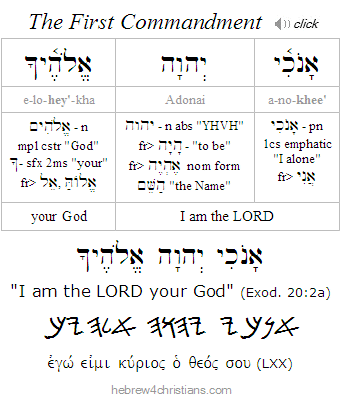 |
In light of this, ask yourself whether you need to understand before you will believe... The Midrash Rabbah says that God offered the Torah to each of the 70 nations, but each nation first asked to understand what was required of them, and then rejected the offer... Finally God approached Israel and asked: "Will you accept my Torah?" And they replied, kol asher dibber Adonai na'aseh (כל אשׁר־דבר יהוה נעשׂה), "all that the LORD has spoken we will do" (Exod. 19:8). In other words, Israel was willing to accept the Torah even before they understood what was required of them. Later they reaffirmed their simplicity of heart by saying na'aseh ve'nishma (נעשה ונשמע) "We will do and then we will understand" (Exod. 24:7). Praise the LORD God of Israel: You don't have to work to receive the divine light - it comes to you through simple willingness to receive it... The LORD is the inner radiance of reality; by his light we are able to see light (1 John 1:5; Psalm 36:9).
Hebrew Lesson:
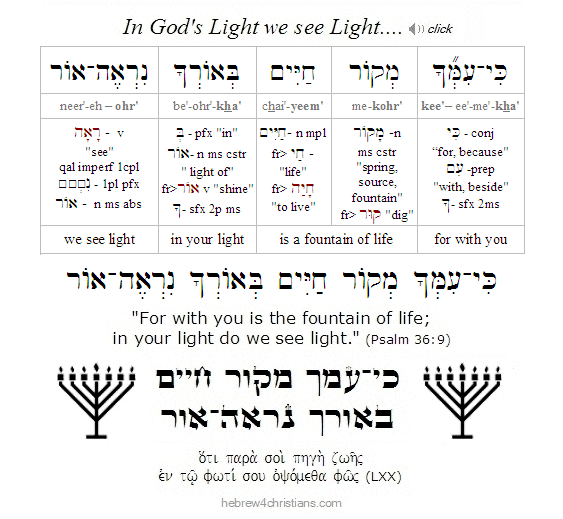 |
Engraved upon the Heart...

[ The holiday of Shavuot begins Sunday, May 16th at sundown this year... ]
05.14.21 (Sivan 3, 5781) The Torah instructs us to count forty nine days – seven "weeks of days" – from the day following the Sabbath of Passover until the holiday of Shavuot (Pentecost or "Weeks"). This period of time is called Sefirat Ha'Omer ("counting the sheaves"). Every day during this season, a special blessing is recited naming exactly how many more days are left before the "seven weeks of days" are complete.
Surely God did not want the Jewish people to miss something important here! Could He have made it any clearer? It's almost as if there was a dotted line pointing directly from Firstfruits to Shavuot - a "Jubilee" of days:
 |
Traditional Judaism regards Shavuot as the anniversary of "mattan Torah" (מתן התורה), the time that the Torah was given at Mount Sinai. As one of the three required "pilgrimage festivals" (shelosh regalim), Jews from all over the world would come to Jerusalem to celebrate and reaffirm their commitment to the covenant made at Sinai.
And indeed such was the custom when God delivered the Substance of which the festival of Shavuot was merely a "type and a shadow." For the New Testament reveals that Shavuot is the climax of God's plan for our deliverance through Yeshua, the true Lamb of God (Seh Ha'Elohim). The countdown to Shavuot represents the ratification of the anticipated New Covenant (בּרית חדשׁה) to mankind, since it was on this very day that the Holy Spirit was given to the followers of the Messiah.
With a touch of divine irony, on the very day that Jews from around the world gathered in Jerusalem to reaffirm their commitment to the covenant of Moses, the Holy Spirit descended upon Israel to offer the promise of the New Covenant to all who would believe (see Acts 2:1-42). This new covenant makes Torah a matter of the heart, written by the God's Spirit, and yielding a life fruitful in the praise of God (Gal. 5:22-23; Heb. 13:15).
Hebrew Lesson:
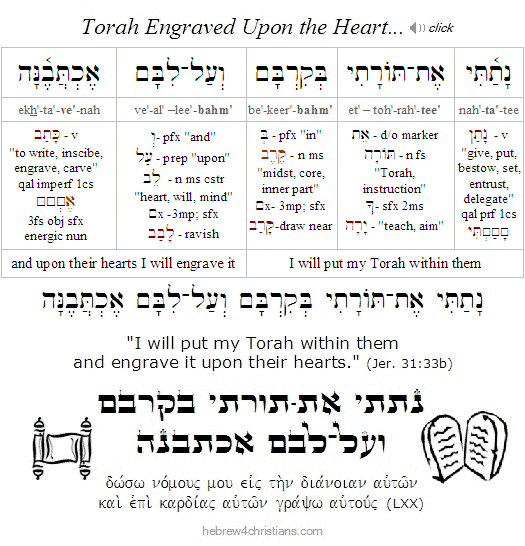 |
Why Shavuot Matters...

[ The holiday of Shavuot ("Pentecost") begins Sunday, May 16th at sundown... ]
05.13.21 (Sivan 2, 5781) The holiday of Shavuot (חג השבועות) is called "Pentecost" in Christian tradition. The Greek word Pentecost (πεντηκοστή) means "the holiday of fifty days" referring to the 50th day after the crucifixion of Yeshua when the Holy Spirit descended upon the disciples and when Peter first proclaimed the truth of salvation in Jerusalem (Acts 2:1-43). The Torah teaches that Shavuot is a major biblical holiday (it is one of the three "required festivals" of the LORD, see Exod. 23:14-17; Deut. 16:16) and therefore it behooves us to understand its significance as the climax of Passover itself -- 'the endpoint' of the redemptive experience. Indeed, just as the blood of the lambs smeared on the door posts led directly to Sinai 50 days later, so the crucifixion of Yeshua led directly to the descent of the Holy Spirit to empower His followers to serve God under the new covenant of Zion.
 |
There are two essential priestly rituals commanded for the holiday of Shavuot: 1) the waving (i.e., tenufah: תנופה) of the two loaves of (new) wheat bread (called shtei ha'lechem: שתי הלחם), and 2) the offering of peace sacrifices (i.e., korban shelamim: קורבן שלמים). Both of these aspects of the priestly service (avodah) were fulfilled in the greater sacrifice of Yeshua made on our behalf. Moreover, just as worshipers at the Temple would present bikkurim (בכורים) - their choicest first fruits - and attest to God's faithfulness before the altar (Deut. 26:3), so we are called to walk in the fruit of the Spirit (פרי רוח הקודש) and to proclaim the message of God's faithful love for us.

Though it is not explicitly mentioned in the five books of the Torah, the early sages have long connected the revelation of the Torah at Sinai (מתן תורה) with the holiday of Shavuot. This comes from a careful study of the chronology of the exodus itself, calculating the time of the Passover from Egypt (i.e., Nisan 15) to the arrival of the Israelites at Sinai exactly 45 days later, on Sivan 1 (see Exod 19:1). The earliest extrabiblical source that explicitly links Shavuot with the revelation of the Torah at Sinai is the apocyphal Book of Jubilees (i.e., Sefer ha'Yovelim: ספר היובלים), dating from the 2nd century BC. Extant manuscripts of this book were found among the Dead Sea Scrolls (מגילות ים המלח), indicating that the Shavuot-Sinai connection was made before the advent of Yeshua. The Book of Jubilees provides a parallel account of Genesis and certain parts of Exodus, and mentions the observance of Shavuot by Noah before the time of the Flood. In the book Noah is told to observe the Festival of Weeks (shavuot) and to offer Firstfruits (bikkurim) every year as a commemoration of God's covenant to renew the earth (Jubilees 6:15;22). Likewise Abraham and the original patriarchs were said to observe it, though it was forgotten by the Jews in Egypt until Moses was said to have reinstated it at Sinai. Shavuot is also mentioned in the apocryphal Book of Tobit (טוביה) and the Book of Maccabees, c. 2nd century BC.
 |
The Talmud (i.e., traditional oral teaching of the Torah ) also connects Shavuot with the giving of the Torah at Sinai. The earliest Talmudic statement on the date of the revelation at Sinai is found in Tractate Shabbat 86b. According to these sages, the Israelites left Egypt on Friday, Nisan 15, and the Torah was given exactly 50 days later on Saturday, Sivan 6th. This corresponds exactly with God's instructions to count 50 days from the day after Passover (Lev. 23:15-16). This date later became fixed in the Jewish calendar, and was further supported by reference to Exodus 19:1: "On the third new moon after the people of Israel had gone out of the land of Egypt, on that day they came into the wilderness of Sinai." (For details about the exact timing for this event, see the main Shavuot article here.) The Midrash Rabbah also explicitly makes the Shavuot-Sinai connection as well. The later rabbis refer to Shavuot as "Atzeret" (עצרת), a word that means "withdrawal" (i.e., to the desert to receive the law) and "conclusion" (or the goal of the Passover redemption). Today Jewish tradition regards Shavuot as Zman Mattan Torateinu (זמן מתן תורתנו) - "the anniversary of the giving of the Torah." Shavuot is also called Yom Ha'Kahal (יום הקהל) - the "Day of Assembly," based on the assembly of all the people of Israel to hear the Voice of God at Sinai (Deut. 18:16).
Jewish custom affirms that in every generation each person should consider himself as having personally received the Torah at Sinai. The climax of the Shavuot morning service is the recitation of the famous Akdamut poem followed by the reading of the Ten Commandments, when all the congregation stands to "relive" the experience at Sinai. A second Torah scroll is then taken out of the ark and the portion is read (Num. 28:26-31) that describes the sacrificial offerings made at the Temple during Shavuot, and the Haftarah (Ezek. 1:1-28; 3:12) concerns the stunning revelation of God in the form of the Throne/Chariot.
The Scroll of Ruth (מגילת רות) - a beautiful story about God's redemptive love - is read on the second day of Shavuot. As the "kinsman redeemer" (i.e., go'el karov: גואל קרוב), Boaz was a wealthy man of the tribe of Judah (Bethlehem) who married a Gentile bride. Boaz's name (בועז) means "in Him [בו] is strength [עז]," a picture of Yeshua the Messiah, his greater Descendant, who also redeemed for himself a bride from among the nations. Among traditional Jews, the Book of Ruth is is read since the events recounted took place during the time of the spring harvest (linking it to the agricultural aspect of Shavuot), and Ruth is a picture of willing acceptance of a Jewish lifestyle (linking it to the events of Sinai).
Paradoxically, the conversion of Ruth was actually against the law given in the Torah itself! According to the Torah (Deut. 23:3), an Ammonite (or Moabite) was forbidden to enter into the family of Israel, and therefore the question arose regarding how Ruth was accepted. Indeed, not only was Ruth accepted, she became the great grandmother of King David through whom the Messiah Yeshua would come (Ruth 4:17). There is a wonderful message hidden here!
Shavuot is often portrayed metaphorically as a marriage ceremony (קִדוּשִׁין) between God and the children of Israel. The LORD is the Heavenly chatan (groom) who said, "Accept Me"; the Jewish people represent the beloved kallah (bride); and the Torah represents the ketubah (marriage contract). In some Sephardic traditions, a ketubah is literally read under the traditional chuppah (חוּפָּה) or wedding canopy, that is set up in the synagogue. Some of the sages note that the idea of marriage comes from the resemblance of the word Shavuot with shevuot (שבועות), the word for "oaths." On Shavuot two oaths were taken. One was from God who pledged that He would not exchange the children of Israel for another people, and the other was from the Jews who pledged they would not exchange God for another deity...
This is analogous to the wedding cup that Yeshua offered us in the upper room, before His crucifixion. The Holy Spirit was given to escort us into the heavenly bridal chamber... Collectively, the followers of the Messiah are called Kallat Mashiach (כלת המשיח) - the Bride of Messiah (Rev 21:2,9), and we eagerly await the marriage supper to come (Rev 19:9).
Shavuot marks the time when God entered into covenant with the Jewish nation. During the first Shavuot at Sinai, God instituted the Mosaic covenant and gave the Torah in written form, but during the Shavuot at Zion, after the resurrection of Yeshua, God established the New Covenant (הברית החדשה) when He wrote the Torah on the hearts of Yeshua's followers.
- Shavuot at Mount Sinai is sometimes considered the day on which Judaism was born. Shavuot in Jerusalem (Mount Zion) is the day on which the church was born when the Holy Spirit was poured out upon the followers of the Messiah Yeshua.
- Just as the resurrection of Yeshua represents the Firstfruits of those who have died (1 Cor. 15:20) and fulfills the prophetic ritual of the waving of the omer on the festival of First Fruits, so the giving of the Holy Spirit to the followers of Yeshua fulfills the wave offering of the leavened wheat loaves on the day of Shavuot.
- At Mount Sinai the Ten Commandments were written on tablets of stone by the "finger of God" (Exod. 31:18), but at Mount Zion, the Torah is written on tables of the heart by the Spirit of God (2 Cor. 3:3; Heb. 8:10).
- Just as the Israelites were affirmed as God's chosen people on Shavuot with the giving of the Torah, so the followers of the Messiah are affirmed as God's chosen people at Shavuot after Yeshua's ascension into heaven as the Mediator of a Better Covenant (Hebrews 8:6). The 3,000 that were added to the church that day were firstfruits of the redeemed people of God.
Again, the holiday of Shavuot is one of the shelosh regalim (three pilgrimage festivals) given in the Torah (Exod. 23:14-17; Deut. 16:16) and therefore reveals profound spiritual truth for followers of Yeshua (Luke 24:44; 2 Tim. 3:16). God did not want us to miss the significance of this holiday, since it expresses the freedom and truth of the New Covenant of Zion. Friend, may this be a time of renewal and great joy in your life....
Giving of the Torah (מתן תורה)

[ The holiday of Shavuot ("Pentecost") begins this Sunday evening at sundown... ]
05.13.21 (Sivan 2, 5781) During the holiday of Shavuot (i.e., "Weeks," "Pentecost") we remember how the LORD graciously condescended to meet with the Jewish people at Sinai, and how all the people heard the Voice of God (קול האלוהים) speaking from the midst of the fire (Deut. 4:33). This awesome event foreshadowed the great advent of the King and Lawgiver Himself, when the Eternal Word (דבר יהוה) became flesh to dwell with us (Phil. 2:6-7; John 1:1,14), and it further foreshadowed the advent of the Spirit of Truth given to the disciples of Messiah (Acts 2:1-4). Any theology that regards God as entirely transcendent will have a problem with divine immanence, since the highness, holiness, and perfection of God will make him seem distant, outside of us, far away, and even unknown... Incarnational theology, on the other hand, manifests the nearness of God to disclose the divine empathy. Indeed, the LORD became Immanuel (עמנו אל), "one with us," to share our mortal condition, to know our pain, and to experience what it means to be wounded by sin, to be abandoned, alienated, forsaken. The "Eternal made flesh" bridges the gap between the realm of Ein Sof (אין סוף), the Infinitely transcendent One, and the finite world of people lost within their sinful frailty. Of course we believe Adonai Echad (יהוה אחד) - that the "LORD is One" - both in the sense of being exalted over all things but also in the sense of being compassionately involved in all things (Rom. 11:36). During Shavuot we celebrate the giving of the Torah both at Sinai, at Bethlehem (בית לחם), and within our hearts. We celebrate that God is indeed the King and Ruler over all, but we further affirm that God's authority and rule extends to all possible worlds - including the realm of finitude and even death itself.
כי יהוה שפטנו יהוה מחקקנו
יהוה מלכנו הוא יושיענו
kee · Adonai · sho·fe·tei'·noo; Adonai · me·cho·kei'·noo
Adonai · mal·kei·noo; hoo · yo·shee·ei·noo

"For the LORD is our Judge; the LORD is our Lawgiver;
the LORD is our King; He will save us."
(Isa. 33:22)

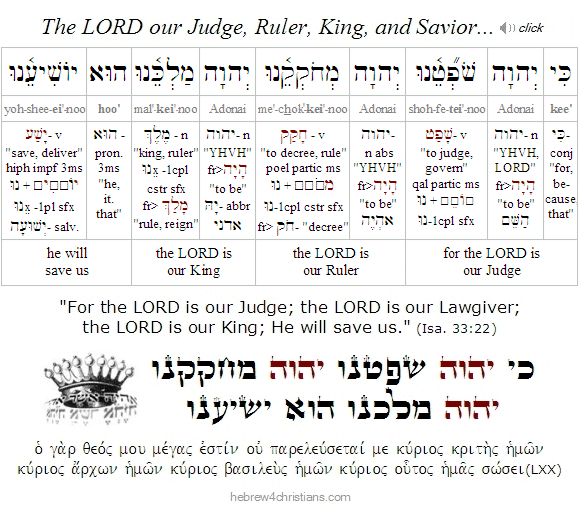
The Heart of Reality...

05.13.21 (Sivan 2, 5781) Theologians have made various arguments for the existence of God by arguing that since every effect is the result of a cause, and the existence of the universe is an effect, therefore a cause for the universe must exist. Moreover, since an infinite series of causes cannot be traversed to produce a present effect, there must be a first or beginning cause for the existence of the universe, and that cause is God.
While this may be a sound argument, the Hebrew Scriptures teach that the "first cause" of all that exists is not some sort of mechanistic or abstract power that sets the universe in motion, but on the contrary is a personal God who creates, sustains and providentially guides everything that exists. The Torah begins by revealing God as a "talking Intelligence" that creates all things by the agency of his verbal expression, or by means of his word. The first recorded word of God is yehi ohr, "let there be light" (Gen. 1:3). God speaks; he sees; he imagines, designs, orders, and executes his will in building the "house" (בּ) of the universe...
Torah teaches that God, the infinite and all-powerful Creator of reality, expresses himself as Person with a character that can be known... God is the great "I AM" (i.e., ehyeh: אהיה) who is the Source and origin of all that is real (Exod. 3:14-15). As I mentioned the other day, personhood is the essential feature of reality itself, and indeed, the structure of the "I" that constitutes the person is grounded in the Divine "I" that creates everything yesh me'ayin, "out of nothing." The LORD (יהוה) is alone the transcendent and unsurpassed Creator of all things, and there are no other so-called gods besides Him (Deut. 32:39; Isa. 45:21-22).
Indeed God created people made in his "image" and his "likeness" for the very purpose that they would personally know Him and understand their special place within creation. The irreducibility of the self, the intuitions of logic, the ability to use language, the sentiments of value and beauty, and the inner witness of conscience, enable human beings to relate to God and understand truth. Therefore by virtue of creation people are endowed with the knowledge of God's unsurpassing power and glory as well as the duty to act in accordance with his moral will (Psalm 19:1-2; Rom. 1:20). And while God created each of us individually, each individual is given life to be a member of the family of God, and that implies responsibilities to regard the sanctity of life and to respect the sanctity of others.
Hebrew Lesson:
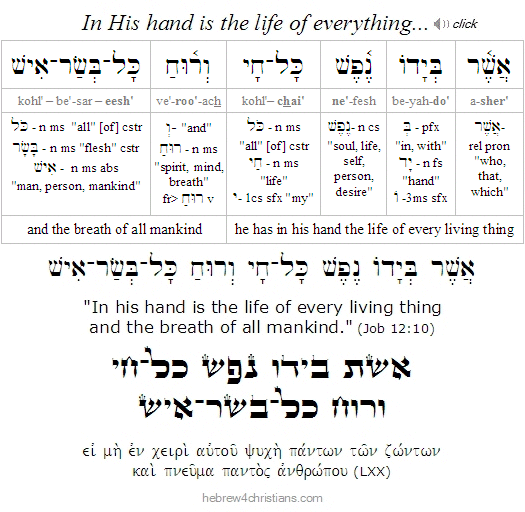 |
So the language used in the Torah, the intuitions of logic and conscience, and the various messages delivered in the Name of God by the Hebrew prophets all reveal the personal character of the Creator before whom we owe our very existence. God is revealed not only as our Creator but also as our Lawgiver and moral authority. We have a moral and spiritual duty to walk in holiness and to honor God in our daily lives. Unfortunately we have turned away from God's authority and idolatrously elevated ourselves to define good and evil. Our rebellion has caused a separation in our relationship with God which has resulted in the lethal condition called "spiritual death." This is the essential problem of human existence, for unless we find healing from our spiritual condition we will abide in death eternally.
The Hebrew prophets foretold of a great mystery wherein the Creator God would come to be "with us" (עִמָּנוּ אֵל), not in some angelic form, but as a human being who would save us by giving us eternal life (Isa. 9:6). The incarnation of God as a man was the revelation of the Person "behind the curtain," so to speak, who stepped out to show Himself to us (John 1:1-5; 14). God chose to "empty himself" of heavenly glory and to be born as "one of us" so that we could know God's heart and be healed from our exile from his love. The Absolute Paradox is that the infinite and transcendent One became accessible within finitude, intimately knowable and vulnerable -- even unto death. The divine "I am" (א) became a "sign" (ת) to all of creation, the "Direct Object" (את) of all of reality. This is why we celebrate the new covenant by remembering the incarnation: "This is my body... this is my blood" (Luke 22:19-20).
So God became a man to heal us from the lethal condition of spiritual death and to restore the original fellowship he desired when he created us.. The Lord came to us to bring us back to himself, that is, to bring us back to the honored place of being his beloved...
Our healing from sin required a tremendous sacrifice, however, and therefore Yeshua came to offer up his life in exchange for our own. He was born to die as the great "lamb of God" for his people. The great drama of the cross revealed God's victory over sin and death. His shed blood, the just for the unjust, overruled the power of the curse and forever healed us from separation from God's heart. "Christ crucified" is the ultimate expression of the love of God.
The gospel message, then, is the greatest love story of all, wherein God's irrepressible love for his beloved so moved his heart that he gave up everything to go and find her, and in finding her he fought to the death to save her from perdition... Unlike philosophy or other religions that abstractly talk about God's love, the passion of God for us is concretely demonstrated in the sacrificial life and death of Yeshua. The crucifixion of the Lord alone reveals that we are truly accepted and loved - despite our sin and our unacceptability; it is the most holy covenant, written in blood, that God has come to us to bring us back to himself - and therefore we can know ourselves as his beloved people... Amen!
Hebrew Lesson:
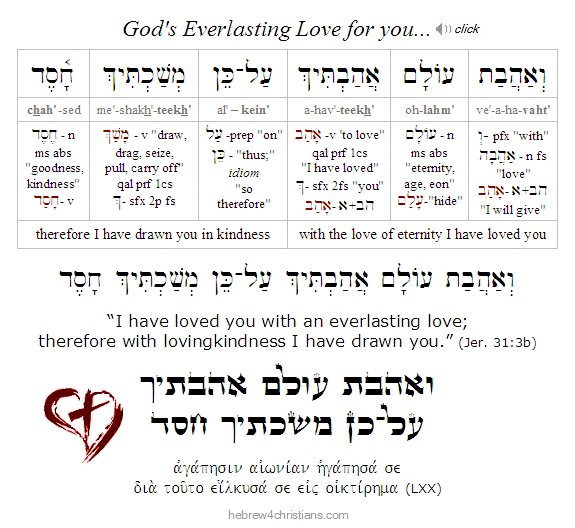 |
Our Sacred Brevities...

05.12.21 (Sivan 1, 5781) Instead of soberly acknowledging that our days are numbered in this world, many people deny the reality of death, steadfastly ignoring any idea of judgment to come. Yeshua warned us, however, that "nothing is hidden except to be made manifest; nor is anything secret except to come to light" (Mark 4:22). We should tremble before such words. Each of us will give account for what we have done with the time given us (Heb. 9:27; 2 Cor. 5:10; Matt. 12:36). Moses therefore prayed to God: "teach us to number our days," that is, help us understand how to make our days count for eternity, to have a "weight of glory" (βάρος δόξης) that will shine in the world to come...
"As for man, his days are as grass. . . the wind passes over him and he is gone" (Psalm 103:15-16). Life goes by so quickly, and we never know when our personal "Rosh Hashanah" will come. "No one knows the day or hour..." That's why it is so vital to be healed and to turn to God while there is still time. So turn to him today and bacharta ba'chayim (בָּחַרְתָּ בַּחַיִּים) - "choose life!" "For this commandment (of turning to God) is not hidden from you, and it is not far away. It is not in heaven... nor across the sea.... Rather, the matter is very near you - in your mouth and your heart - to do it" (Deut. 30:11-14; Rom. 10:8-13).
Think of today, this immediate hour... Now is the time we have to turn to God for life. Do not delay until the next day; do not say, "Tomorrow I will turn..." We only have this day, this hour to make our stand: tomorrow is a different world. As it is said, "For he is our God, and we are the people of his pasture and the sheep of his hand, today -- if we hear his voice and do not harden our hearts" (Psalm 95:7-9). We are warned not to "harden our hearts," that is, not to lose sight of real hope by refusing to trust in the promises of God's love.
Despite the frailty and tenuous brevity of our days, may it please the LORD God to shine the power of His radiance upon us, and to establish our works for His praise. May He help us to "number our days" so that we may obtain levav chokhmah (לְבַב חָכְמָה) - a heart of wisdom to live according to His will (James 1:5). Above all else, may the "God of our Lord Yeshua the Messiah, the Father of Glory (אֲבִי הַכָּבוֹד), impart to you a spirit of wisdom and of revelation in the knowledge of Him (רוּחַ הַחָכְמָה וְהֶחָזוֹן לָדַעַת אתוֹ), having the "eyes of your hearts" (ὀφθαλμοὺς τῆς καρδίας) enlightened, that you may know what is the hope to which he has called you" (Eph. 1:17-18). May you be strong, resolute, and fully focused on our LORD, and may God make this real for us: Amen.
Hebrew Lesson:
Eschatology and Shavuot...

05.12.21 (Sivan 1, 5781) There are some who believe that the holiday of Shavuot is linked (eschatologically) with the "rapture" of the church, that is, the doctrine that the followers of Yeshua the Messiah will be "caught up" (ἁρπάζω, harpazo) and suddenly taken away before the time of the Great Tribulation and the Great Day of the LORD (1 Thess. 4:17; John 14:3; 1 Cor. 15:51-52). They reason that since Shavuot marked the day of great and dramatic revelation, with signs of fire and the sounds of a heavenly shofar blast, an appointed time when Moses first ascended to receive revelation from Sinai and later the Holy Spirit descended upon the followers of Messiah from Zion. Shavuot therefore marks the fulfillment of Passover that culminates in the rapturous goal of our redemption... Both Jew and Gentile are "waved" together before the LORD (as symbolized by shtei ha-lechem, the two loaves), representing the "one new man" of kallat Mashiach, the "bride of Messiah," or the assembly of those called out from every tribe and tongue to be a part of God's heavenly kingdom.
 |
Though of course no one knows the day or hour of the return of Yeshua our Messiah (see Matt. 24:36; Acts 1:7), there are various clues given in Scripture about the conditions of the world before His return, and Yeshua himself gave us parables warning us to be looking for Him (Matt. 24:2-14; 25:1-13). Moreover just as Yeshua faulted the scribes and the Pharisees of his day for failing to discern "the signs of the times" (Matt. 16:3) and for missing the "time of their visitation" (Luke 19:44), so he warned his followers to keep watch for his coming (Matt. 24:42-44). The Apostle Paul likewise said that the Lord would come secretly, "as a thief in the night"-- not in great power and glory at the end of the age -- though his followers would be awake for the hour to come (see 1 Thess. 5:2-6). Moreover, Paul forewarned of the rise of worldwide godlessness (2 Tim. 3:1-7) and even of the worldwide apostasy of the "institutionalized" church we see today (1 Tim. 4:1-3). Other Scriptures foretell of the coming One World Government, the rise of the Messiah of evil (Antichrist), the persecution of the national Israel (a nation miraculously restored to the promised land), the rebuilding of the Temple, the coming Great Tribulation, and so on. "When these things begin to take place, straighten up and lift up your heads, because your redemption is drawing near" (Luke 21:28).
 |
There are some who reason (by analogy) that just as Enoch (חֲנוֹךְ), the father of Methuselah (מְתוּשָׁלַח), escaped from the judgment of the great flood when God "took him" up from the earth (Gen. 5:22-24), so the followers of Messiah will be "taken up" before the time of global judgment and the great Day of the LORD. And just as Noah was shut inside the ark for seven days before the great flood descended (Gen. 7:10), so the people of God will be covered within the ark of God's grace just before the time of the Great Tribulation. "For God has not destined us for wrath, but to obtain salvation through Yeshua the Messiah" (1 Thess. 5:9).
Hebrew Lesson:
Prayers for Israel...
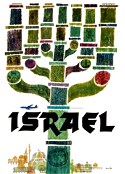
05.11.21 (Iyyar 29, 5781) Our sympathies and prayers are for the people of Israel during these times of trouble, which foretell the prophesied "End of Days" and the return of the LORD to establish Zion.... Look for a "peace maker" to suddenly arise to establish order in the troubled region (i.e., the false messiah: משיח שקר). Time is short; the Day draws near...
Hebrew Lesson:
Accounted by God...

05.11.21 (Iyyar 29, 5781) Our Torah reading for this week, parashat Bamidbar, is always read just before the holiday of Shavuot (i.e., "Pentecost"), which is the time we celebrate "mattan Torah" -- the giving of the Torah of the LORD (first at Mount Sinai, later at Mount Zion). Central to Sefer Bamidbar, or the Book of Numbers, is the counting of the person, identifying his "place" within Israel (Num. 1:52), and therefore the traditional sages link the idea of being counted by God with the giving of the revelation itself. In other words, as we come to know who we are as God's redeemed people, as we learn to reckon ourselves as his beloved, so we will receive Torah and be accounted among his people. Our heads will be "lifted up," and we will receive the first blessing of Torah, namely: אנכי יהוה אלהיך - "I AM the LORD your (singular) God" (Exod. 20:2).
Hebrew Lesson:
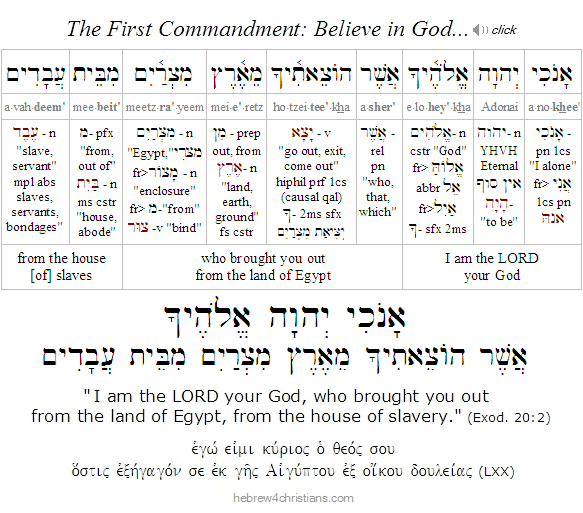 |
"The LORD spoke to Moses in the desert of Sinai... saying 'Lift up the head' (i.e., count) of the children of Israel (Num. 1:1-2). The Torah commentator Rashi insightfully noted that as we are counted, so we are lifted up and beheld by God. In other words your life matters to heaven, and you are counted worthy because of God's great redeeming love. The sages say that each of us is as a letter of Torah; each of us counts in God's book. Indeed our beloved Savior Yeshua said, "Even the hairs on your head are numbered" (Matt. 10:30).
May you lift up your head and be counted as one of God's own, friend....
Find God or Die...

05.11.21 (Iyyar 29, 5781) "Choose life that you may live.. " (Deut. 30:19). The most significant question God asks is whether you want to live or not. Albert Camus wrote, "There is but one truly serious philosophical problem, and that is suicide. Judging whether life is or is not worth living amounts to answering the fundamental question of philosophy" (Myth of Sisyphus, 1942). Camus' comment is not at all original, since this is also the ultimate question of theology as well. Do you want to live? Will you believe? Will you choose life and turn away from self-destruction? The Spirit of the LORD calls out: "Choose life that you may live..."
Knowing Who is Real...

05.11.21 (Iyyar 29, 5781) Perhaps the first or most basic question of philosophy is "what is real?" The ancient philosopher Aristotle wrote, "All men by nature desire to know," and knowing presupposes an object of knowledge... The quest of discovering "what is real" is the subject matter of "metaphysics," or the study of what makes up reality...
The ancient pagan philosophers gazed upon the cosmos in wonder, asking what "stuff" (or power) constituted or underlay all the particulars of experience. They sought to understand not just what this or that particular thing was, but what everything was, the entire totality of all that exists. They sought the "one" in the "many" things of life, the arche (ἀρχῇ) or "unifying principle" that made the "uni-verse." They also were puzzled by the phenomena of change: how something change over time and yet still be the same thing?
Jewish metaphysics began well over a thousand years before the ancient Greeks, though it did not arise through speculative reasoning about the nature of the world but by means of an encounter with the personal Creator of Reality, the great "I AM" (i.e., ehyeh: אהיה) who is the Source and origin of all that is real. Unlike ancient Greek cosmology that reduced the ego to a mechanistic process and unlike Hindu pantheistic philosophy that reduced the ego to an illusion, ancient Jewish metaphysics revealed that Personhood is the central feature of Reality itself, and indeed, that the structure of the "I" that constitutes the person is grounded in the Divine "I" that created everything yesh me'ayin, "out of nothing." Human beings, in other words, are not the result of impersonal or blind processes (whether spiritual as in Hinduism or mechanical, as in naturalism), since the Source of all that exists - and that includes human beings and the structures of consciousness - is a Person who uniquely created and providentially governs all things. The LORD (יהוה) is alone the transcendent and unsurpassed Creator of all things, and there are no other so-called gods besides Him (Deut. 32:39; Isa. 45:21-22). Hear, O Israel, the LORD is our God, the LORD is One" (Deut. 6:4).
Now since the LORD is the personal Creator and sustainer of every soul, He reveals His moral will to creatures made in his image and likeness, first by means of the inner witness of the conscience, but also by means of direct encounter with the Divine Presence as mediated by his authorized prophets, the first of whom was Abraham (and his sons Isaac and Jacob), and then through Moses and the elders of Israel at Sinai after the great Exodus from Egypt. The essence of the message at Sinai was the divine commandment to be righteous and to understand the sacredness of life itself: "You must be holy, for I, the LORD your God am holy" (Lev. 19:2). The meaning of life is to be tzaddik (צדיק), a righteous person who lives in faithful covenant relationship with the one true God and Redeemer over all. The Hebrew prophets reinforced this fundamental idea and were commissioned by God to call the Jewish people back to the covenant relationship they had with the LORD -- a covenant likened to that of betrothal and marriage (Isa. 54:5). Faithfulness to the covenant was the predominant duty of the tzaddik - to love the LORD with all all the heart, soul, and strength, as it is to this day...
Hebrew Lesson:
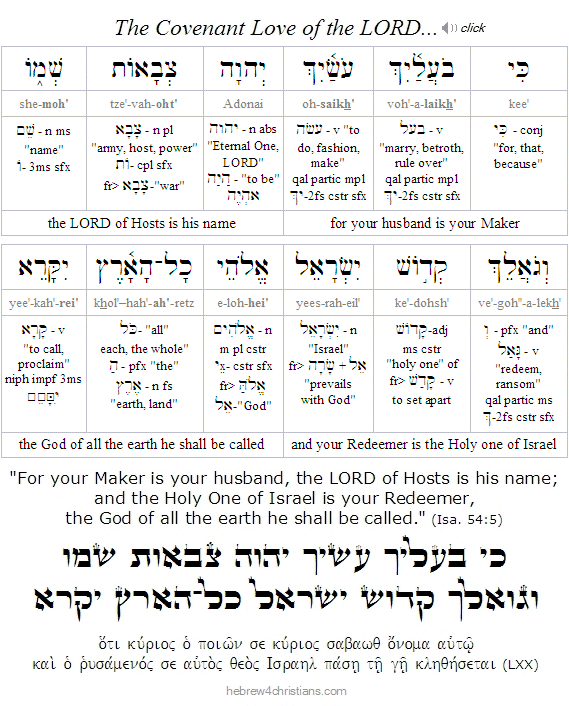 |
Blessing of the desert (ברכת המדבר)

05.10.21 (Iyyar 28, 5781) Our Torah portion this week (Bamidbar) begins: "The LORD spoke to Moses in the desert of Sinai, in the tent of meeting (ohel mo'ed), on the first day of the second month, in the second year after they had come out of the land of Egypt" (Num. 1:1). Note again that the LORD spoke in the desert (ba-midbar) of Sinai, and that the Hebrew word for "desert" (i.e., midbar: מדבר) shares the same root as "word" (i.e., davar: דבר), which suggests that we hear the Word of God in a place of emptiness, brokenness and ongoing need. But note further that the LORD spoke in the "tent of meeting" (אהל מועד), which may be read as the tent of "mo'ed" (מוֹעֵד), or "holiday." We celebrate our need for God's healing and turn to him in a state of gratitude, even despite our sinful condition (Psalm 119:71). We take courage and draw near, renewed in trust. That is why the verse says it was "the first day of the second month" (חדש השני בשנה) -- the word "month" (chodesh) can be read as "new" (chadash), suggesting it was a time of renewal, a time to celebrate a new beginning (Acts 2:1-4). When David prayed in his need: "Create in me a clean heart, O God, and renew a right spirit within me" (Psalm 51:10), the Hebrew may be read: "Create in me a pure heart, O God, and renew within me ruach nachon (רוח נכון) - a spirit of "Yes" (כן). As Paul said of Messiah our Healer: "All the promises of God find their 'Yes' in him" (2 Cor. 1:20).
Hebrew Lesson:
 |
Our Heavenly Father sees in secret... "The deepest thing in our nature is this region of heart in which we dwell alone with our willingnesses and our unwillingnesses, our faiths and our fears" (William James). It is there, in the secret place of the heart, that the sound of the "knock" is either heard or disregarded (Rev 3:20). May the Lord give us the willingness to do His will and the courage to believe in His love. May we all be strong in faith, not staggering over the heavenly promises, but giving glory to God for the miracle of Yeshua our LORD. May we all be rooted and grounded in love so that we are empowered to apprehend the very "breadth and length and height and depth" of the love of God given to us in Messiah, so that we shall all be filled with all the fullness of God.
Hearing the Whisper...

[ The following is related to our Torah reading for this week, parashat Bamidbar... ]
05.10.21 (Iyyar 28, 5781) The Hebrew word midbar (מדבר), "desert," shares the same root as davar (דּבר) which means "word." We often need to be alone to hear God speaking kol demamah dakkah (קול דממה דקה) - "the sound of a low whisper" (1 Kings. 19:12), and the journey into the desert was God's way of separating His people to speak with them "privately," so to speak (Jer. 2:2). But to hear the word we must humble ourselves, and the desert (i.e., "word") of Sinai is therefore first of all the word of humility (ענוה). When God spoke Torah to Israel, it was from a nondescript mountain - a place of emptiness, brokenness and need. Indeed, another word for Sinai is "chorev" (חרֵב), a word that means dryness and desolation. That is the starting point -- not the lush places of a future paradise. We receive Torah "bamidbar" because we can only hear God's davar in a place of lowliness and inner quiet. God brings us to an arid place -- inhospitable, and dangerous -- to reveal our need for Him, to show Himself as our Sustainer. The way to Sinai is a necessary excursion to prepare us to look for the greater hope of Zion. May God help us heed the whisper of His Spirit...
Hebrew Lesson:
Psalm 143:8 Hebrew reading:
Parashat Bamidbar (פרשת במדבר)

[ Our Torah reading for this week, parashat Bamidbar, is always read before the great holiday of Shavuot (i.e., "Pentecost")... ]
05.09.21 (Iyyar 27, 5781) We have a busy week ahead of us. First, we start reading the fourth book of the Torah, namely Sefer Bamidbar, or the "Book of Numbers." Next, the month of Sivan begins Tuesday, May 11 at sundown, which heralds the conclusion of the 49 day countdown from the day following Passover (see Lev. 23:15-16). The first five days of the month of Sivan anticipate the day the Torah was given to Israel at Sinai, namely, the sixth of Sivan, which marks exactly seven weeks after the Exodus from Egypt. So I will be sharing things related to both the Torah portion for this week as well as the holiday of Shavuot, which begins in one week (i.e., Sunday, May 16th after sundown). May the LORD show us grace as we study his Torah and to review the significance of the Torah written upon our hearts in the Messiah (Jer. 31:31, Heb. 10:16, Jer. 32:40). Amen.
Our Torah portion for this week is called parashat Bamidbar (פרשת במדבר), and it begins where the Book of Exodus left off, that is, with the glory of the LORD hovering over the Mishkan (Tabernacle) as the Israelites were stationed at Sinai (Exod. 40:38, Num. 1:1). On the first day of the thirteenth month following the Exodus from Egypt – exactly thirty days after the Tabernacle was first consecrated – God commanded Moses to take a census of all Israelite males over 20 years of age who would bear arms. Moses and the heads of each tribe recorded the results, with 603,550 men in all. This number did not include the Levites, however, since they were designated to take care of the Tabernacle during the journeys.
The LORD then gave instructions about how the Israelite camp was to be arranged. The Tabernacle would occupy the central location, with three clans of the Levites surrounding it on the north, south, and west (Moses and Aaron's tents were placed before the entrance on the east). The twelve other tribes were divided into four groups of three. All of the tents of the Israelites were to face the Tabernacle on every side. This camp formation was to be strictly maintained while traveling throughout the desert.
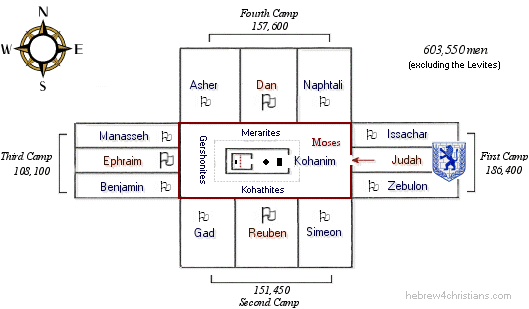 |
Each tribe had its own prince (i.e., nassi: נשׂיא), its own flag (i.e., degel: דגל) whose color corresponded with the color of its respective stone in Aaron's breastplate (Exod. 28:15-21). For example, Judah's stone was a sky-blue carbuncle and therefore the color of his flag was like the color of the sky with a "fiery lion" embroidered upon it (see Gen. 49:9).
The portion ends with a census of the three sons of Levi (בני לוי), namely Gershon (גרשׁון), Kohath (קהת), and Merari (מררי). The Gershonites were to maintain the inner tent of the Mishkan and were to be located on the west side of the courtyard; the Kohathites were to maintain the furnishings of the Mishkan such (as the Ark of the Covenant, the Menorah, etc.) and were to be located on the south side of the courtyard; and the Merarites maintained the frames and pillars of the Mishkan and were located to the north of the courtyard. Finally, though the sons of Aaron were descendants of Kohath, they were set apart to serve as priests (i.e., kohanim: כהנים) and were located before gate into the Mishkan to the east.
Personal Note: My family has been sick for the last week and unfortunately I am now running a fever and am quite sick as well. Your prayers for us are appreciated. Thank you.
Blessing of Spiritual Strength...

05.07.21 (Iyyar 25, 5781) Do you sometimes feel out of control with your emotions? Have you ever felt overwhelmed by fear, anger, or inordinate desire? Yeshua said "out of the heart come evil thoughts" (i.e., διαλογισμοὶ πονηροί, literally, evil "dialogs") that result in bad feelings, wicked actions, and despair, and therefore we must understand the connection between how we think (and what we believe) and the emotional condition of our inner life. Have you ever heard the saying, "Hurt people hurt people?" The word for "evil" in Hebrew (i.e., ra': רע) comes from a verb (רעע) that means to injure or harm others, though the word also connotes a despair of the heart that gives up and chooses to turn "hard" and difficult (קשה). Evil is also connected with cowardice, since the conscience (i.e., moral awareness) reveals judgment for sin, and therefore evil thinking leads to rationalizations, self-deception, and a running away from the truth about who we are...
The Scriptures say that a person without self-control (i.e., מעצר לרוּחוֹ, "rule over his spirit") is like an ancient city without walls - vulnerable to attack and easily overcome by hostile forces (Prov. 25:28)... If you are impulsive or easily agitated, you are rendered defenseless before the enemy of your soul, and therefore it is essential to repair any breach within your heart and to become unified in your thinking and resolve. The Holy Spirit is called the "Comforter" (παράκλητος) because he imparts strength that fortifies the heart. Therefore the fruit of the Spirit (פרי הרוח) is "self-control" (ἐγκράτεια), a word that means "inner strength" (from εν-, "in" + κράτος, "power") referring to mastery over one's desires and passions.
A person without "inner limits" is easily overcome by evil. For example, a person who cannot control his anger cannot control what he says, and this reveals subjection to the lower nature. If a person says anything or everything that enters his mind, he is without boundaries, and there will be no door to close his lips... The same can be said of emotions that rise up with in the soul. Some strong emotions, of course, are appropriate to a some situations, but others are not, and without "taking every thought captive" by exercising self-control, we are liable to be brought into bondage to alien passions and obsessive thinking (2 Cor. 10:4). This is the source of addiction and self-destructive behavior in our lives. Being a "spirit without restraint" is to surrender yourself to dark forces that disregard the glory of your Creator.
Hebrew Lesson:
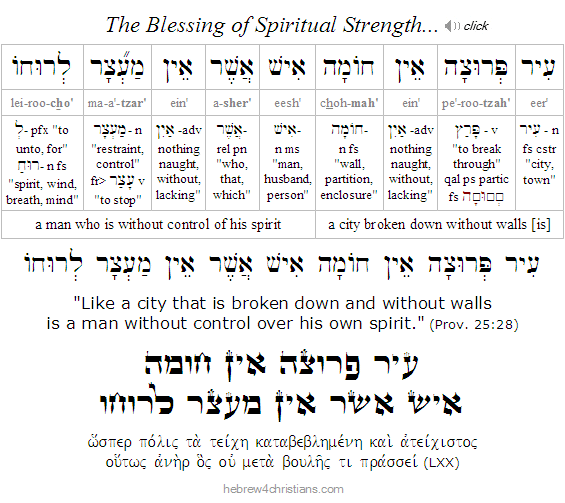 |
God has not given us the spirit of fear but of "power and love and self-control" (2 Tim. 1:7). The Greek word used to translate "self-control" means to be sane, disciplined, restrained from the oppression of inner urges and impulses, and so on. The root word (σῴζω) means to healed from the tyranny of darkness, to be rescued and delivered from evil.... If you find yourself losing your temper or getting fearful when considering the rumors and "news" of this evil world, understand the limitations of your understanding and ask God for the blessing of self-restraint. King David asked the Lord to create in him a new heart that was willing to say "yes" to God's will, but we also need a new heart to say "no" to those impulses that seduce us to look away away from the truth. A double-minded person is "two-souled" (δίψυχος), living out the inner conflict of heart that has not decided what is most important.
"If there is no seed, there is no fruit;" and the type of seed always determines the type of fruit (1 Pet. 1:23; 1 John 3:9). We can sow to the flesh – and reap corruption - or we can sow to the Spirit - and reap life everlasting (Gal. 6:7-8). The formation of "Messiah-like character" is the result of discipline (παιδεία), a word that means to instruct or rear a child (παιδεύω) and is therefore connected with discipleship and education. Indeed, the Hebrew word for "discipline" is musar (מוסר), a term that refers to moral instruction and guidance, whereas the word for "education" is chinukh (חינוך), a term that shares the same root as the word "dedication" (i.e., chanukah: חנוכה). Unlike the Greek view that regards education as a pragmatic process of improving one's personal power or happiness, the Hebrew idea implies dedication/direction to God and His concrete purposes on the earth. Disciples of Yeshua are therefore called talmidim (תלמידים), a word that comes from lamad (למד) meaning "to learn" (a Hebrew word for teacher is melamed (מלמד), a word that shares the same root). There can be no discipline apart from education...
In the New Testament we read, "For the moment all discipline (παιδεία) does not seem full of joy but of sorrow, but afterwards it yields the peaceful fruit of righteousness (פרי הצדק) to those who have been exercised by it" (Heb. 12:11). The Greek word used for "exercised" is gumnadzo (γυμνάζω), often used to refer to training for competitive gymnastic events. Despite the analogy of training or "exercising" the physical body to comply with the directives of the spirit, however, it is important to remember that the life of God is a miracle that comes from God's own source of Life. It is the fruit of the Spirit, after all, and not the result of human effort or moral reformation. See John 15:1-8. Our lives are sanctified in the manner in which they were initially justified: wholly by faith in the love and grace of God... Just as we are unable to "crucify ourselves," so we are unable to produce fruit for God in ourselves. As Yeshua said, "Without me you can do nothing..." (John 15:5).
The Scriptures state twice: שרש למטה ועשה פרי למעלה / "Take root downward and bear fruit upward" (2 Kings 19:30; Isa. 37:31). As Yeshua said, "unless a grain of wheat falls to the ground and dies, it abides alone; but if it dies, it will produce abundant fruit (John 12:24). We pray we might surrender ourselves to the Lord fully, being immersed in His passion, "bearing fruit in every good work (ἐν παντὶ ἔργῳ ἀγαθῷ καρποφοροῦντες) and growing in da'at Adonai (ידיעת יהוה) - the knowledge of God" (Col. 1:10). The "fruit of the righteous is a Tree of Life" lit., etz chayim (עץ חיים), "the Tree of lives" (Prov. 11:30). It is the fruit of Yeshua, the Righteous One, who bears fruits of healing for the lives of those who turn to Him in trust...
All of us have "hidden faults" of which we are not fully aware. Therefore king David prayed, "Who can discern his errors? cleanse me from secret faults" (Psalm 19:12). We are cleansed by confession, that is, by looking within our hearts to uncover deeper motivations... If we are honest with ourselves we may discover, for example, that we are angry or covetous people, despite how we otherwise wish to regard ourselves. If you find yourself unable to let something go, for instance, some pain or failure of the past, remind yourself that you must do so if you want to move on with your life. Focusing on how things could have been different is to be enslaved to the past. The goal of teshuvah (repentance) is to turn us back to God for life, but to do this, we must be be willing to let go of what makes us sick.
"Let the weak say I am strong." The LORD "gives power to the faint, and to him who has no might he increases strength" (Isa. 40:29). Confess: "I can do all things through the Messiah who strengthens me," not "some things," or a "few things," but ALL things (Phil. 4:13). Yeshua is the Source of all our strength. "May you to be strengthened with power through his Spirit in your inner being" (Eph. 3:16). Let's remember to pray for one another and ask the LORD to help make each of us fruitful to the glory of our Heavenly Father (John 15:8). Amen.
Hebrew Lesson:
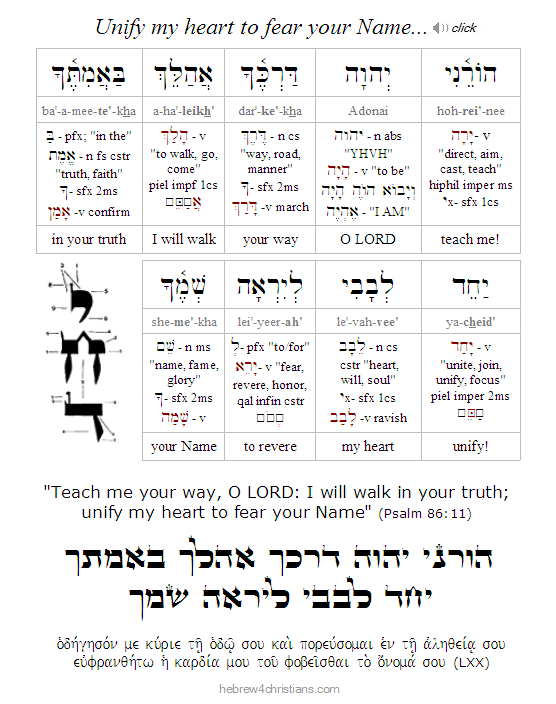 |
Bound by Love's Promise...
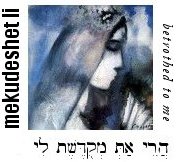
05.07.21 (Iyyar 25, 5781) From our Torah this week (i.e., Bechukotai) we read: "Then [after all the various judgments have befallen the people] I will remember my covenant with Jacob, and I will remember my covenant with Isaac and my covenant with Abraham, and I will remember the land" (Lev. 26:42). Here we note the "deeper Torah" of God's unconditional promise to the children of Israel that "contextualizes" the various tribulations they would suffer because of their disobedience to the terms of the covenant given at Sinai (Gen. 15). Therefore the Apostle Paul appealed to God's promises given to Abraham as the foundation for Torah, not to Israel's righteousness based on the covenant of the law (Rom. 9:31; Gal. 4:24-27). "For the promise to Abraham and his offspring that he would be heir of the world did not come through the law (οὐ γὰρ διὰ νόμου) but through the righteousness of faith" (Rom. 4:13). The better covenant of Zion was prefigured at Mount Moriah - and hearkens back to Abraham and Isaac - not the later covenant made at Sinai (Gen. 22:16-18; Heb. 6:13-15; John 3:16). As for Israel in the galut (exile), God has promised: "But I will for their sake remember the covenant with their forefathers, whom I brought out of the land of Egypt in the sight of the nations, that I might be their God: I am the LORD" (Lev. 26:45). Note again that this covenant relationship was established when we were without anything – we had no Torah, no mitzvot, nor any good deeds to commend ourselves before heaven. Nevertheless, God chose us and called us his people, and all this comes from his great love.
Hebrew Lesson:
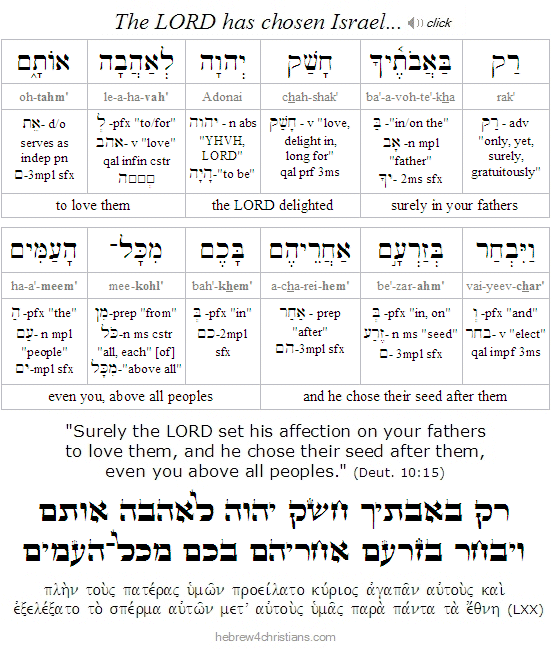 |
Theology and Humilty...

05.07.21 (Iyyar 25, 5781) Everyone is a theologian of sorts, though not everyone thinks clearly or takes the time to reflect on the meaning of the words they use, and therefore studying theology is necessary because so much muddled theology exists... Generally speaking "theology" (θεολογία) may be defined as reasoning (λόγος) about God (Θεός), though such reasoning is grounded in the philosophical activity of apprehending truth about ultimate reality. And just as everyone is a theologian (either a good one or not), so everyone is a philosopher of some kind or another, that is, a person who opines about the ultimate questions of life. To be a conscious person (as opposed to being numb or asleep) implies that you are haunted by the "big questions"of life (for example, "Who are we?" "Where did we come from?" "Why are we here?" "Where are we going?" and "What does it all mean?"), and therefore every self-reflective soul cannot escape the need to think clearly.
The disciples of Yeshua are called talmidim (תַּלְמִידִים), that is, "learners" who have a duty before God to know and live the truth. We are to "study to show ourselves approved before God, rightly understanding the word of truth" (2 Tim. 2:15). The alternative to being talmud chacham (a wise student) is to be muddled about what you believe and why your believe it. Faith is called the conviction (ἔλεγχος) or "argument" of truth (see Heb. 11:6). Not knowing the truth makes you vulnerable to various forms of philosophical deception and theological error, as it is written: "Beware lest anyone cheat you through philosophy and empty deceit, according to the traditions of men, according to the basic principles of the world, and not according to Messiah" (Col. 2:8). "However, we speak wisdom (σοφία) among those who are mature, yet not the wisdom of this age, nor of the rulers of this age, who are coming to nothing, but we speak the wisdom of God in a mystery, the hidden wisdom which God ordained before the ages for our glory" (1 Cor. 2:6-7). It is the knowledge of the truth that sets us free (John 4:24, John 8:32; 2 Cor. 3:17).
Because we must both love the truth and discern what is false, clear thinking is required of us. "Good philosophy must exist, if for no other reason, because bad philosophy needs to be answered" (C.S. Lewis). Now philosophy is philosophy, but loving God is something more... Faith is not just a "head trip," but a "heart trip," and therefore it is essential to immerse the passions in all that we do. There is a real danger of intellectualizing faith, becoming something of a "professor" about God or a "Bible answer man" where you live "up in your head," full of sophisticated thinking about abstruse matters while disregarding the existential pathos and demands of the gospel.... Over the years I have read theologians that make God seem so remote and abstract that you wonder who or what is being talked about, after all. There is a danger to regard God as an "object' of knowledge -- a glorious, superlative, and supreme thing to study -- but a "thing" none the less. Tragically those who argue about theology have yet to learn the first truth that honest philosophy can offer, namely, that most of the time we don't really know (or fully understand) what we are thinking or saying. Being aware of our own blind spots requires forsaking our supposed infallibility and humbling acknowledging our own ignorance. We see "through a glass darkly." The intellect can act as a "defense" against what the Living God says to the wounded heart. That's always been the danger of mere "religion," after all, offering recipes and rituals, dogmas and assured theological confessions, while forgetting the desperate and hurting souls who must find God or die....
"God of Abraham, God of Isaac, God of Jacob -- not of the philosophers and scholars." These words represent Pascal's change of heart. He turned, not from a state of being where there is no God to one where there is a God, but from the God of the philosophers to the God of Abraham. Overwhelmed by faith, he no longer knew what to do with the God of the philosophers; that is, with the God who occupies a definite position in a definite system of thought. The God of Abraham . . . is not susceptible of introduction into a system of thought precisely because He is God. He is beyond each and every one of those systems, absolutely and by virtue of his nature. What the philosophers describe by the name of God cannot be more than an idea." (Martin Buber: Eclipse of God, 1952)
Hebrew Lesson:
Establishing the Law...
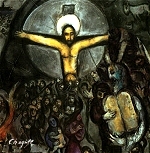
05.06.21 (Iyyar 24, 5781) This week's Torah (i.e., Bechukotai) promises blessings for those who obey God's law and curses to those who do not. In the opening verses of portion we read: "If you walk in my statutes, and keep my commandments, and do them" then great blessings will follow (Lev. 26:3-ff). The sages comment that the phrase "if you walk in my statutes" (אם־בחקתי תלכו) does not refer to the regular commandments (i.e., ha'mitzvot: המצוות), but instead to the study and love of the Torah (לימוד התורה), the wisdom of which is a "Tree of Life" (עֵץ־חַיִּים) to those who take hold of it (Prov. 3:22). To "walk in the statutes" of Torah is to meditate upon it day and night, so that you will be rooted as a tree beside streams of water, bringing forth fruit in abundance and blessing (Psalm 1:3).
The portion continues by warning that if, on the other hand, you neglect God or are careless about keeping the commandments, you will experience the curse: all kinds of trouble, sickness, sorrows, exile, and (worst of all) alienation from God. The sages emphasize that the cure to the various curses of the law (i.e., tochachah) is the study of the Torah, by which they mean not simply intellectual study but also the careful practice of its principles in your daily life. Torah study, in this sense, is likened to medicine that heals the soul...
Now while it is assuredly true that the practice of Torah - walking in the decrees of God - is the ideal for people, and the imperatives of Scripture, if obeyed, direct the soul to life and blessing, the problem of indwelling sin is so incurably radical that it no amount of resolution of the will nor reformation of character will suffice to transform the fallen estate of human nature and thereby reverse the curse of death given to the sons of Adam, and therefore a cure that comes from beyond the realm of human nature must be found, a heavenly cure that is otherwise called the "righteousness of God" (צדקת האלהים).
Again the problem of the curse (i.e., death) is not with the law of God, of course, which is "holy, and the commandment is holy and just and good," though indeed the verdict of the law exposes our sin and convicts us as transgressors. So the problem is not with the law of God but rather that we are lawbreakers, that we want to be "god" of our own inner world, and the effect of indwelling sin activates or "works" spiritual death within us. The rule (or power) of "indwelling sin" is called "the (principle of the) flesh" in Scripture, indicating that the source of human corruption is inherent and ever-abiding. This is otherwise called the "fallenness" of the human condition -- its irremediable state that refuses to submit to divine authority (Eccl. 9:3; Mark 7:21; Rom. 8:7; Jer. 17:9; etc.) -- and therefore the way of deliverance (ישׁוּעה) from the curse of our own inner corruption, from our own evil hearts, comes "apart from the law" that says, "do this and live." In the New Testament this is called "the righteousness of God apart from the law, though testified by the law and the prophets" (Gal. 3:10-12; Rom. 3:21).
This divine remedy, or "the righteousness of God" is given by means of the promised Deliverer and Savior, namely, Yeshua the Lord, who has redeemed us from slavery to the verdict of the law (i.e., death) and also from the control of indwelling sin. His redemption releases us from the legal claim of Satan that we are his bound subjects, and his regeneration enables us to inherit the divine blessing from the LORD. We are saved from divine wrath (i.e., the verdict of the law) through faith in the efficacy of the blood of Yeshua as our atoning sacrifice for the remission of our sins, and our trust "justifies," or puts us in right relationship with the LORD who is both the Lawgiver and our Savior (Rom. 3:26; Psalm 85:10). Salvation is "ontological," meaning it affects the deepest realm of our being and our heart. Because we have a new relationship with God according to the truth and power of his redemption, we are given a new identity and a new nature. We are "regenerated" by the life of God and no longer enslaved to "fallenness" of the lower nature. The forensic (legal) claim of Satan to keep those who sin as his captives is therefore nullified and we are empowered to live as God's adopted children.
In light of all this the question may arise, however, that if we are redeemed from the curse of the law, and if we are justified and empowered by faith to walk in the righteousness of God, then does this mean the law of God is nullified or abolished? After all, if the law is powerless to save us, as explained above, then is it not powerless in the realm of faith as well?
The Apostle Paul answers this question by saying "God forbid! We do not make void the law of God through faith, but on the contrary we establish the law!" (Rom. 3:31). In other words, our faith establishes the sanctity of the law of God by attesting to its validity and truth. After all, the law of God teaches that God is holy and just and that we are to be holy and just in all that we do (Lev. 19:2), and that the penalty for disobedience to God's law is spiritual death (Deut. 27:26; Ezek. 18:4; Psalm 7:11; 9:17; 110:5; Isa. 1:4,20; Dan. 12:2; Joel 1:15, James 2:10). Sin is forgiven, according to the law, only by means of sacrificial blood offered on behalf of the trusting and penitent sinner, and without the shedding of blood there is no remission for sin (Lev. 17:11; Heb. 9:22). Note that the Levitical system at the Mishkan ("Tabernacle") offered sacrificial blood on behalf of God for the atonement of the sinner, and that this blood represented the divine life of the Savior who was to come (Heb. 9:12-10:31). Yeshua, as the embodiment of the divine life and sacrificial blood, was offered for our sins to secure an eternal reconciliation and atonement for us (Rom. 5:11; 2 Cor. 5:19; Heb. 9:12). Far from nullifying the Torah, then, believers in Yeshua affirm the truth that the law of God is holy, just and good (even though the verdict of the law consigns us to judgment and death), and that the way of forgiveness comes by means of blood atonement of God's sanctified sacrifice.
The "law of the LORD is perfect, returning the soul" (Psalm 19:1), since by means of the law we understand our need for deliverance from the curse of being alienated from the life of God, and therefore our beloved Savior became a "curse for us" so that we could inherit the blessing of God forever. Amen, praise the LORD for the everlasting blessing his salvation - the gift of His righteousness given on our behalf! The New Covenant of God -- that is, the unconditional promise of God based on His love expressed in Yeshua -- imparts new life to us, and by the agency of the Holy Spirit, the spiritual meaning and truth of the law of God is written upon the table of our hearts, as it says, "Behold, the days are coming, declares the LORD, when I will make a new covenant with the house of Israel and the house of Judah, not like the covenant that I made with their fathers on the day when I took them by the hand to bring them out of the land of Egypt, which covenant they broke, though I was their husband, declares the Lord. For this is the covenant that I will make with the house of Israel after those days, declares the LORD: I will put my Torah within them, and I will write it on their hearts. And I will be their God, and they shall be my people" (Jer. 31:31-33). Amen, God gives to us a new heart and a new spirit so that we become new creations (Ezek. 36:26; 2 Cor. 5:17). So yes indeed by means of the New Covenant of God we establish the law as followers of Messiah!
 |
Dangers of Carelessness...

[ The following is related to our Torah reading for this week, parashat Bechukotai... ]
05.06.21 (Iyyar 24, 5781) This week's Torah portion (i.e., Bechukotai) includes the first great "rebuke" (i.e., tochechah: הוכחה) of the community of Israel given in the Scriptures (the second rebuke is found in Ki Tavo, i.e., Deut. 28:15-68). In this sober and ominous section, God promises the people great blessing if they would obey Him (Lev. 26:3-13), but He forewarns that exile, persecution and other progressively worse punishments would befall them if they would break faith with Him (Lev. 26:14-46). The sages note that divine censure would come if the people "forgot" about God or otherwise became careless in their observance of His laws. They point out that the refrain "if you walk contrary to me" (והלכתם עמי בקרי) - which occurs several times during the rebuke - really means "if you walk carelessly (i.e., keri: קרי) with me." Rashi notes that the verb קָרָה means "to befall" or "to happen" and therefore suggests a sense of randomness (the related word mikreh [מִקְרֶה] means "coincidence"). That is, if the people regarded the events of life as "random," then God would reciprocate by bringing senseless trouble into their lives... For this reason the sages regard a careless attitude about God's will as the very first step to inevitable apostasy. In other words, regarding whatever happens in life as mere "coincidence" essentially denies God's Presence (hashgachah pratit), and this attitude will eventually call for God's corrective intervention. People may be "hot or cold" regarding their relationship with Him, but God will never give the option of affecting indifference toward Him... Indeed, God often brings hardship into our lives to regain our attention and cause us to return to Him. As C.S. Lewis once said, "God whispers to us in our pleasures, speaks to us in our conscience, but shouts in our pains: It is His megaphone to rouse a deaf world" (Mere Christianity).
The portion begins, "If you walk in my statutes (i.e., bechukotai: בחקתי) and keep my commandments and you do them..." (Lev. 26:3), which led Rabbi Hanina to ask why the seemingly superfluous phrase, "and you do them" (וַעֲשִׂיתֶם אתָם) was included here. After all, if the people would walk in God's statutes and guard his commandments, wouldn't they necessarily be doing them? He then suggested that the vowels of the word otam ("them") should be vocalized as atem (אַתֶּם), "you," which would then change the sense of the phrase to become, "you shall make (עָשָׂה) yourselves" (i.e., into God's image). The logical corollary of this seems to imply that if you do not walk in God's statutes and guard his commandments, you will disfigure the image of God within you...
Interestingly, God specifically cites the failure to observe the Sabbatical Year (shemittah), mentioned ealier in parashat Behar, as part of the reason why His judgment would come (Lev. 26:34-35,43). The observance of the Sabbatical Year, of course, required complete faith that God was in control of all the "happenings" of nature. Like the Sabbath day, the Sabbatical year was designated to proclaim that God is the King of the universe. Those who disregarded this law therefore denied God's rule over nature, and thereby denied the existence of spiritual reality that ultimately governs the physical world...
Hebrew Lesson:
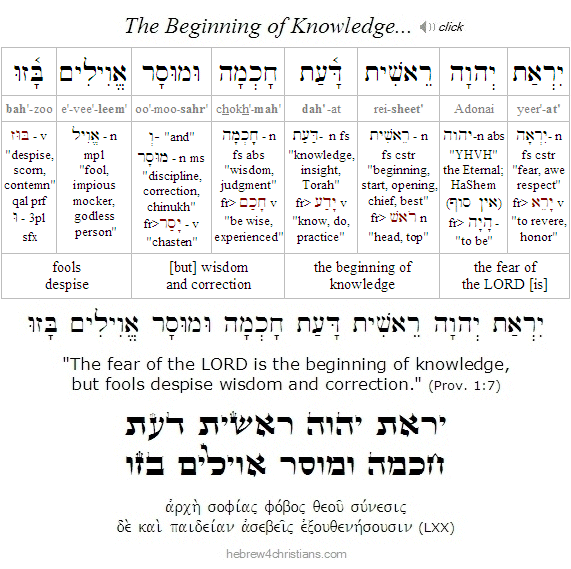 |
The Scriptures warn us to "pay more careful attention to what we have heard so that we do not drift away" (Heb. 2:1). We must be anchored to the truth lest we become shipwrecked in our faith. Drifting occurs slowly and almost imperceptibly, though the end result is as deadly as openly turning away from God in outright apostasy. As C.S. Lewis once wrote, "The safest road to hell is the gradual one - the gentle slope, soft underfoot, without sudden turnings, without milestones, without signposts." The devil seeks to lull you to sleep...
Spiritual danger is just as real as physical danger, though most people pretend it isn't because it isn't as easily seen. The danger today is to give up hope, to "go with the flow," to become numb, to drift off asleep, and to die inside... It is far more dangerous to tranquilly ignore God's mercy, or to make a pretense of knowing God's grace, than it is to blatantly break his law. Therefore the urgent need is to remember, to hear, and to awaken the soul to face the truth about reality. We must focus the heart, concentrate the will, and consciously "set" the Lord always before us (Psalm 16:8). Each day we must awaken from our emptiness to reaffirm the central truth: "Hear, O Israel, the LORD is our God; the LORD is one; and you shall love the LORD your God with all your heart and with all your soul and with all your might" (Deut. 6:4-5). As the Apostle Paul said, "Awake, you who sleep, Arise from the dead, And Christ will give you light" (Eph. 5:14).
Hebrew Lesson:
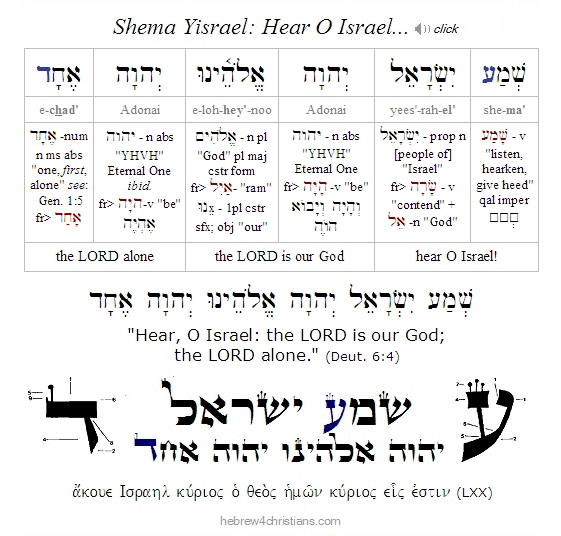 |
Therefore we must be vigilant to secure our high calling in Messiah: "Let us know; let us press on (i.e., נִרְדְּפָה, "pursue after") to know the LORD; His going out is sure as the dawn; He will come to us as the showers, as the spring rains that water the earth" (Hosea 6:3). The day is drawing near, and now - more than ever - we must remain steadfast. May God help you pursue him be'khol levavkha – "with all your heart" – because He has promised, "You will seek me and find me, when you seek me with all your heart" (Jer. 29:13). And may the love of the LORD be upon you, even as you put your hope in him (Psalm 33:22).
Hebrew Lesson:
For more on this subject, see "The Tochechah: Further Thoughts on Bechukotai."
The School of Suffering...
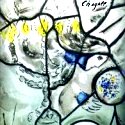
05.05.21 (Iyyar 23, 5781) We are being educated for eternity, and the life of faith is a long lesson in obedience -- learning to suffer God's will, to accept whatever happens, and to endure in hope. Practically speaking this means "laying aside" your desires and surrendering yourself -- all that is within you -- in trust of God's plan for your life, even (and especially) in the most harrowing of moments... Indeed, in light of suffering what we really need is perseverance, or what the New Testament calls hupomone (ὑπομονή), a word that means "remaining [μένω] under [ὑπο]" the Divine Presence while being tested (the word "suffer" comes from the Latin word sufferre, from sub- (under) + ferre, to carry, and therefore denotes "bearing under" difficulty). Laying aside our desires is a form of suffering that calls for patience and wisdom as we learn to endure our own frailty and to trust God for what is best...
For the child of God there are no "disappointments" in life, since God directs our steps and uses every circumstance for our ultimate good: "The steps of a good man are ordered by the LORD, though he fall, he shall not be utterly cast down..." (Psalm 37:23-24). To plead with God for some deliverance, to beseech him for the life of a beloved child or spouse; to cry out from the depths for mercy in the face of loss, as when beside a fresh grave - and to there affirm the threefold affirmation of kaddish: "The Lord gave, and the Lord has taken away; blessed be the name of the Lord" (Job 1:21) - is to learn the lesson of obedience - surrendering to God's will, refusing to despair even in the midst of our sorrows....
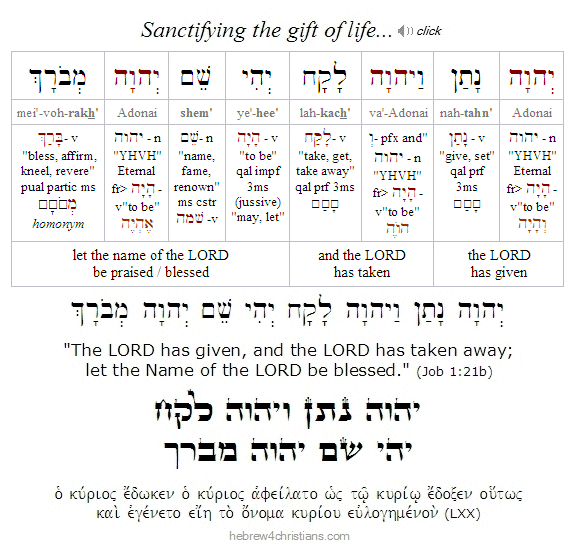 |
Therefore we suffer to learn obedience, for what is obedience that is not tested and refined by suffering? "Hear O Israel, the Lord is our God, the Lord is one" is the mantra of the Jewish heart (Deut. 6:4). The Shema is an invitation to "show up" by refusing despair; it is an affirmation that God's loving providence is in control of all that is essential for our lives.
The flesh needs no lesson to cling to its life and desire its pleasures, of course... God allows suffering in our lives as an opportunity to grow -- to affirm what is good in the midst of loss and to trust in God's direction and purposes. We do not learn obedience apart from the test of faith, and therefore obedience cannot be taught apart from the struggle to believe. We wrestle to surrender, with groans and sighs we utter: "not my will, but thy will be done."
Recall the Serenity Prayer: "God grant me the serenity to accept the things I cannot change, the courage to change the things I can, and the wisdom to know the difference." Serenity, or inner peace, comes when we surrender our will and our lives to God's care, and wisdom comes when we realize that such surrender of the heart makes all the difference. As Kierkegaard once said: "This is the key to finding rest in your suffering. There is only one way in which rest is to be found: to let God rule in everything. Whatever else you might come to learn only pertains to how God has willed to rule. But as soon as unrest begins, the cause for it is due to your unwillingness to obey, your unwillingness to surrender yourself to God."
In the midst of his lament, from within the whirlwind of dark passions, indignation, confusion, and struggle, God spoke to Job, and there Job learned the lesson of surrender before the overmastering beauty and glory of the LORD. "I have heard of thee by the hearing of the ear, but now my eye sees you; therefore I abhor myself and repent in dust and ashes" (Job 42:5-6). Through his suffering Job learned the lesson of obedience - he had to forsake his "own dark counsel" and "words without knowledge" (Job 38:2-3) by turning to the Lord in his brokenness and need. Job repudiated his reckless accusation that God was unjust and unloving. In Hebrew the phrase "therefore I abhor myself" might better be understood as "I recant what I said in my ignorance." Job found comfort (nacham) in turning back to God in trust, notwithstanding his ordeal. Whatever happened to Job was the miracle of grace, wherein he was able to forsake his own understanding - his own "demand" to understand - in trust that God is really his friend, and this consolation was more than enough....
It is the Spirit that gives life; the flesh profits nothing (John 6:33). It is impossible for the human heart to believe that God is gracious to him, and yet the very greatest danger is despairing of grace... Faith and grace are therefore intimately connected, for God's acceptance and forgiveness is for those who believe... We do not find God's heart by relating to him through the law - that is, by appealing to him as our Judge - but by relating to him through grace - that is, by believing and receiving him as our Savior. Despair comes from our own spirit trying to reason or bargain with God's acceptance; but salvation comes from hope imparted by the Holy Spirit, which is to say, by means of the miracle of God.
We are not without God's help in our suffering, friend. Yeshua promised that the Ruach HaKodesh (רוּחַ הַקּדֶשׁ) would be "called alongside" (παράκλητος) to comfort us on the journey. The English verb "comfort" literally means "to give strength" (from com- ["with"] and fortis ["strong"]), an idea similarly expressed by the verb "encourage," that is, to "put heart [i.e., 'core'] within the soul." In Hebrew, the word courage is expressed by the phrase ometz lev (אמֶץ לֵב), meaning "strong of heart," denoting an inner quality of the will rather than of the intellect. Ometz lev means having an inner resolve, a passion, and a direction.
The walk of faith requires courage, that is heart... The human mind reasons and therefore fears, but the heart is the center of our being, the core of who we are. The heart does not reason its way to love but instead allows love to inform and direct reason. Therefore God asks our hearts to trust in him, and he does not allow calculated human reason with its fears to move us on the way (Isa. 55:8). When we receive grace to faithfully suffer, we hear the Spirit whispering back to us: "Be not afraid..." "Live in me..." "Walk in the light..." "I am with you always..." "You are loved..."
 |
Broken to be Remade...

05.04.21 (Iyyar 22, 5781) No one wants to admit that they are needy, broken, weak, and so on, and indeed such a confession is blasphemy to the heart of the proud. The truth, however, is that we are indeed all these things, and Yeshua told us we were blessed if we understood this (Matt. 5:3-6). The is great danger to pretend you are strong and capable of living life on your own terms, since eventually you will be blindsided by the truth about your condition. On the other hand, the confession of our weakness opens the way to God's power, as Yeshua said to Paul in his affliction: "My grace is sufficient for you, for my power is made perfect in weakness" (2 Cor. 12:9). Paul came to see that the various trials and afflictions in his life taught his profound dependence on God: "for when I am weak, then I am strong."
Access to this grace, however, comes at the expense of our pride. We must humbly confess who and what we are, and therefore we must entirely abandon hope in our own strength and virtues. "We are only as sick as the secrets we keep," especially those secrets we keep from ourselves - those self-deceptions and illusions we use to defend ourselves.
Suppose, for instance, that you have the bad habit of complaining and even cursing when you are beset by troubles, and you want to stop doing these behaviors. You may resolve to be more optimistic and grateful, or you may read self-help books -- or even take anger management classes -- but nothing will do you any lasting good until you know "in your bones" that you are powerless to change your heart. That is the first step to being set free. Or suppose that you are habitually unhappy, troubled, anxious, and in pain, yet you want to find inner peace and joy. Again, apart from the miracle of God there is no lasting remedy. You must be honest with yourself and confess the truth of your condition, asking God to do in you what you cannot do for yourself. As Yeshua said: "What is impossible with man is possible with God." So in this way God uses your sins to correct you or bring you to the end of yourself, and in that way awareness of your personal weakness is a blessing from God.
Recall that Yeshua said out of the heart proceed "evil thoughts," or more literally, "evil dialogs" or reasoning within yourself (διαλογισμοι πονηροι). You are tethered to yourself - you cannot escape yourself - yet a divided house cannot stand. Attempting to relate to yourself apart from a relationship with God leads to ongoing despair -- either the despair of being yourself or else the despair of fleeing from yourself -- but either way, to a condition of anxiety derived from not being grounded in the life of God... "Unless a seed of wheat falls to the ground and dies, it abides alone..." (John 12:24). Yeshua is the source of all life, and we find nourishment, strength, and the meaning of who we are as we connect with him. By faith we affirm: "I have been crucified with Messiah, and it is no longer 'I' who live, but Messiah who lives in me" (Gal. 2:20). There is a new self that comes from above, known only in spiritual relationship with the Savior. The miracle of the exchanged life comes as we surrender to the truth of what God does for us (2 Cor. 5:17). That's the essence of the gospel, "the power of God for salvation for all who believe" (Rom. 1:16). Therefore we do not attempt to crucify ourselves, or labor to reform our lower nature, but we instead accept that we already have been crucified and healed by the mercy and miracle of God. We clothe ourselves in the robes of his righteousness as we celebrate God's redeeming love for our lives. Only then are we empowered by the Spirit to truly "love the LORD and keep his charge" (Deut. 11:1).
The gate is narrow that leads to life, and few there be that find it (Matt. 7:14). That is part of the offense of the cross, after all - the confession you are lost, in darkness, and in need of salvation. Few receive this truth into their hearts because they want to be in control and refuse to let go; few regard their weakness as a blessing that opens the gate to God's strength. Let the weak say "I am strong" because of what the LORD has done. God's grace is sufficient, and his strength is perfected in weakness: "So then, I will boast most gladly about my weaknesses, so that the power of Messiah may reside in me" (2 Cor. 12:9). "I can do all things through the Messiah who strengthens me" (Phil. 4:13). Amen.
Hebrew Lesson:
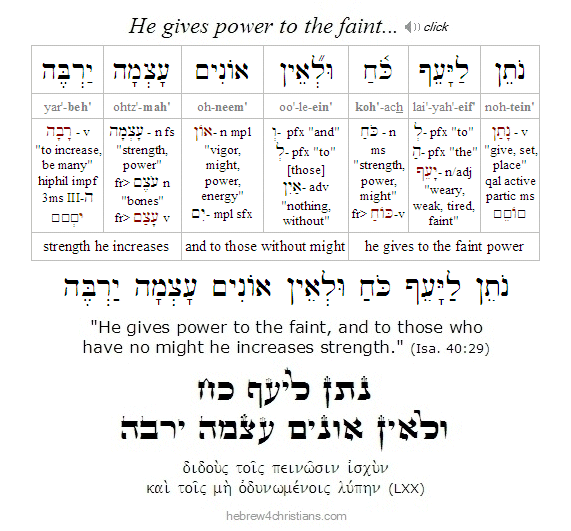 |
The Work of His Rest...

[ The following is related to our Torah reading for this week, parashat Behar... ]
05.04.21 (Iyyar 22, 5781) "At the end of every seven years you shall grant a release (i.e., shemitah, שְׁמִטָּה, a "letting go," from שָׁמַט, to relinquish). And this is the manner of the release: every creditor shall release what he has lent to his neighbor. He shall not exact it of his neighbor, his brother, because the LORD's release has been proclaimed" (Deut. 15:1-2). Often it takes more faith to "let go" than to keep your hand to the plough... Relaxing your grip, letting the yield of your efforts go fallow, requires you to trust in God's promise rather than your ability to control outcomes. The Law of Shemittah (תּוֹרָה שְׁמִטָּה) teaches us that when we surrender to God's care, we will suffer no loss, even when we allow our land to go fallow. May the Lord make the work of rest within us...
Hebrew Lesson:
Help Thou my Unbelief...

05.03.21 (Iyyar 21, 5781) I am suffering, friends.... feeling exhausted in prayers for healing. I feel a bit alone with my sorrows and relentless pain; I am in darkness as I wonder why the Lord has allowed such afflictions to come upon me. My agony arises not from unbelief, for I am fully persuaded and entirely convinced that the Lord can simply "say the word" and I shall be healed, despite my worthless condition... Yet my vexations remain; they torment me in their persistence; I cry out for mercy yet there is no relief... "How long with you forget me, O LORD, forever?" With tears I cry out "Lord I believe; help thou my unbelief" (Mark 9:23-24). In a flash of distress I feel like I am on the border of death itself, as David cried out: "the snares of death encompass me; the pangs of Sheol laid hold on me; I suffer distress and anguish..."
It is written: "Blessed is the Lord, who daily bears our burden; He is the God of our salvation; selah" (Psalm 69:19). The word "selah" here means to pause or reflect (the ancient Greek uses διάψαλμα, meaning to "hold out the palm of the hand" for this word). Our burden includes the sorrows of loss and pain as well, as the passage continues: "Our God is the God of deliverance, and the LORD our Master provides escape from death" (Psalm 69:20). Yea, the LORD provides deliverance from death, even in the midst of our dying, and even when we die, as it says, "For none of us lives to himself, and none of us dies to himself. For if we live, we live to the Lord, and if we die, we die to the Lord. So then, whether we live or whether we die, we are the Lord's. For to this end Messiah died and lived again, that he might be Lord both of the dead and of the living" (Rom. 14:7-9). Suffering and physical death are a part of our journey in this fallen world, though they do not have the final word about who we are and what ultimately becomes of us. May God grant us strength to endure our days. Amen.
Hebrew Lesson:
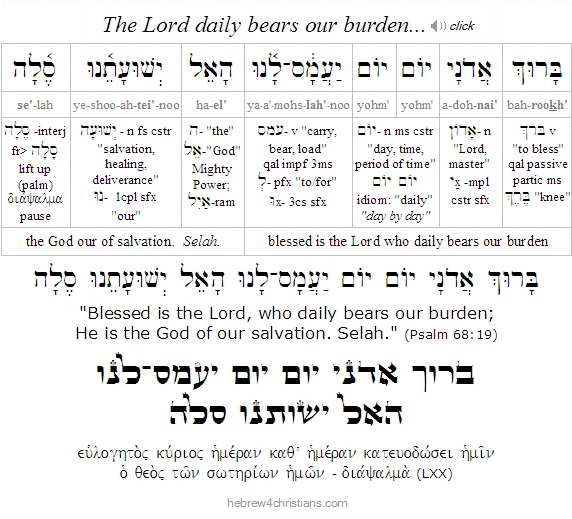 |
I confess my faults to you, my friends (James 5:16). I sometimes struggle when my prayers to the LORD seem to be disregarded, or when my suffering continues after countless appeals made before the Throne of Grace (Heb. 4:16)... I can fall into despair and lose sight of God's very near presence in the midst of my heartache and questions; my soul can wax restless and frustrated as I wait in the silence of my own emptiness... Thank you for your prayers.
Remembering Jerusalem...

[ Yom Yerushalayim, or Jerusalem Day, begins Sunday, May 9th (after sundown) and will be observed throughout the following day (i.e., Monday, May 10th). ]
05.03.21 (Iyyar 21, 5781) In Israel, "Jerusalem Day" (i.e., Yom Yerushalayim: יום ירושלים) commemorates the re-unification of old city of Jerusalem on June 7th, 1967 during the Six Day War. In 1968 the Chief Rabbinate of Israel declared Iyyar 28 to be a minor holiday to thank God for answering the 2,000-year-old prayer of "Next Year in Jerusalem." On March 23, 1998, the Knesset passed the Jerusalem Day Law, making it an annual national holiday.
Jerusalem is central to the Jewish heart. The Hebrew word "Zion" (ציון) is mentioned over 160 times in the Scriptures. That's more than the words faith, hope, love, and countless other key words... And since Zion is a poetic form of the word Jerusalem (ירושלים), the number of occurrences swells to nearly 1,000! Since it's the most frequently occurring place name in all the Scriptures, it's no overstatement to say that God Himself is a Zionist.... "Out of Zion, the perfection of beauty, God shines forth" (Psalm 50:2). "The LORD loves the gates of Zion more than all the dwellings of Jacob. Glorious things are said of you, O City of God" (Psalm 87:2-3). Indeed, Yeshua our Savior called Jerusalem the "City of the great King" (Psalm 48:2; Matt 5:35): It is the place (המקום) where He was crucified, buried, resurrected, and ascended to heaven; and is it furthermore the place where He will return to earth (Zech. 14:1-9).
In Psalm 122:6 it is written, "Pray for the peace of Jerusalem," a phrase that reveals prophetic truth about our Savior and Messiah. The word sha'alu (שאלו) means "you ask" (as in ask a sheilah, a question), shalom (שׁלוֹם) is the name of Yeshua, the Prince of Peace (i.e., Sar Shalom: שר־שלום), and Jerusalem means "the teaching of peace" (Jeru- comes from the same root as the word Torah [ירה], which means "teaching"). The phrase sha'alu shelom Yerushalayim can therefore be construed, "ask about the Prince of Peace and His Teaching." Amen. Yeshua the Messiah is indeed the rightful King of Jerusalem (Matt. 5:35) who is coming soon to establish Zion and to reign over all the earth.
שַׁאֲלוּ שְׁלוֹם יְרוּשָׁלָםִ
יִשְׁלָיוּ אהֲבָיִךְ
sha·a·loo · she·lohm · ye·roo·sha·la'·yeem
yeesh·la'·yoo · o·ha·va'·yeekh

"Pray for the peace of Jerusalem;
May those who love her be at peace" (Psalm 122:6).
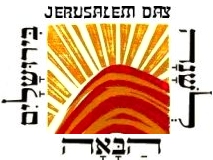
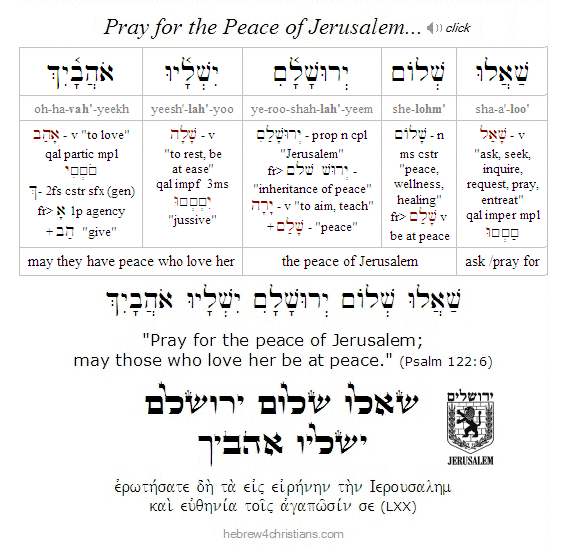
Friends, how can we forget Zion, "the city of the living God, the heavenly Jerusalem" (Heb. 12:22)? Is she not "our mother" (Gal. 4:26)? Are we not her citizens, indeed, her exiles in this age? As the psalmist said, "If I forget you, O Jerusalem, let my right hand forget its skill! Let my tongue stick to the roof of my mouth, if I do not remember you, if I do not set Jerusalem above my highest joy!" (Psalm 137:5-6). Yes we are instructed to "pray for the peace of Jerusalem" (Psalm 126:6), but we are further told to "badger" the LORD until he makes Zion "the praise of the earth" (Isa. 62:7).
Note: Click here to learn 25 reasons why Jerusalem matters...
The Ascension of Messiah...
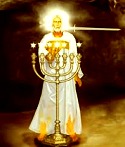
[ Thursday, May 6th (after sundown) marks the 40th day of the Omer Count... ]
05.03.21 (Iyyar 21, 5781) We are in the midst of Sefirat Ha-Omer (the "Counting of the Omer"), a 49 day countdown that runs from Nisan 16 through Sivan 5. The first day of the omer count began on the day following Passover, and the last day occurs the day before the great jubilee of Shavuot ("Pentecost"). On our Gregorian calendars, these dates run from March 28th until May 16th this year. This is a "countdown period" leading to the giving of the Torah at Sinai and the giving of the Holy Spirit to Yeshua's disciples...
 |
Thursday, May 6th after sundown (Iyyar 25) marks the 40th day of the Omer Count (i.e., Mem B'Omer), the time associated with the ascension of Yeshua back to the heavenly realm (Luke 24:44-53; Acts 1:9-11; Eph. 4:8). The ascension of Yeshua was foreshadowed by Moses and the receiving of the Torah at Sinai: Just as Moses had waited 40 days before the Torah was given to Israel, so the disciples waited 40 days before the promise of the Holy Spirit was given (Exod. 24:18; John 16:7, Acts 2:1-4). In both cases, at the appointed time revelation was given -- first in the form of "the Voice of the Living God speaking from the midst of the fire" at Sinai (Deut. 5:26), and later in the form of "tongues of fire" given in glory and power. Yeshua's Voice is now heard from the midst of the fire given at Zion...
A thousand years before the birth of our Savior (מושׁיענו), King David prophesied of the ascension when he announced the Lord's enthronement at the right hand of God (Psalm 110:1; Matt. 22:41-46; 26:64). Recall that Yeshua told His followers that it was good that he would leave them, so that the Holy Spirit (רוח הקודש), the "Comforter" or "Advocate" (παράκλητος), would be given to them. "But I tell you the truth, it is for your advantage that I am going away. For if I do not go away, the Advocate (ὁ παράκλητος) will not come to you, but if I go, I will send him to you" (John 16:7). Notice that the word translated as "advantage" here is the Greek word συμφέρω (from σύν, "with" and φέρω, "to carry"), which suggests that we would be given power that "carries us" with the Lord during the trials of this life... Bo, Ruach Elohim (בוא רוח אלוהים) "Come, Holy Spirit..."
Hebrew Lesson:
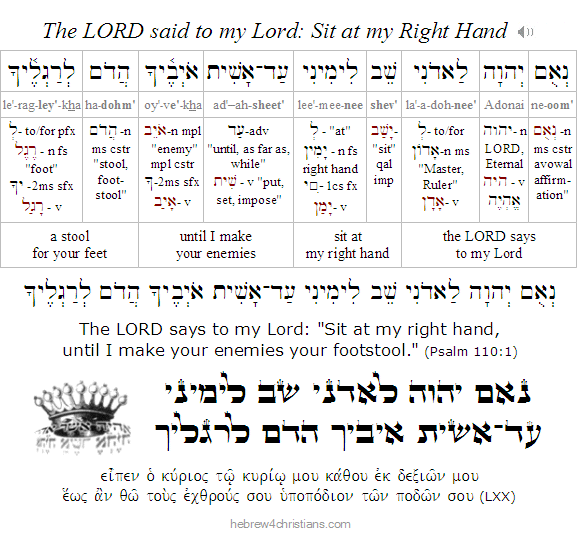 |
Hebrew Lesson:
Note: For more on this, see "Mem B'Omer and the Ascension of Yeshua."
Parashat Behar-Bechukotai...
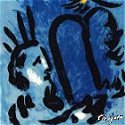
05.02.21 (Iyyar 20, 5781) Shavuah Tov, chaverim. This week we have another "double portion" of Torah. Our first Torah portion is called parashat Behar (פרשׁת בהר) begins with the commandment that an Israelite farmer must let his land remain fallow every seventh year. This is called the "Sabbatical year" (or shemittah: שְׁמִטָּה). For six years, a farmer would be permitted to plant and harvest fields and vineyards, but during the seventh year no planting or harvesting was permitted, and all the inhabitants of the land could freely glean whatever the farmland produced naturally. Like the "double portion" of manna that fell on the sixth day of the week, God promised to give farmers a "double portion" of the harvest on the sixth year.
The Sabbatical Year...
God was deadly seriously about the matter of allowing the land to rest every seventh year. Indeed, the judgment upon Israel for ignoring the shemittah was so great that it lead to the destruction of the Temple in Jerusalem, the terrible suffering of Judah, and ultimately to the Babylonian exile that lasted exactly 70 years - one year of exile for every Sabbatical year that was not observed (see Lev. 26:32-35; Jer. 25:11; 2 Chron. 36:21).
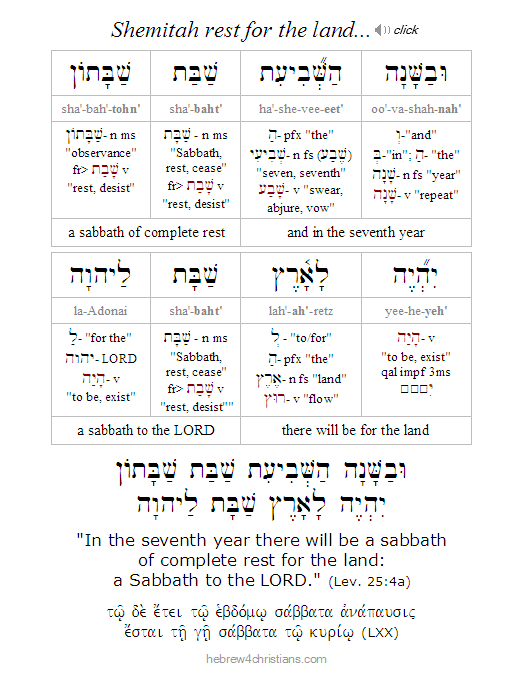 |
Though the shemittah year was officially declared by a religious court, we can determine whether a given year is a Sabbatical year by simply taking the current Jewish year and dividing by seven; if there is no remainder, it is a shemittah year; otherwise it is not. For example 5781 is not a Sabbatical year because divided by 7 leaves a remainder, whereas year 5782 is a Sabbatical year (note that the Jewish year begins on Rosh Hashanah, on Tishri 1, in the fall). The Jubilee year (i.e, yovel: יובל) follows the seventh of the seven year cycles (i.e., 7 x 7 + 1), though there are some questions about which "week of years" (1st, 2nd, ... 7th) is currently active. According to some authorities, the last Jubilee year was on Yom Kippur 5776, that is, Tues. Oct. 11th, 2016, so the next would be 50 years later (i.e., in the year 5826).
Parashat Bechukotai...
Our second Torah reading this week, called parashat Bechukotai (פרשׁת בחקתי), is the final portion of the central book of the Torah (i.e, Leviticus), and it begins with the promise that if the Israelites would walk in the LORD's statutes (chukkot) and commandments (mitzvot) and perform them, then they would enjoy material blessings and dwell securely in the promised land. Moreover the LORD Himself would make His dwelling with them and would walk among them as their God. The people of Israel would then truly be am segulah (עַם סְגֻלָּה) - a treasured people among all the nations of the earth.
On the other hand, if the people disobeyed God and disregarded His commandments, then they would be considered covenant-breakers, and they would experience all manner of distress and tribulation in their lives. They would experience panic attacks, diseases, heartache, and all manner of tsuris (vexation, trouble); their enemies would eat their increase, and those who hate them would rule over them; they would flee at the rustle of a leaf, and their lives would be full of terror and misery – all because they refused to put the LORD God first in their lives. And if after all this trouble the people would still refuse to return to the LORD, the worst punishment of all would befall them: exile from the promised land and banishment from the Presence of the LORD Himself.
Nonetheless, despite their disobedience, God's love and mercy for Israel would never fully depart, for "if they confess their iniquity and the iniquity of their fathers in their treachery that they committed against me, and also in walking contrary to me, so that I walked contrary to them and brought them into the land of their enemies – if then their uncircumcised heart is humbled and they make amends for their iniquity, then I will remember my covenant with Jacob, and I will remember my covenant with Isaac and my covenant with Abraham, and I will remember the land" (Lev. 26:40-42). Moreover, even while they are in exile, in the land of their enemies, God vowed: "I will not cast them away; nor will I ever abhor them to destroy them and to break My covenant with them; for I am the LORD their God" (Lev. 26:44).
This portion (and the scroll of Leviticus) ends with a discussion of various laws pertaining to vows and tithes that a person may make to contribute towards the upkeep of the Sanctuary. These include dedications of persons, animals, houses, and lands. The scroll of Leviticus ends with the emphatic statement: "These are the commandments that the LORD commanded Moses for the people of Israel on Mount Sinai" (Lev. 26:46).
|





































































